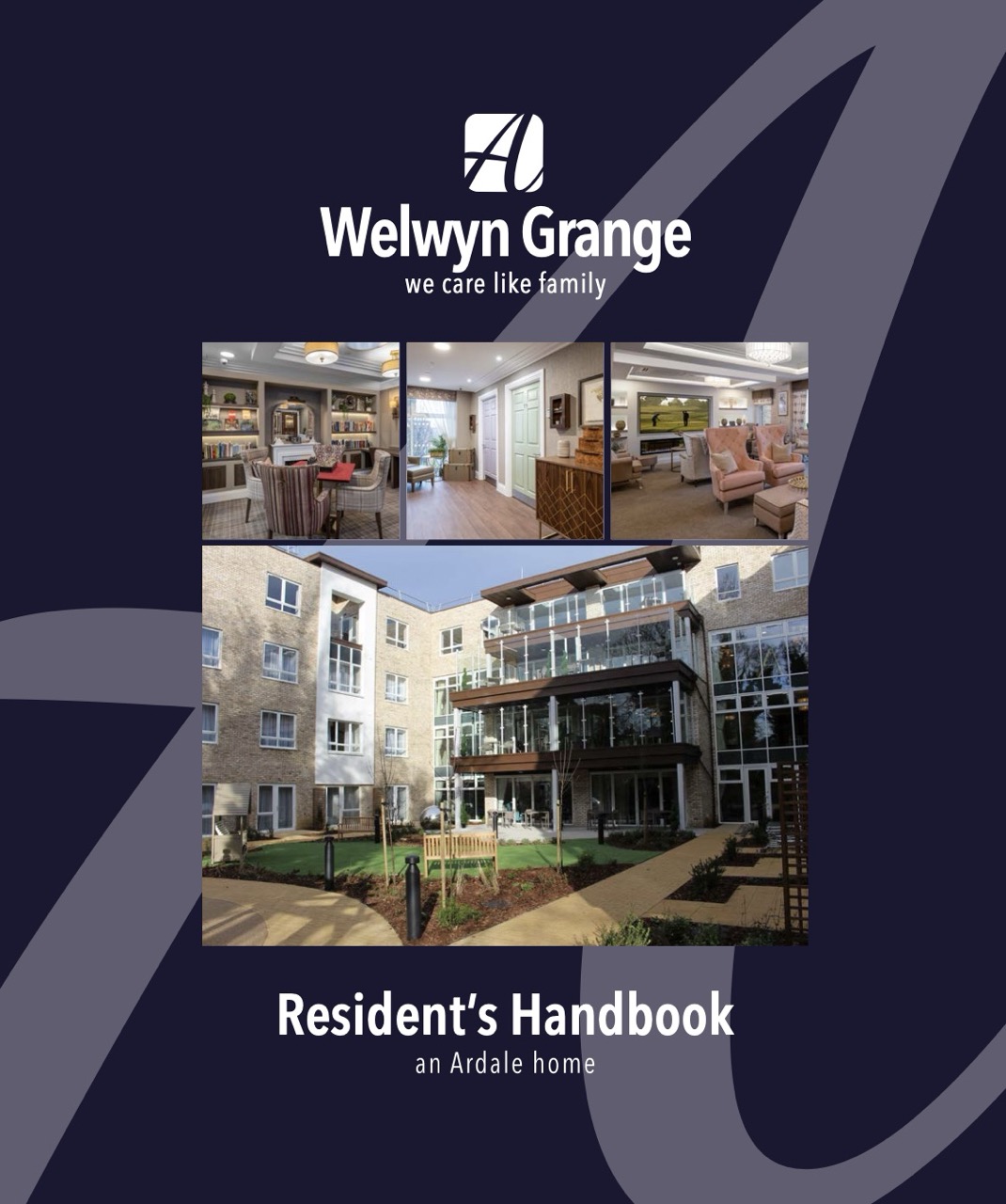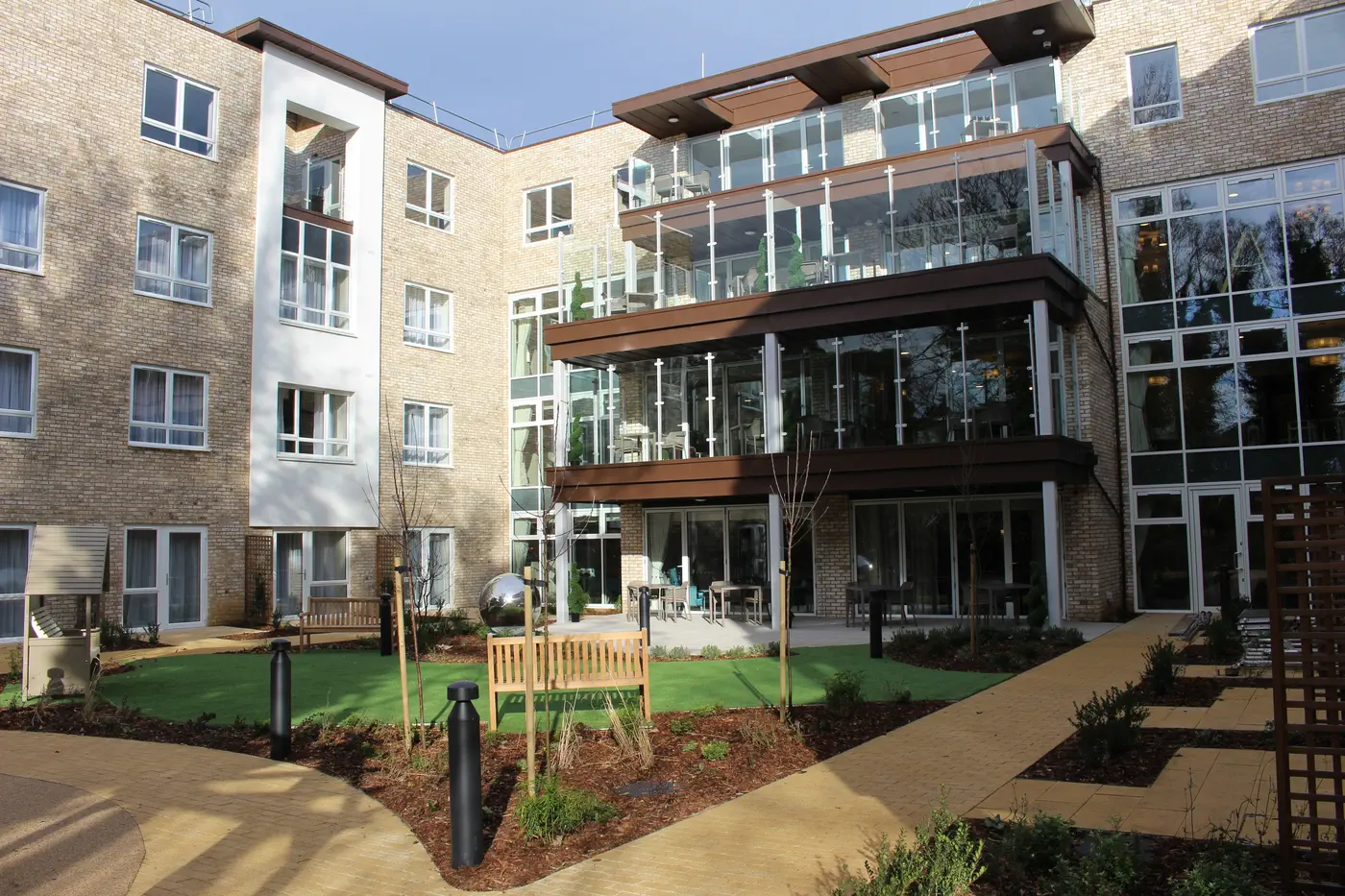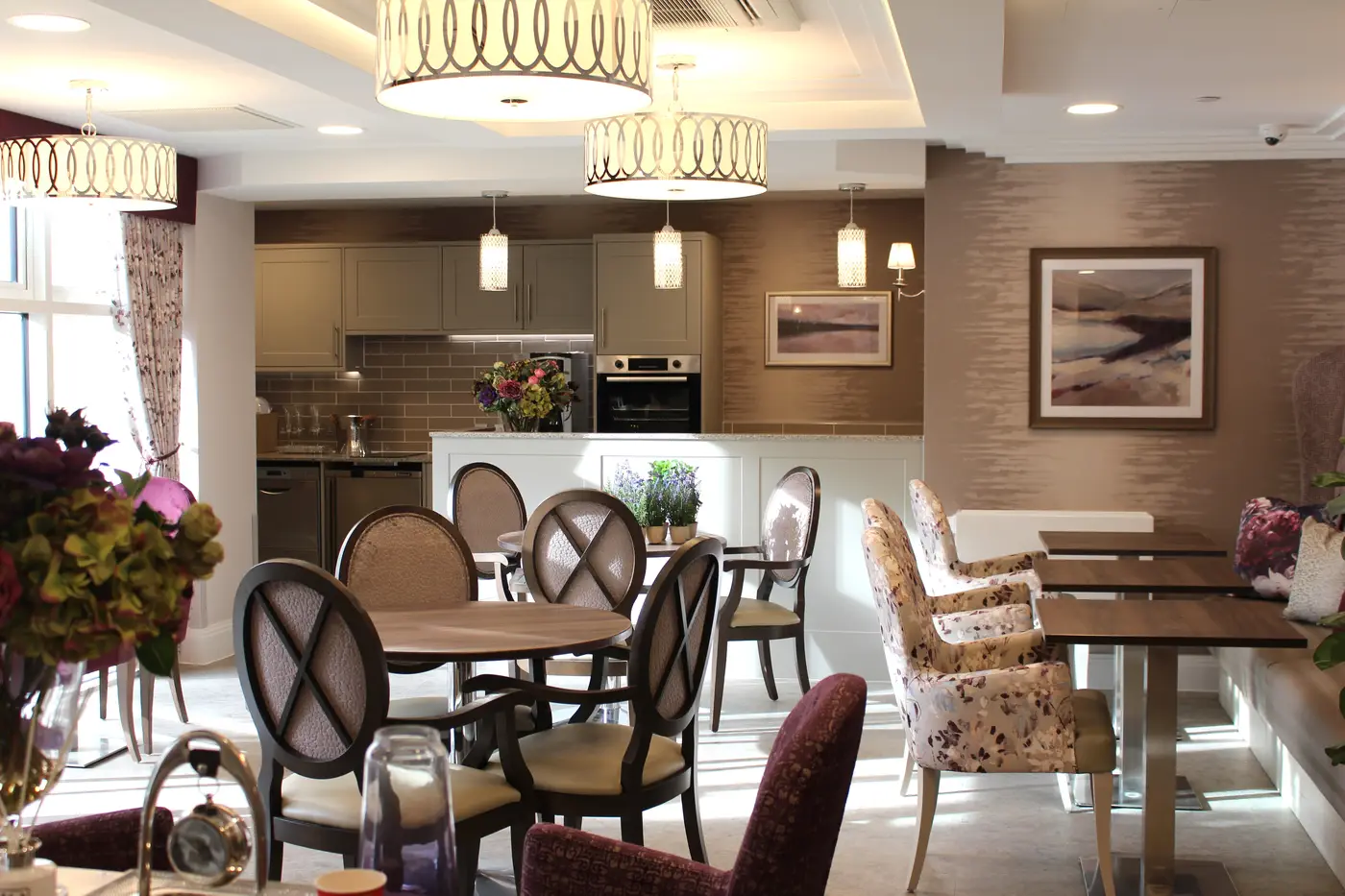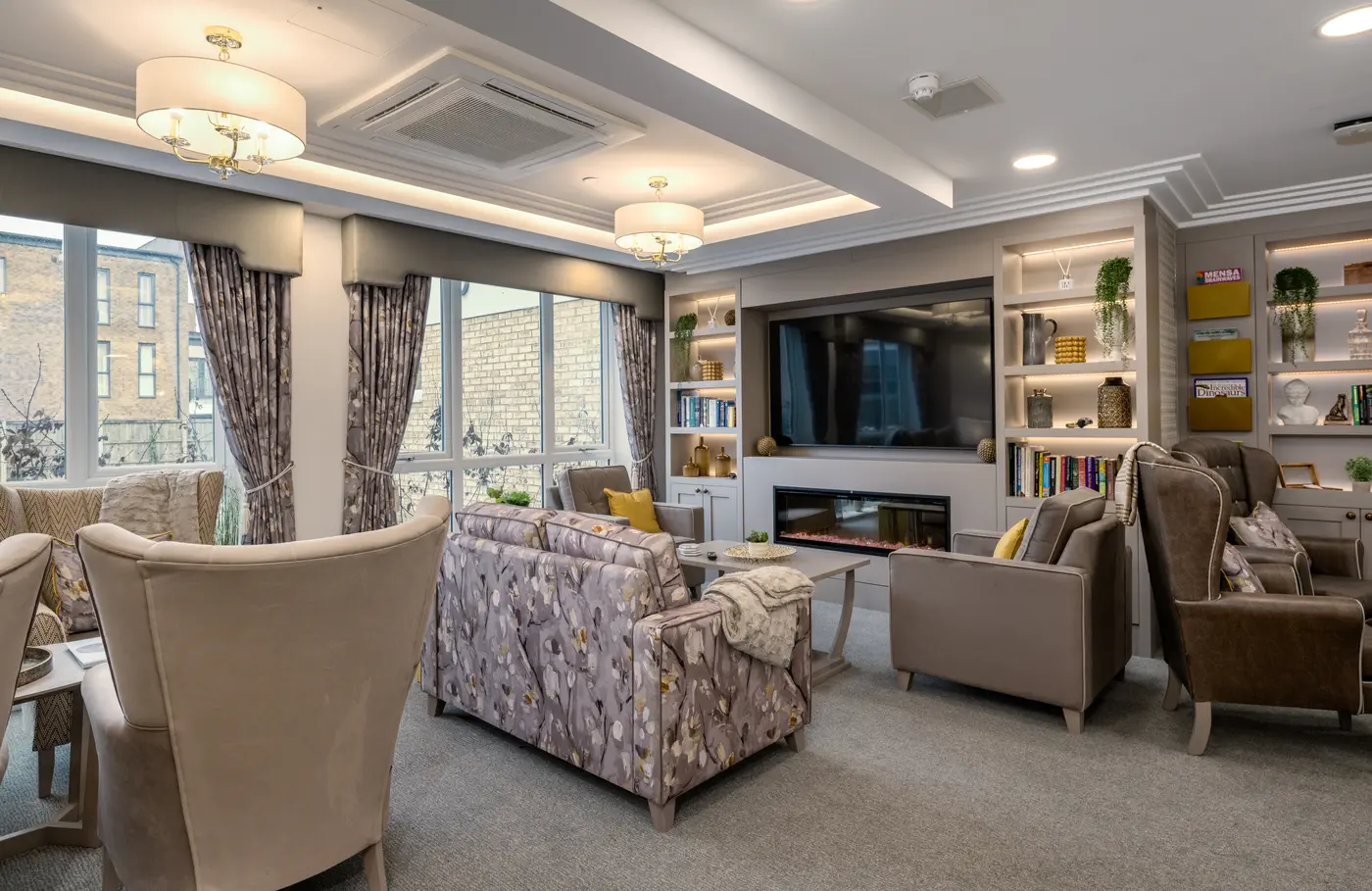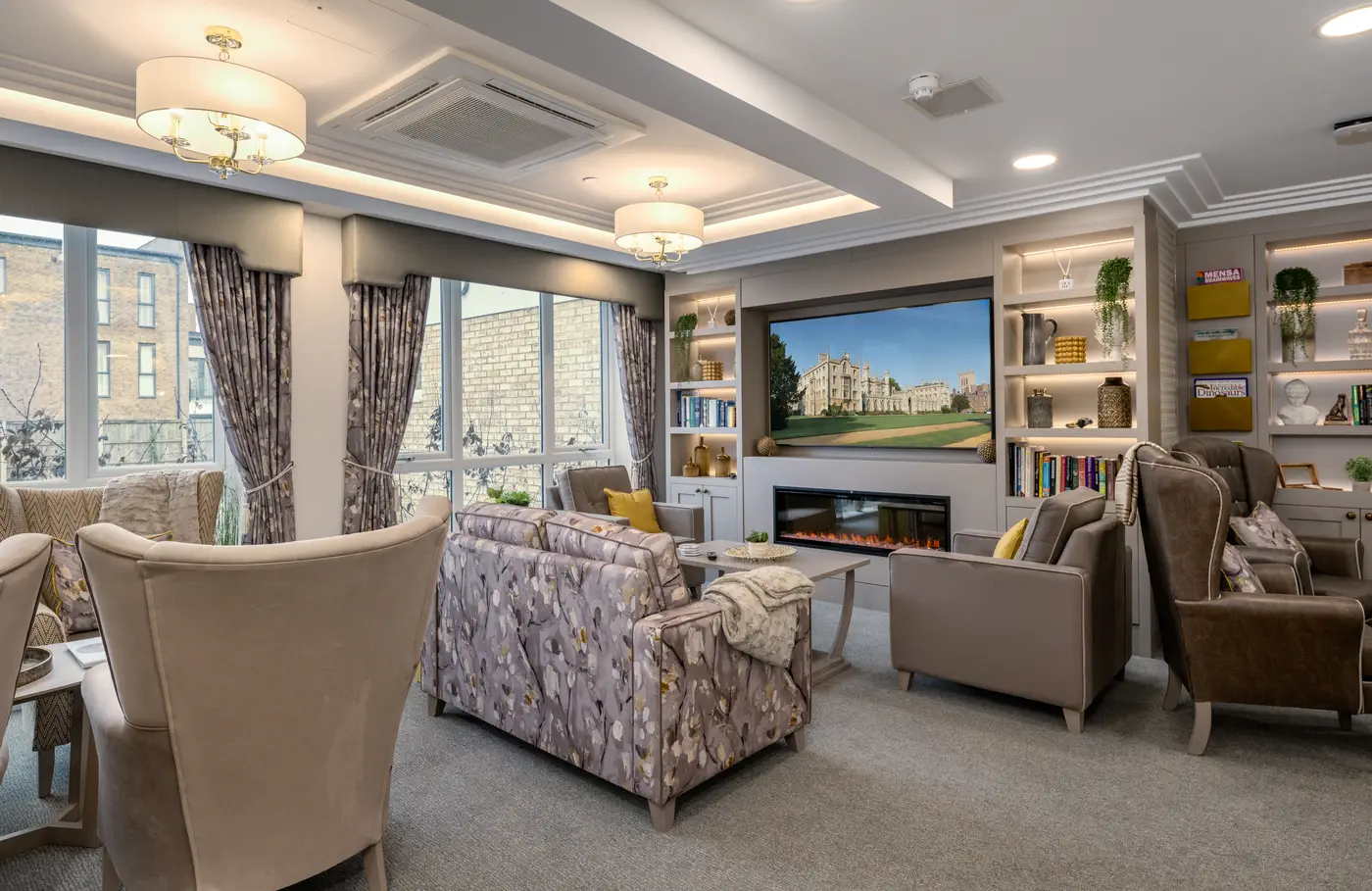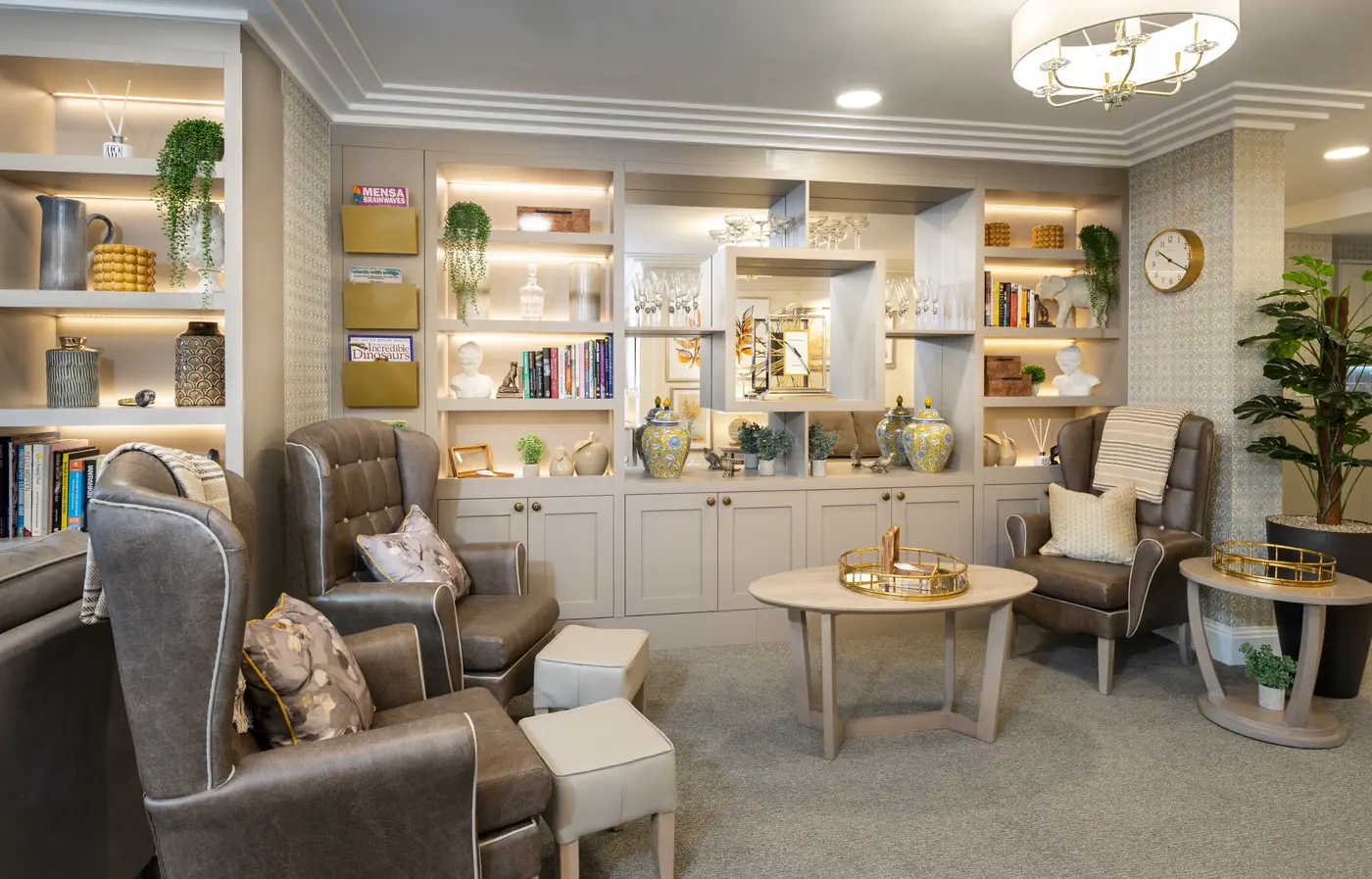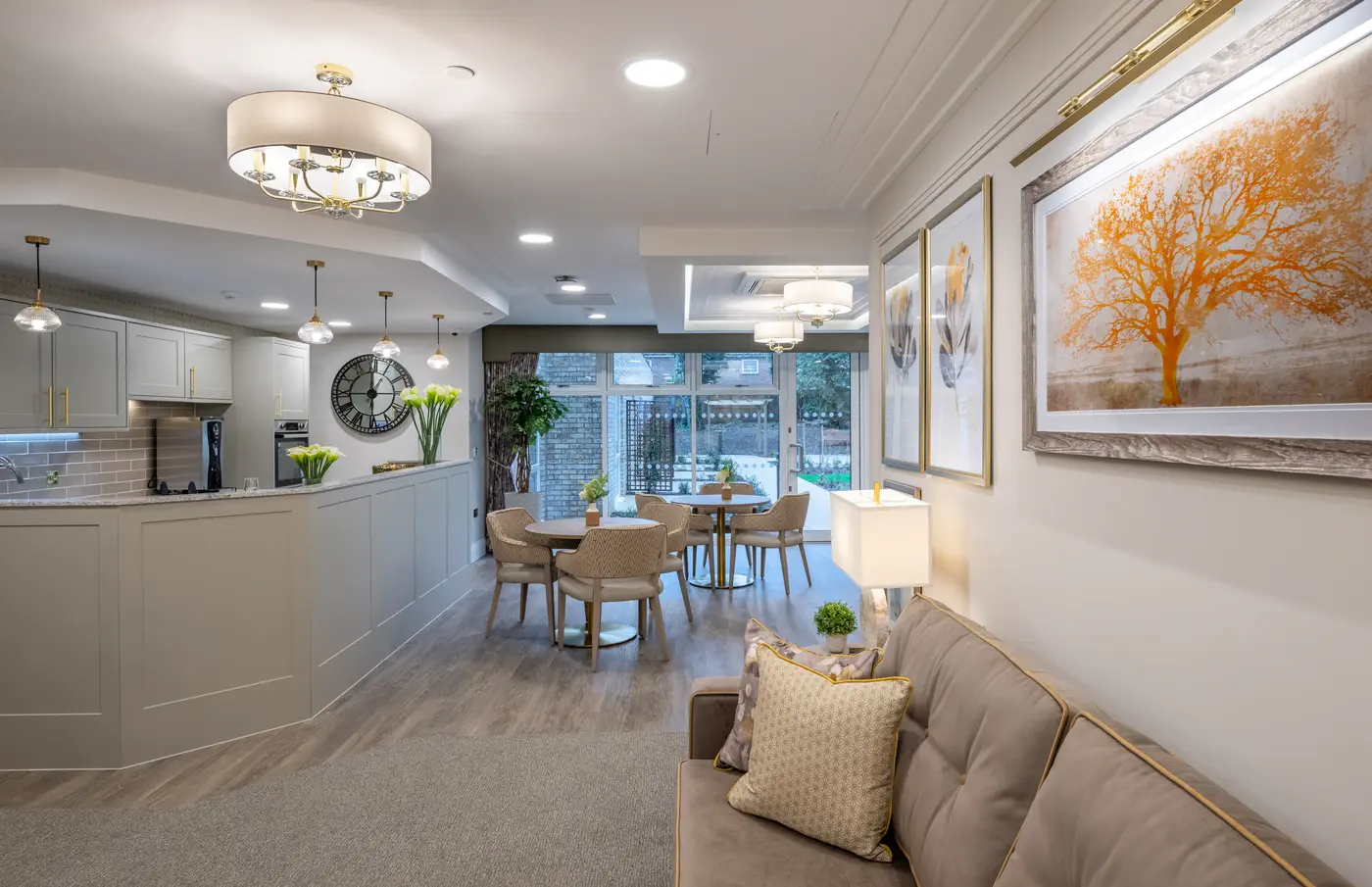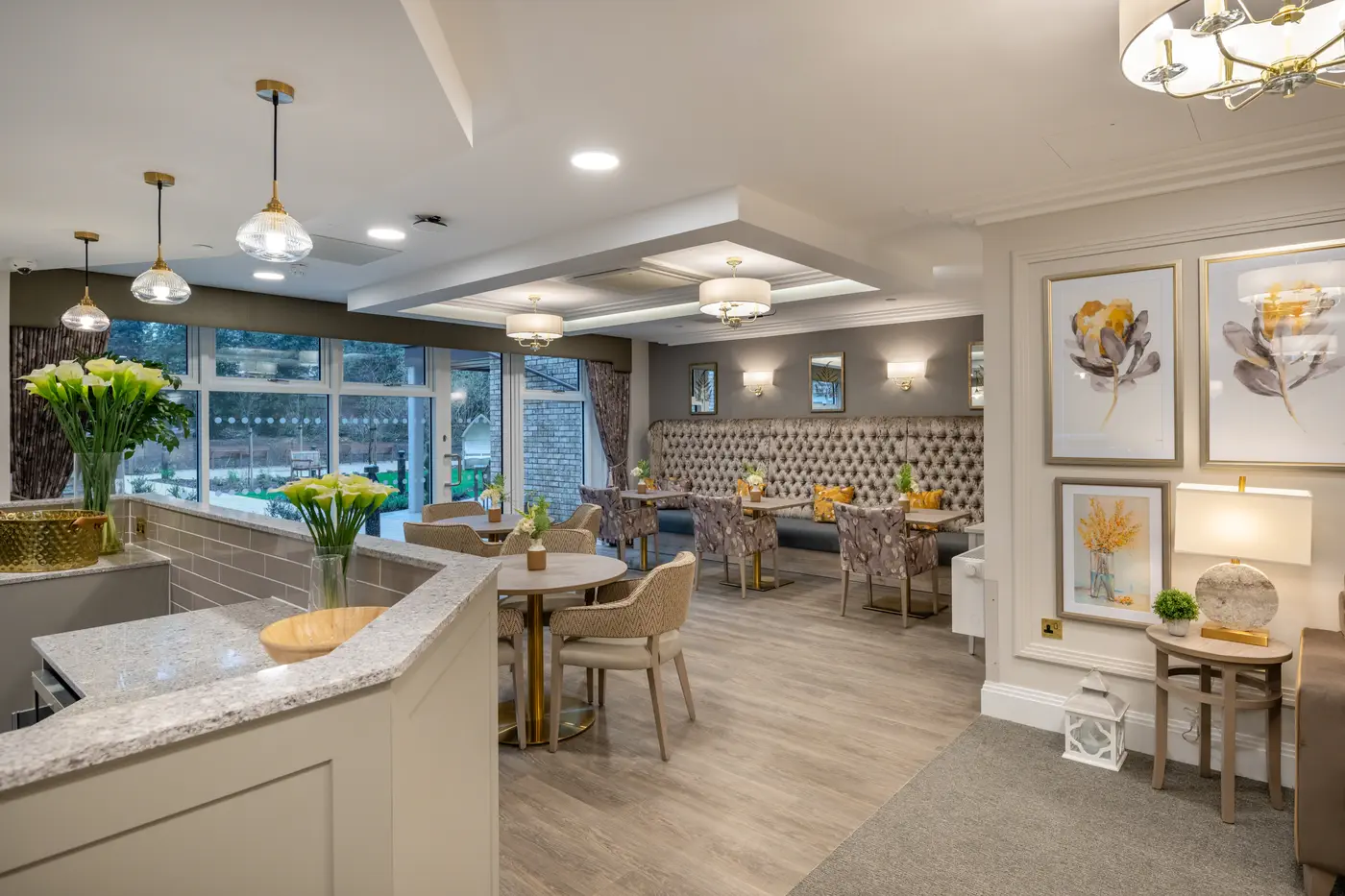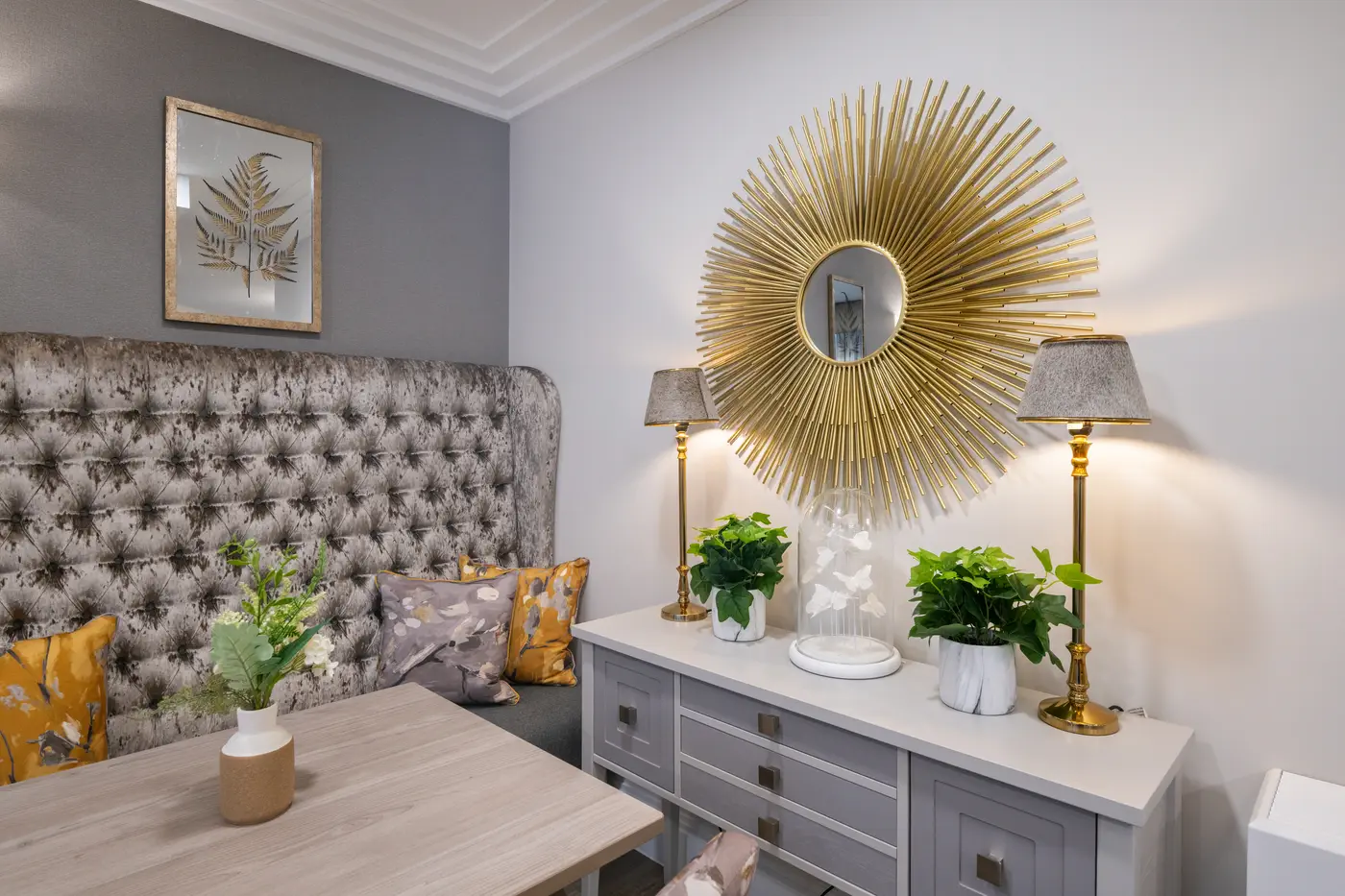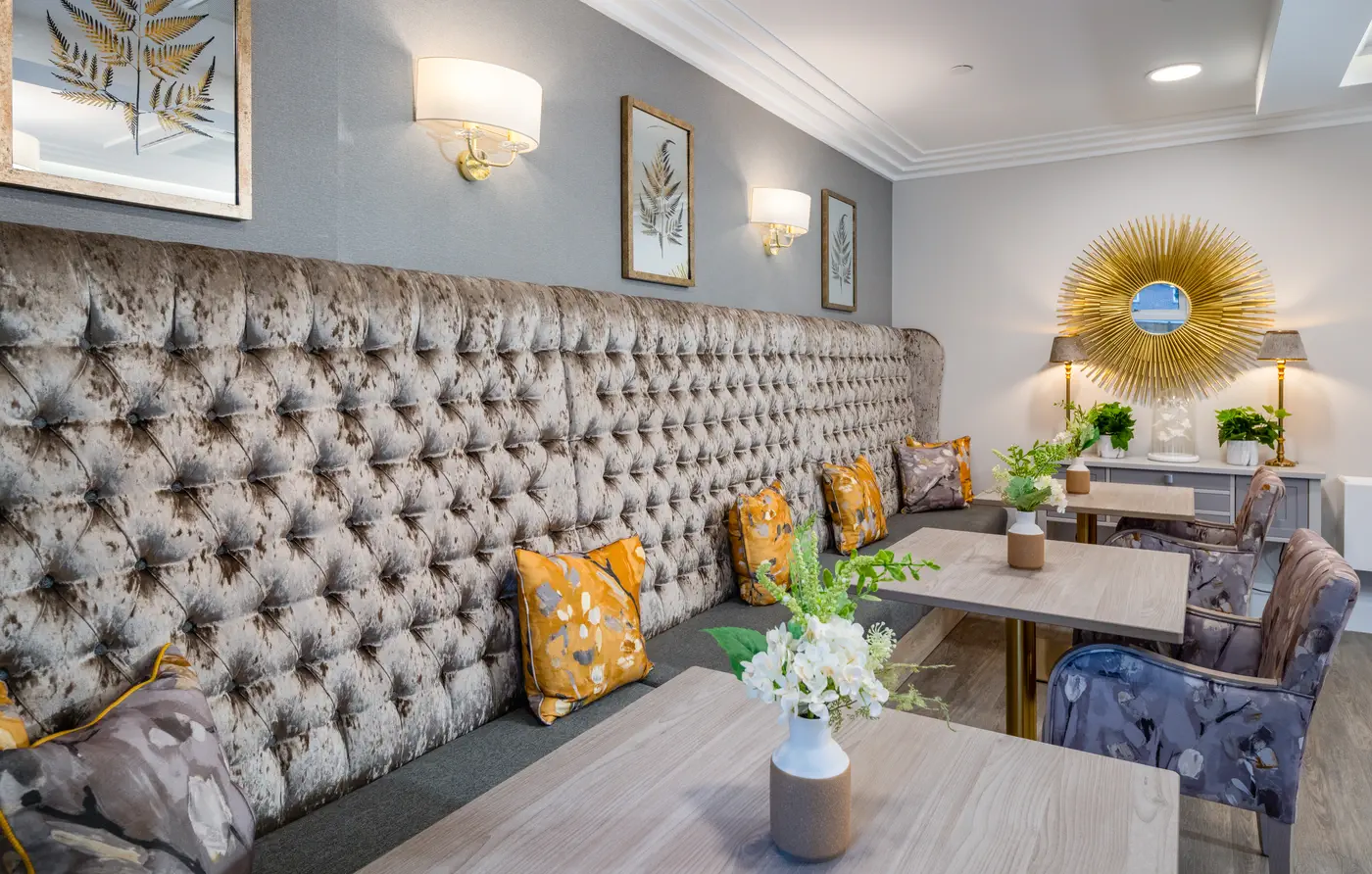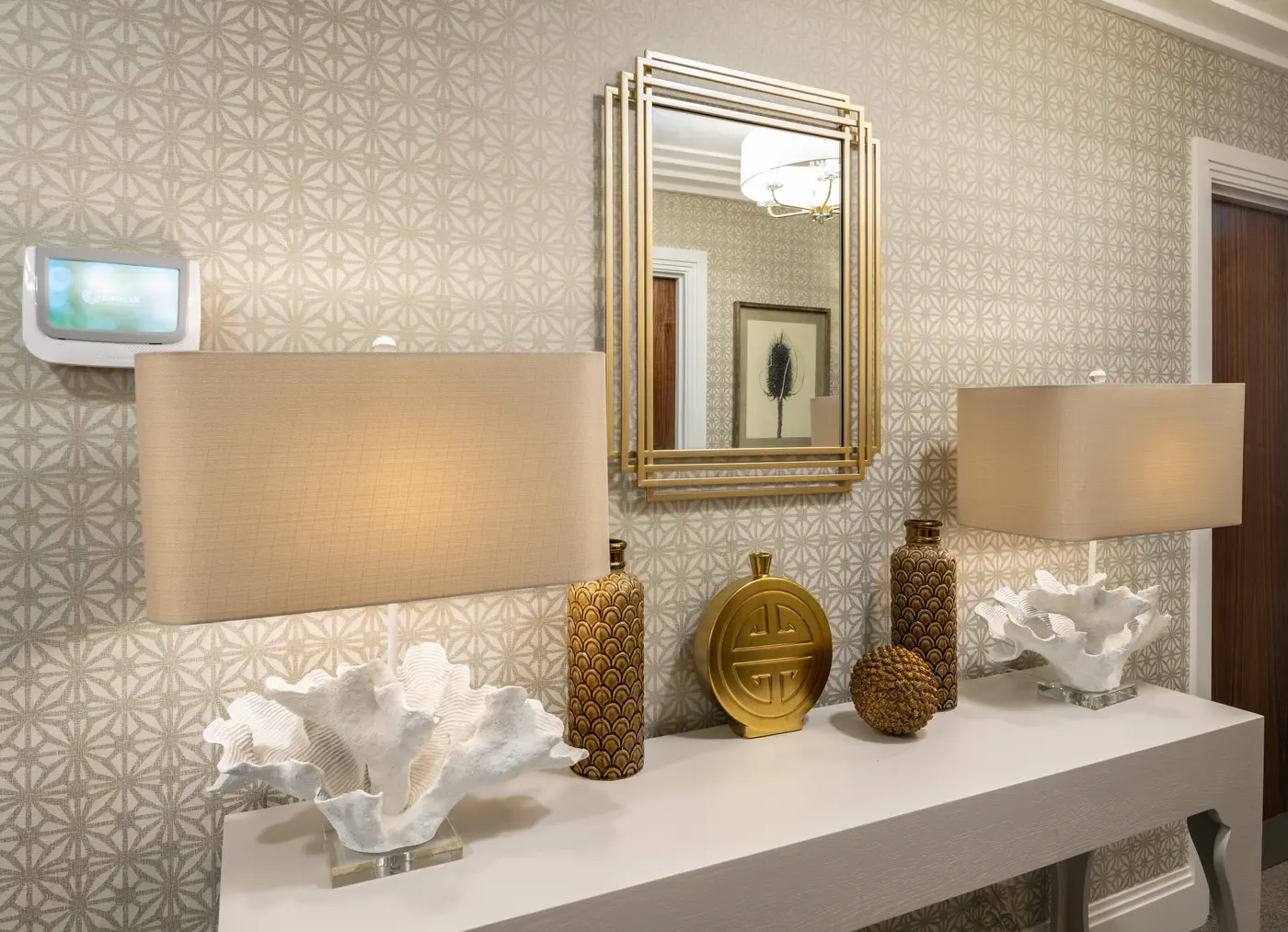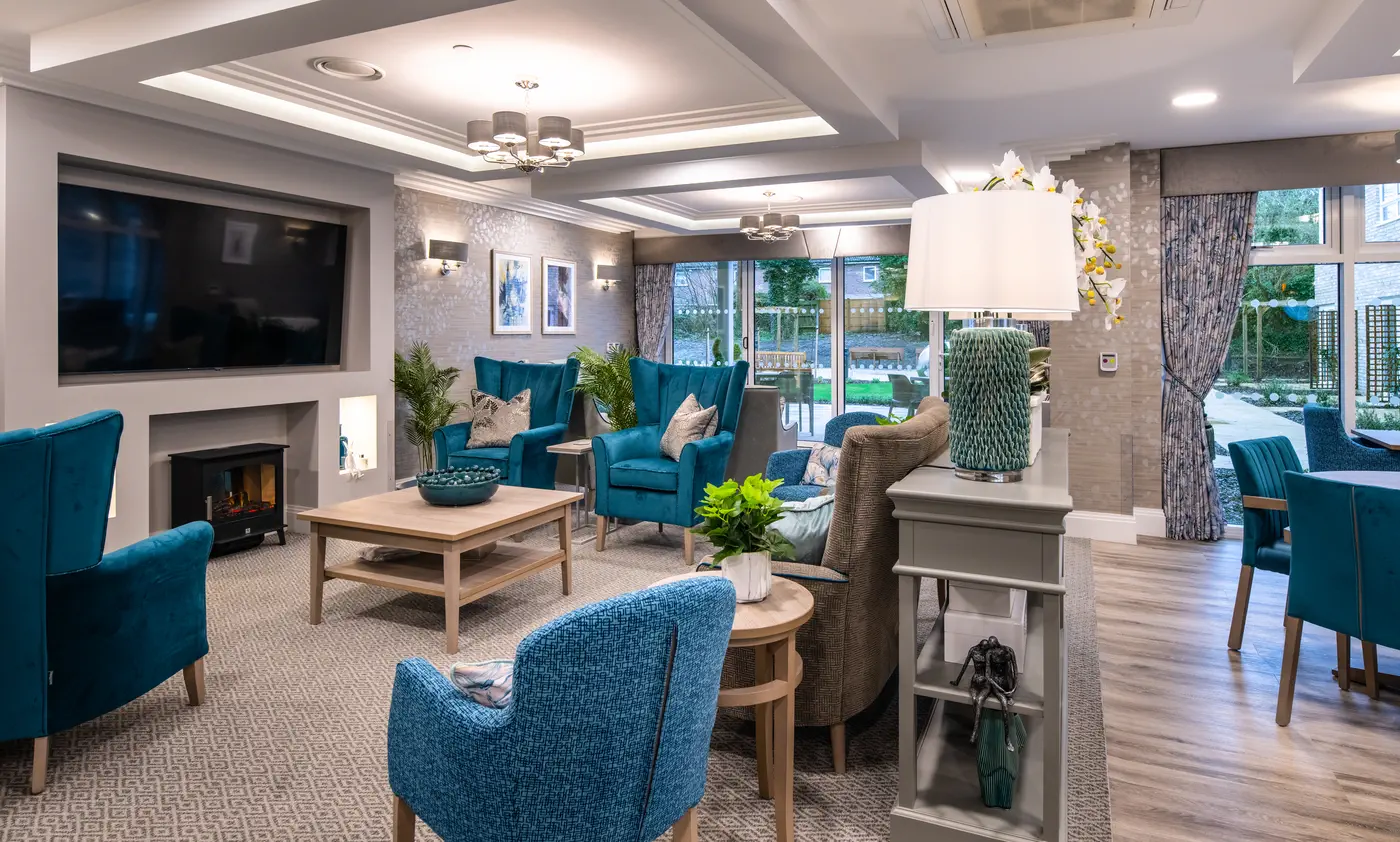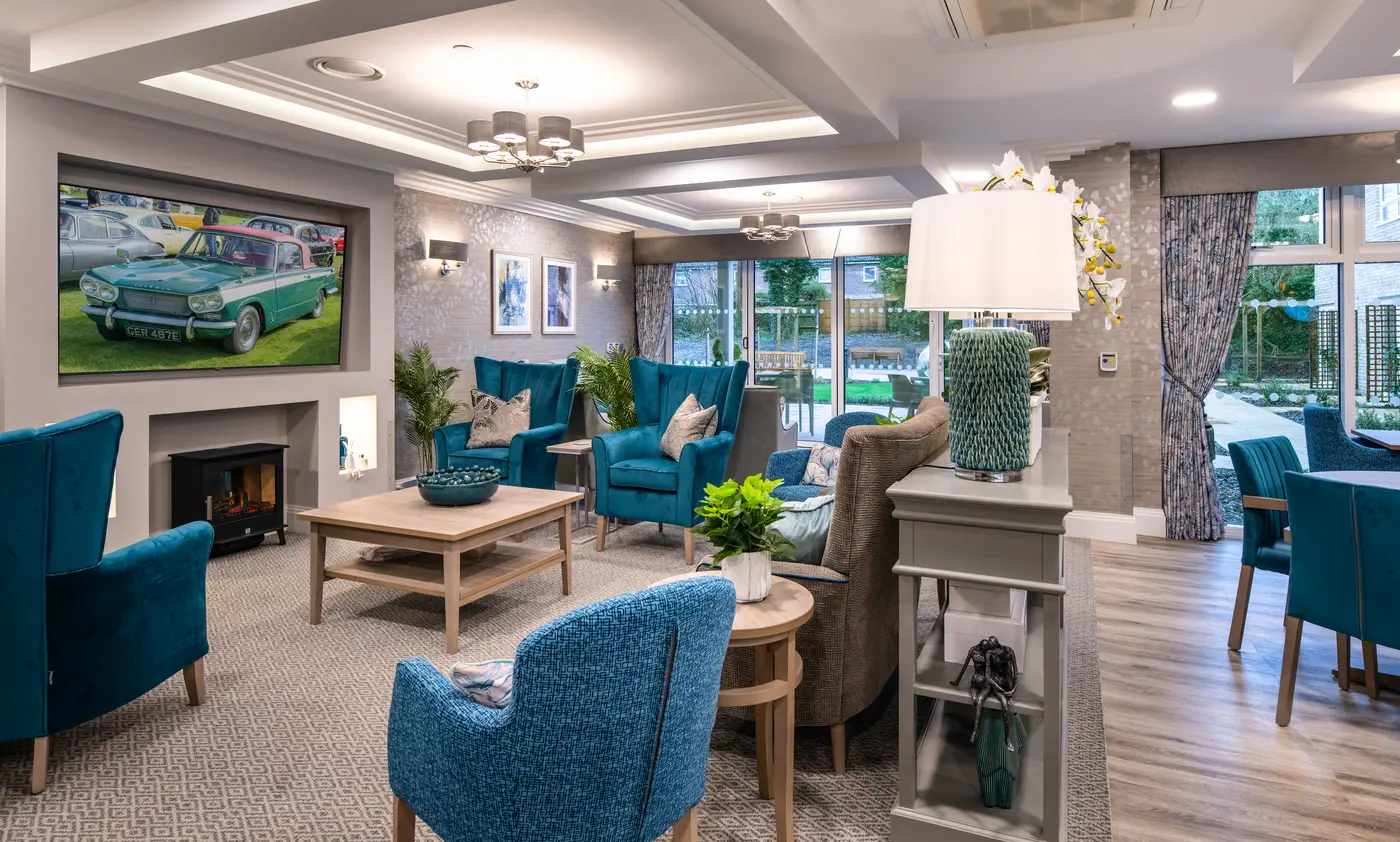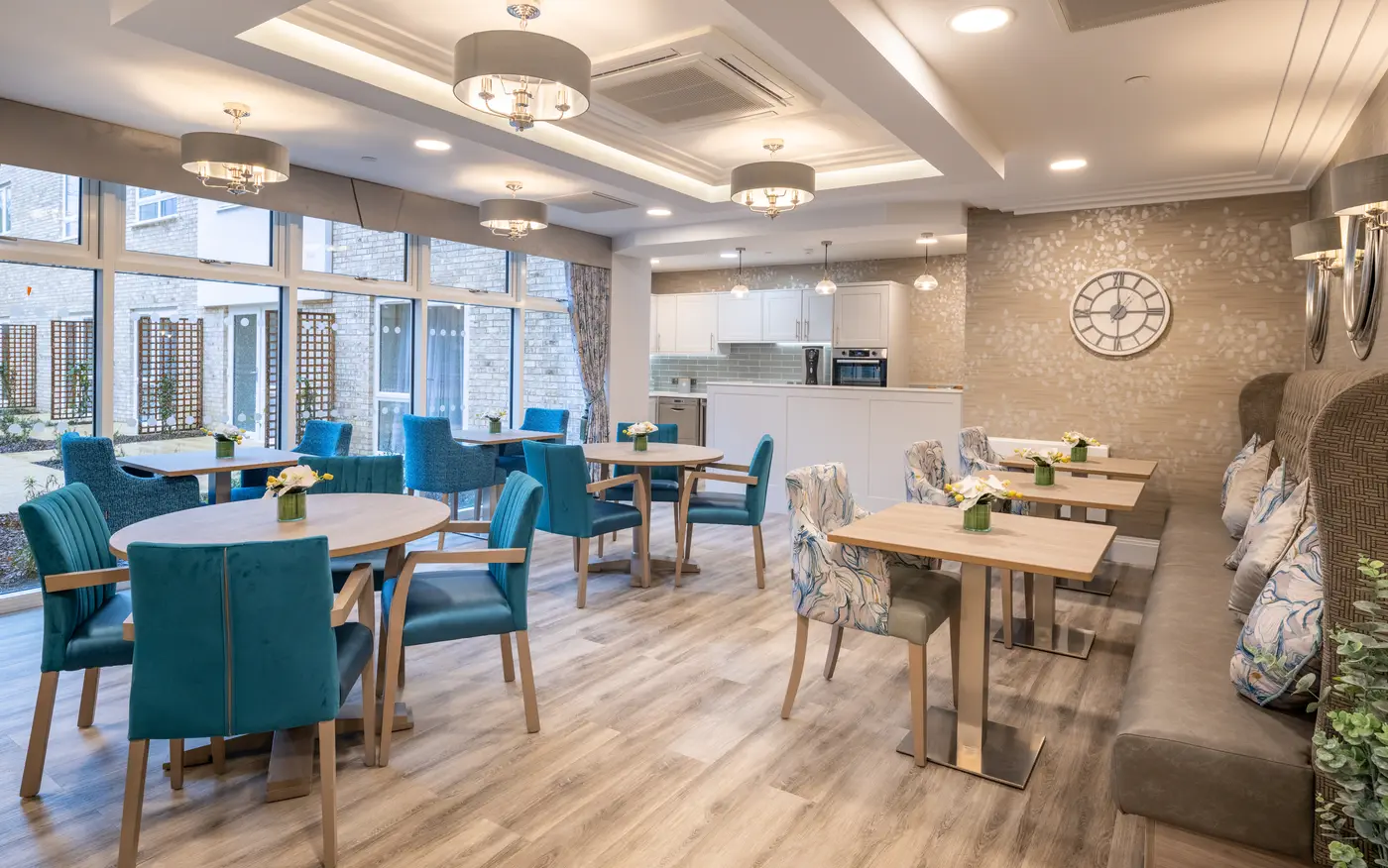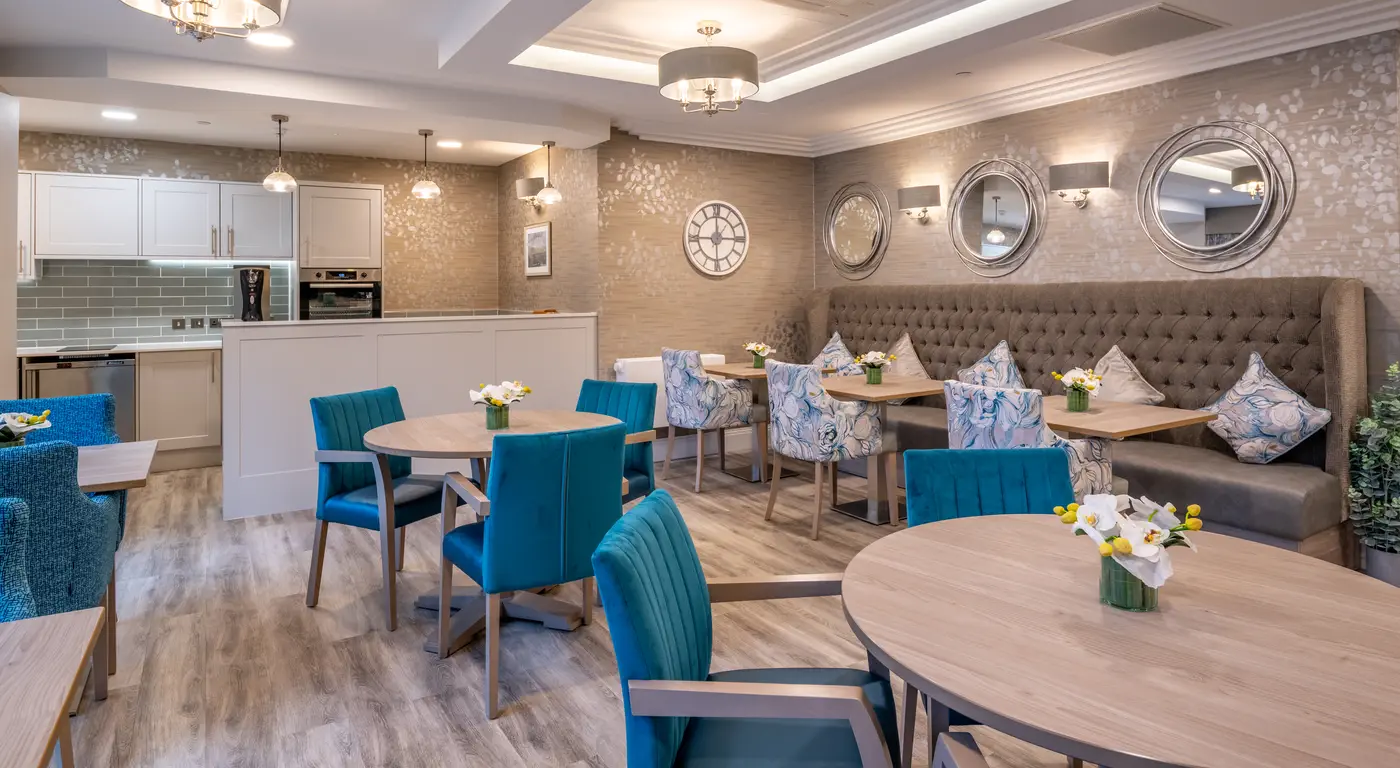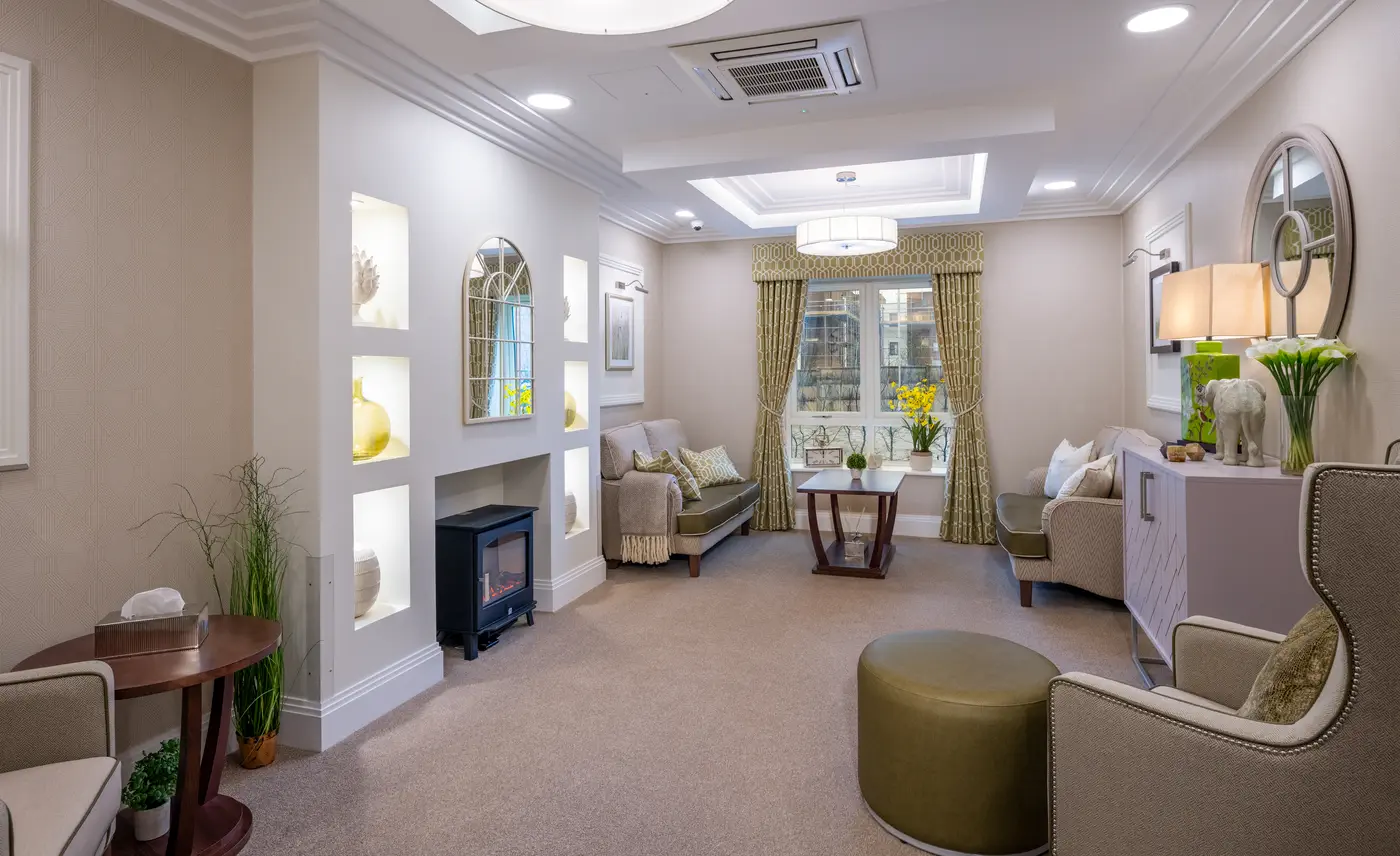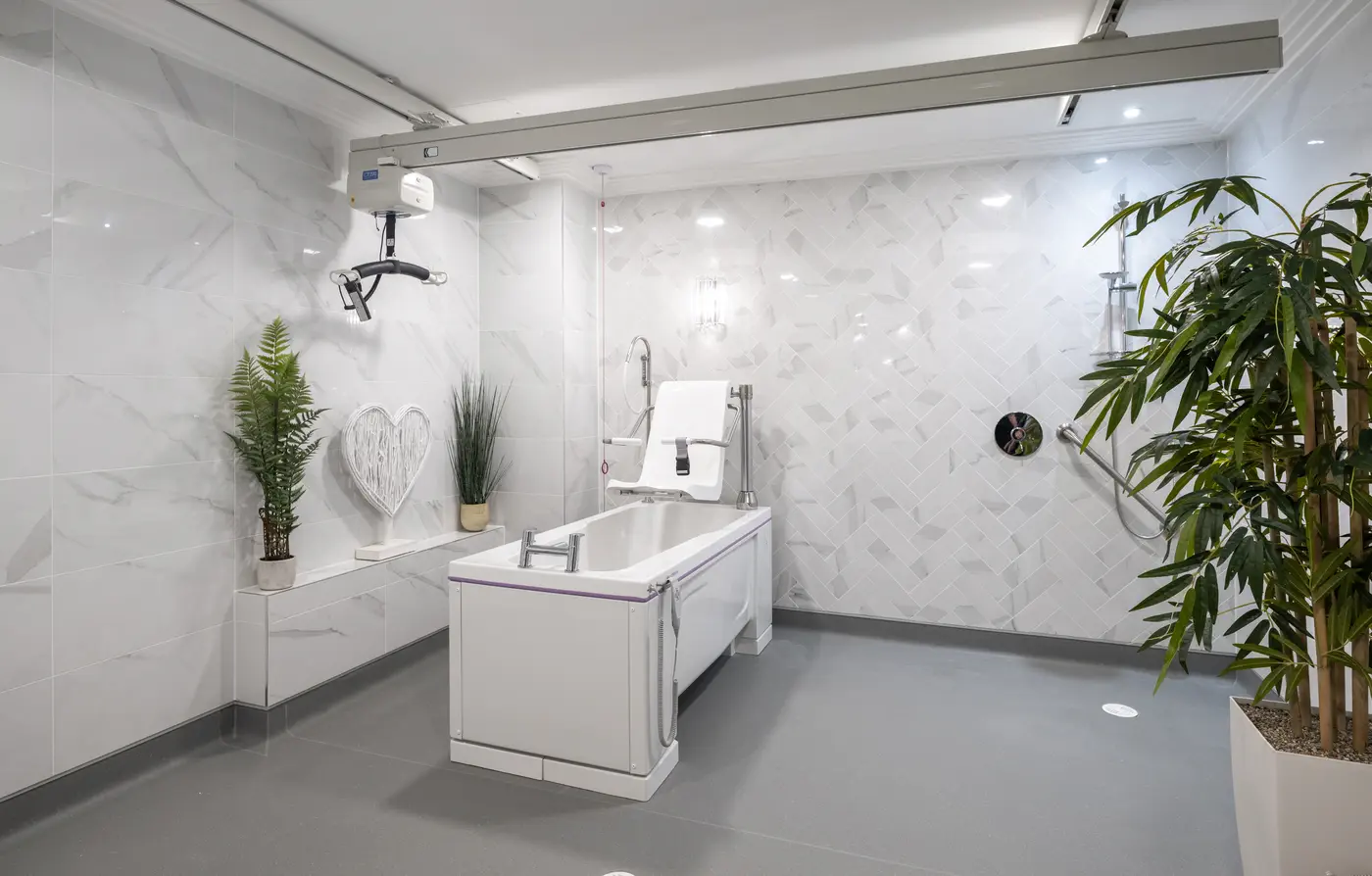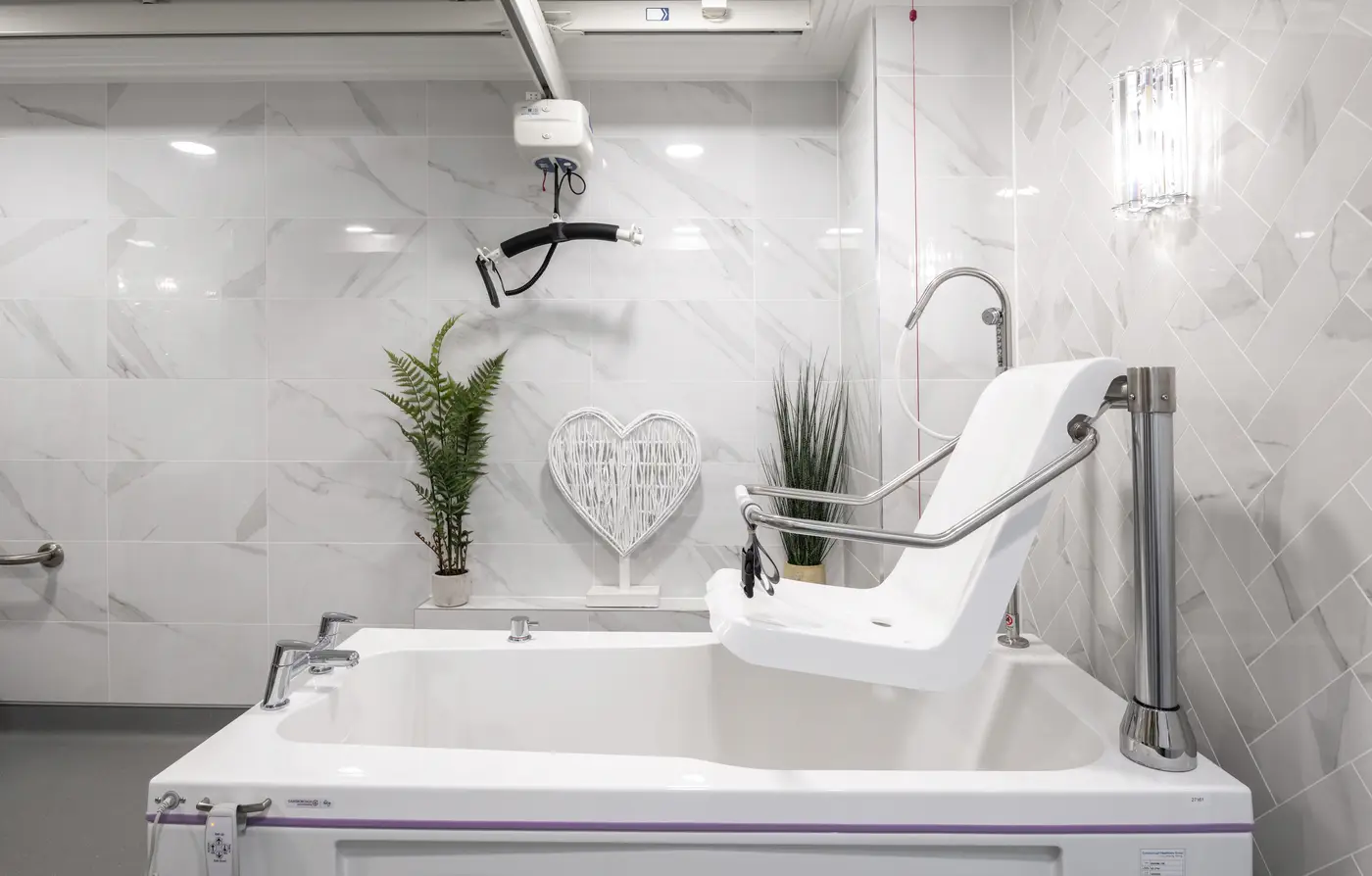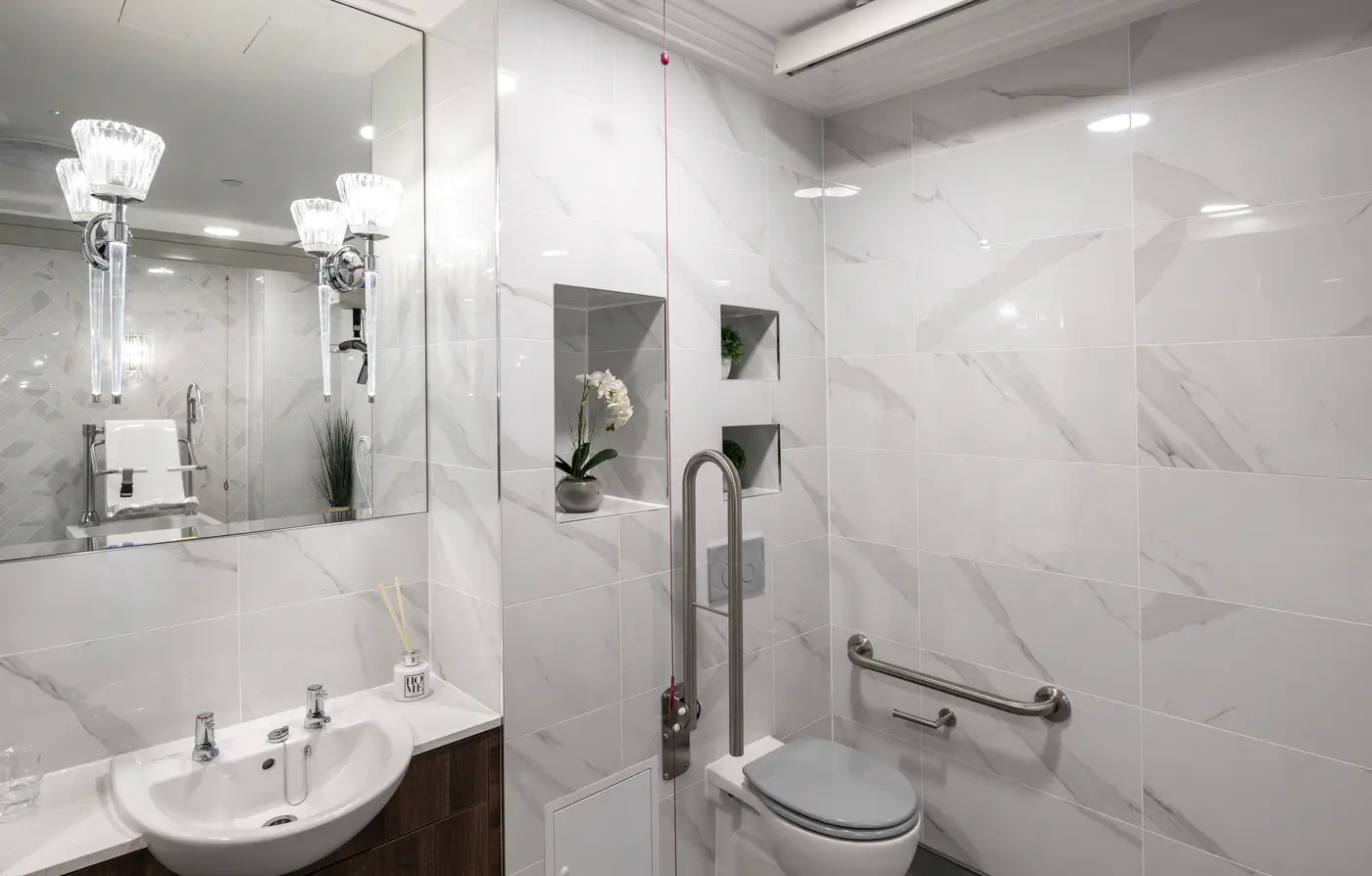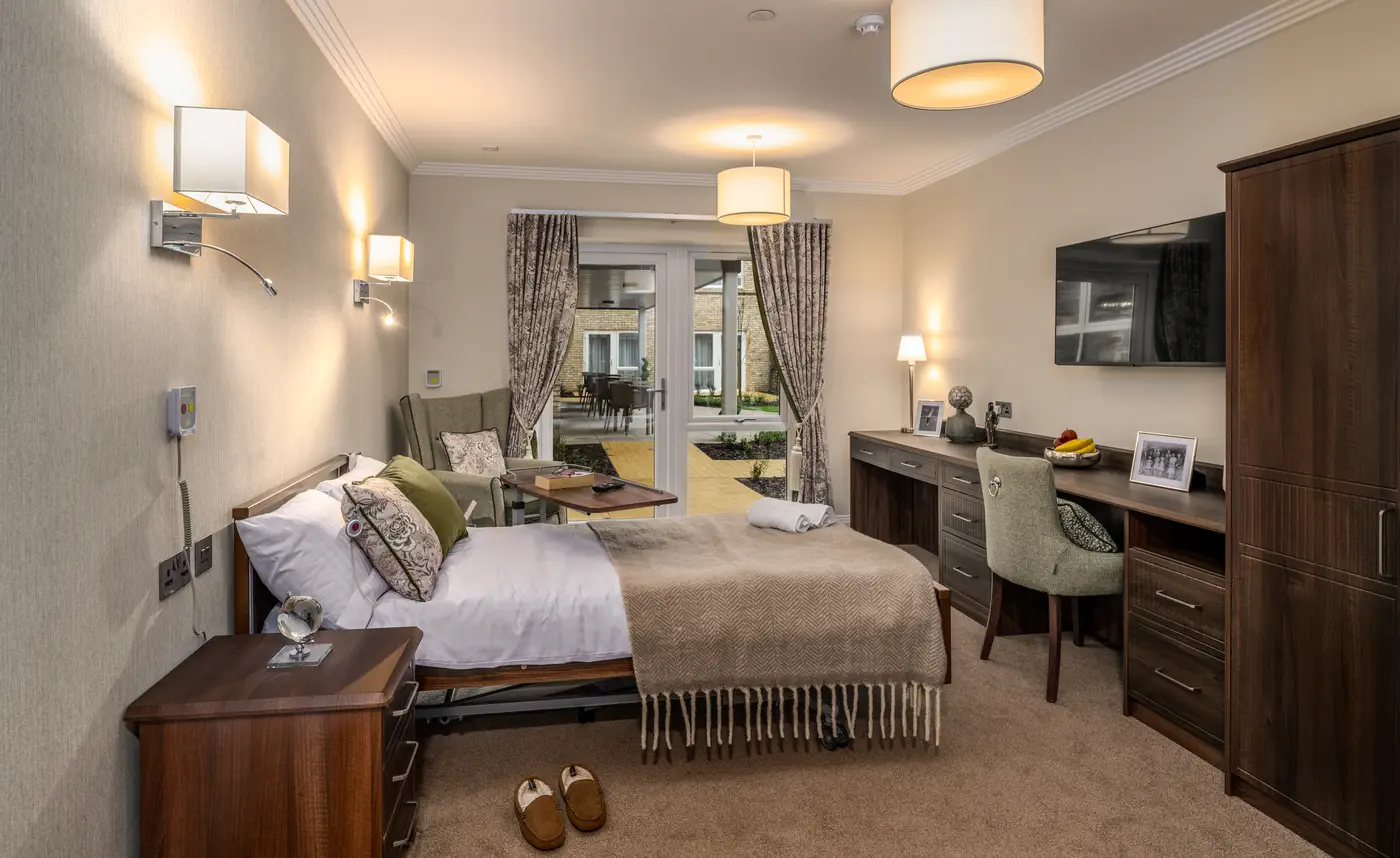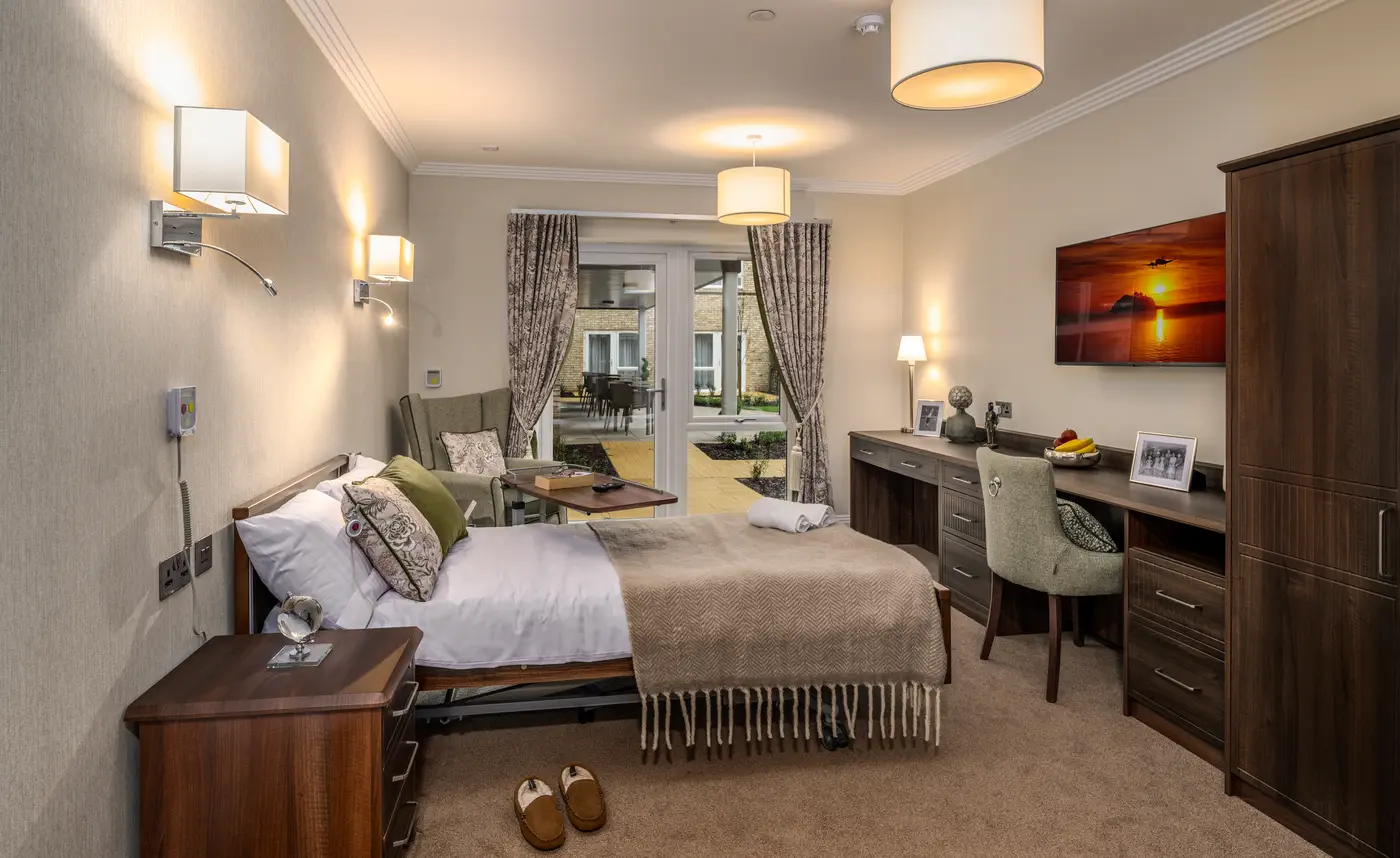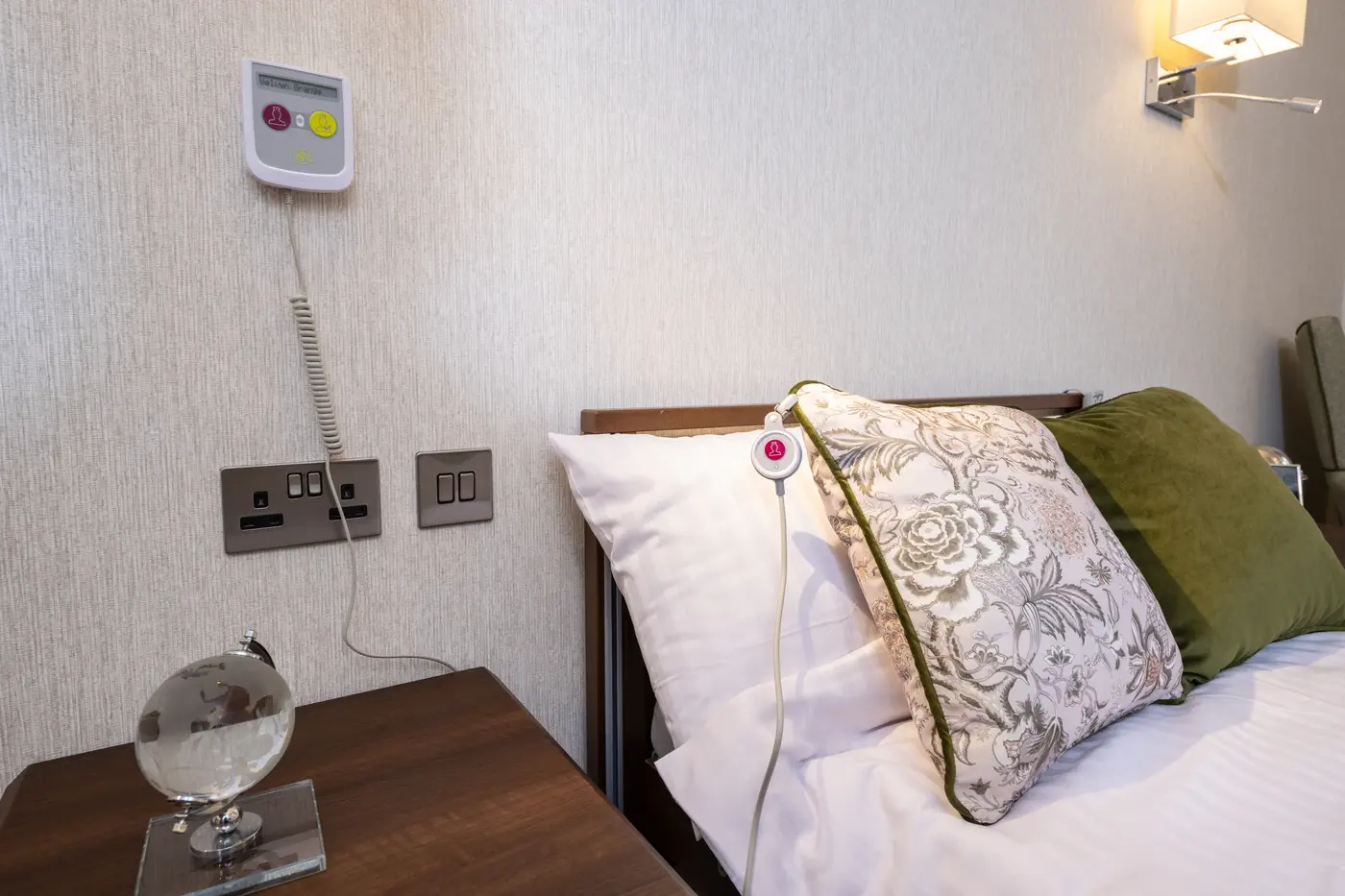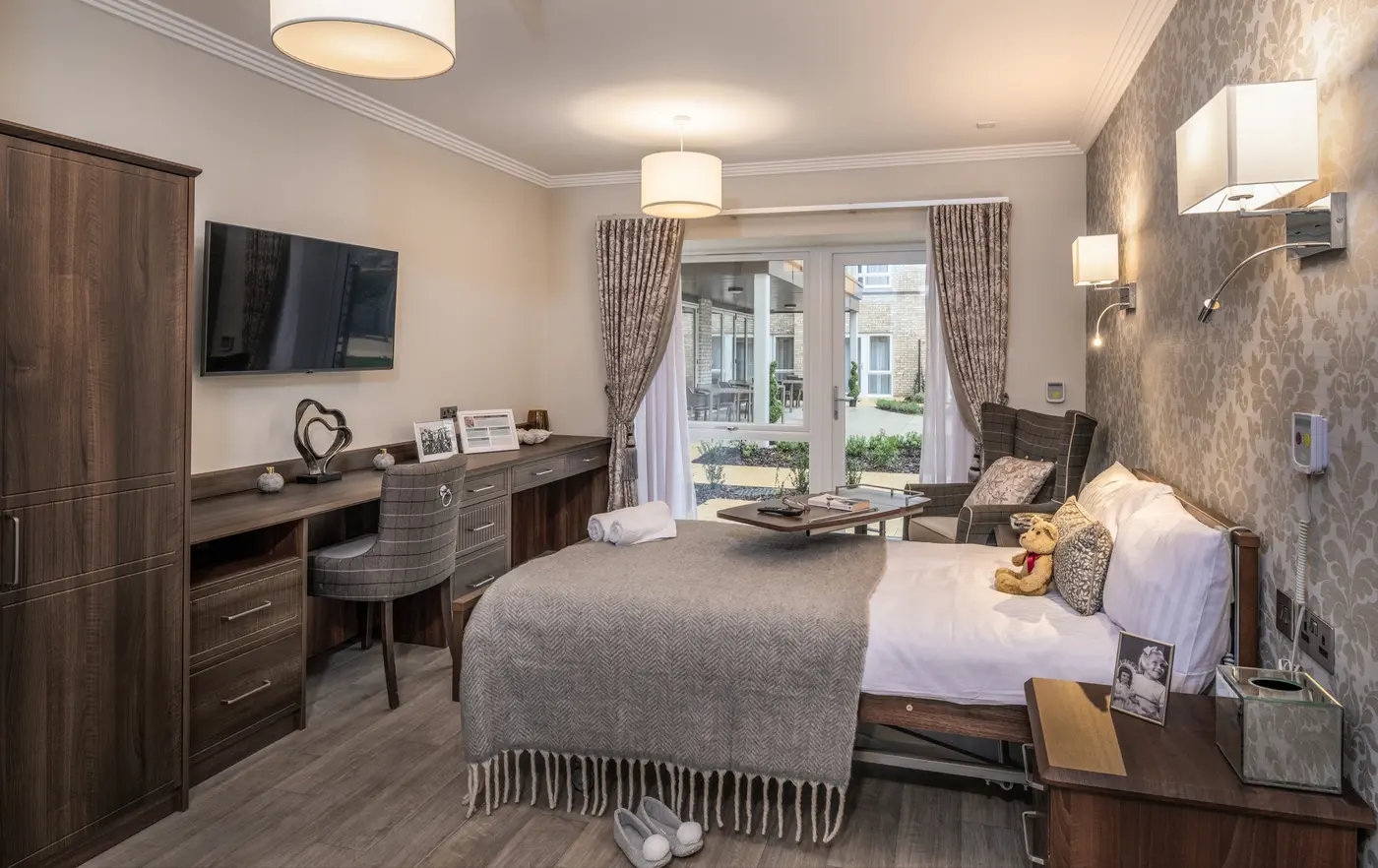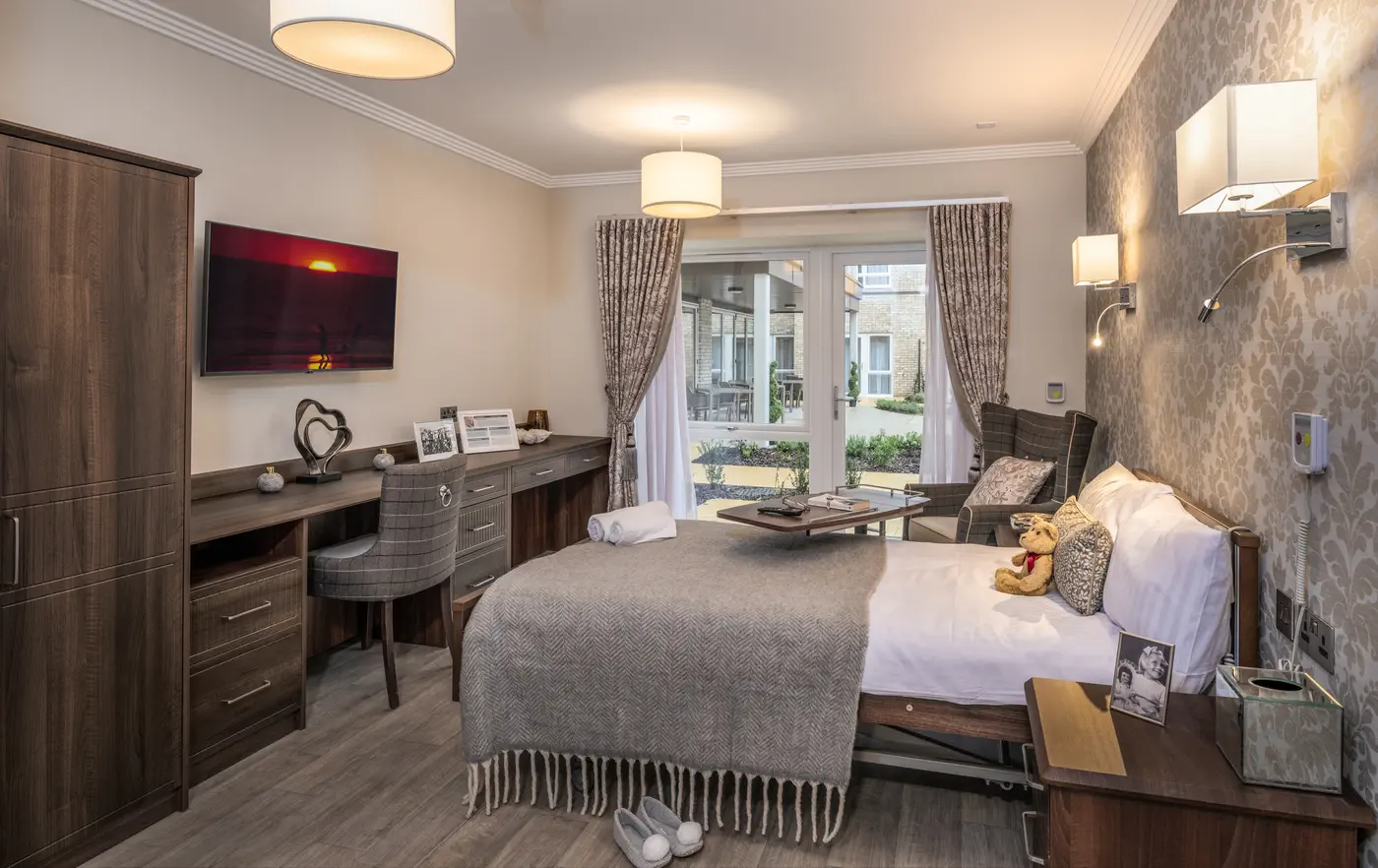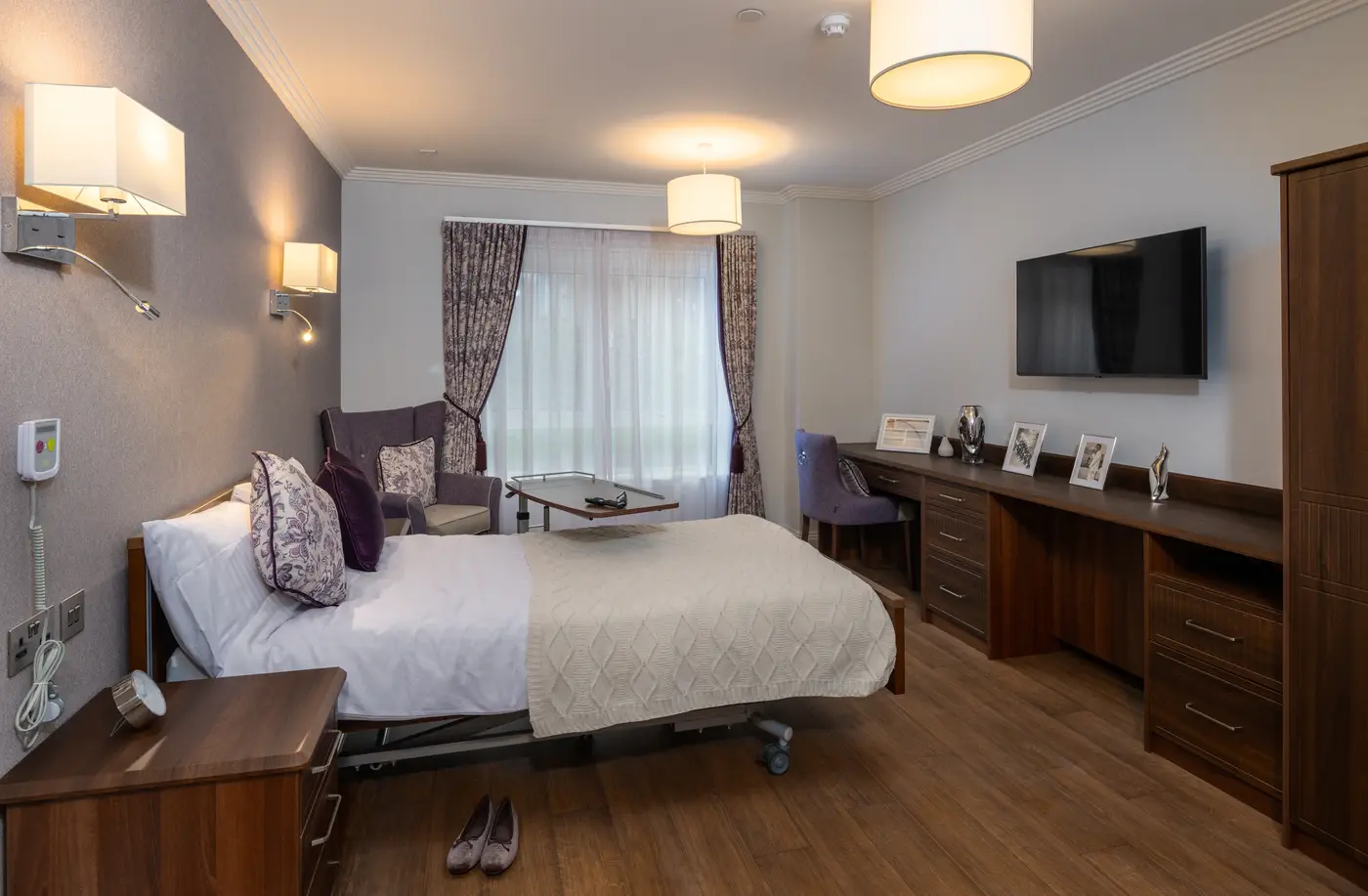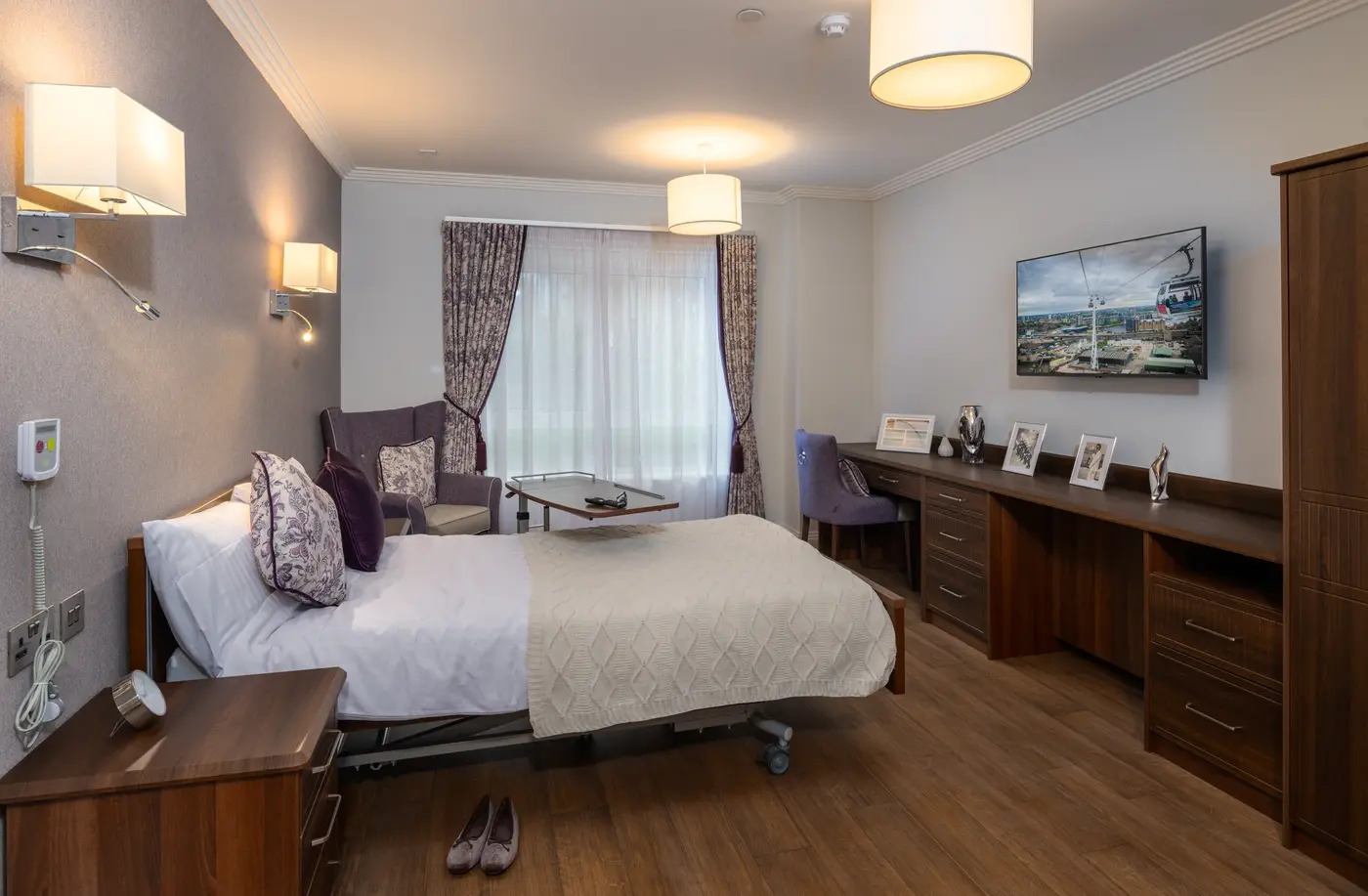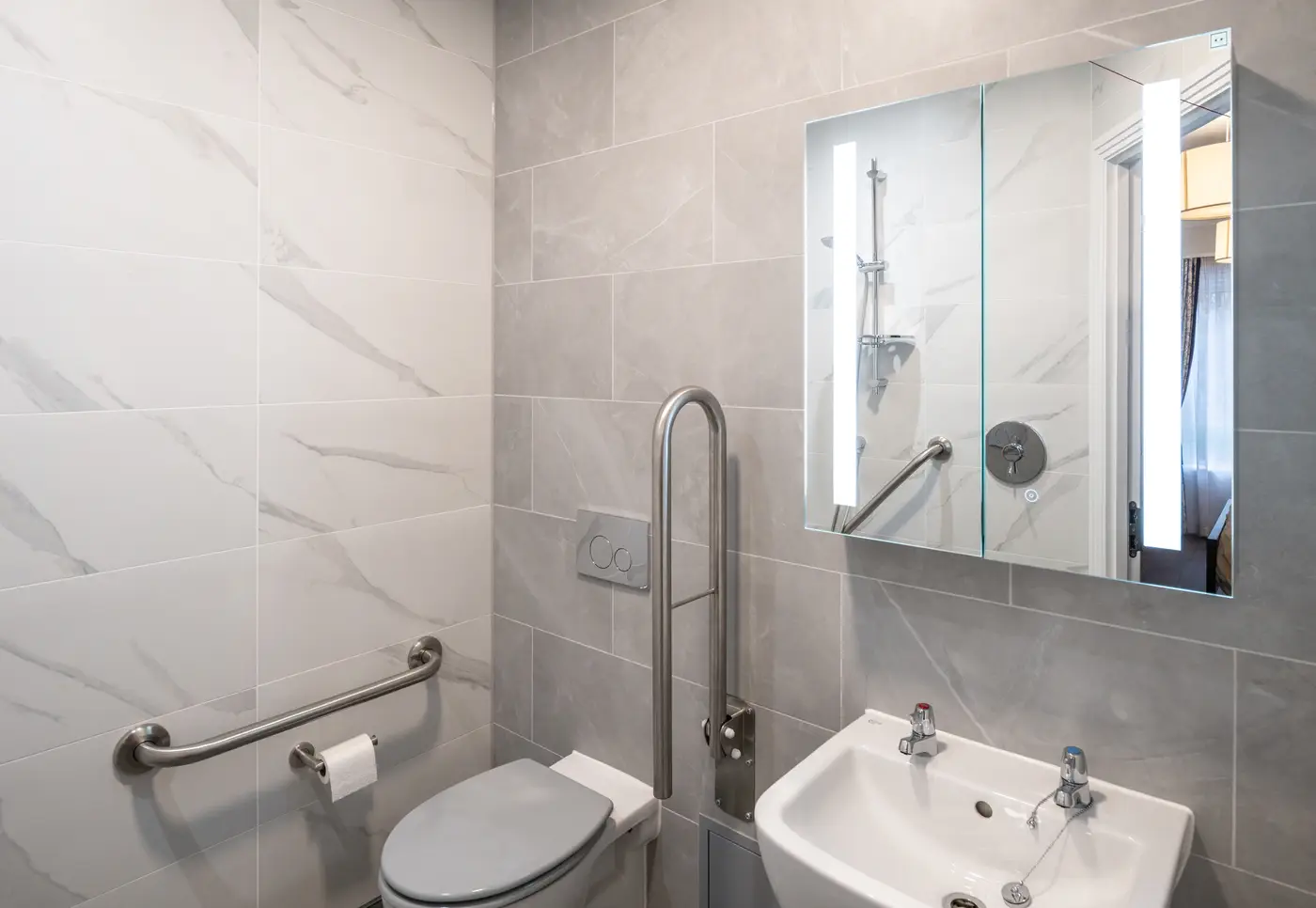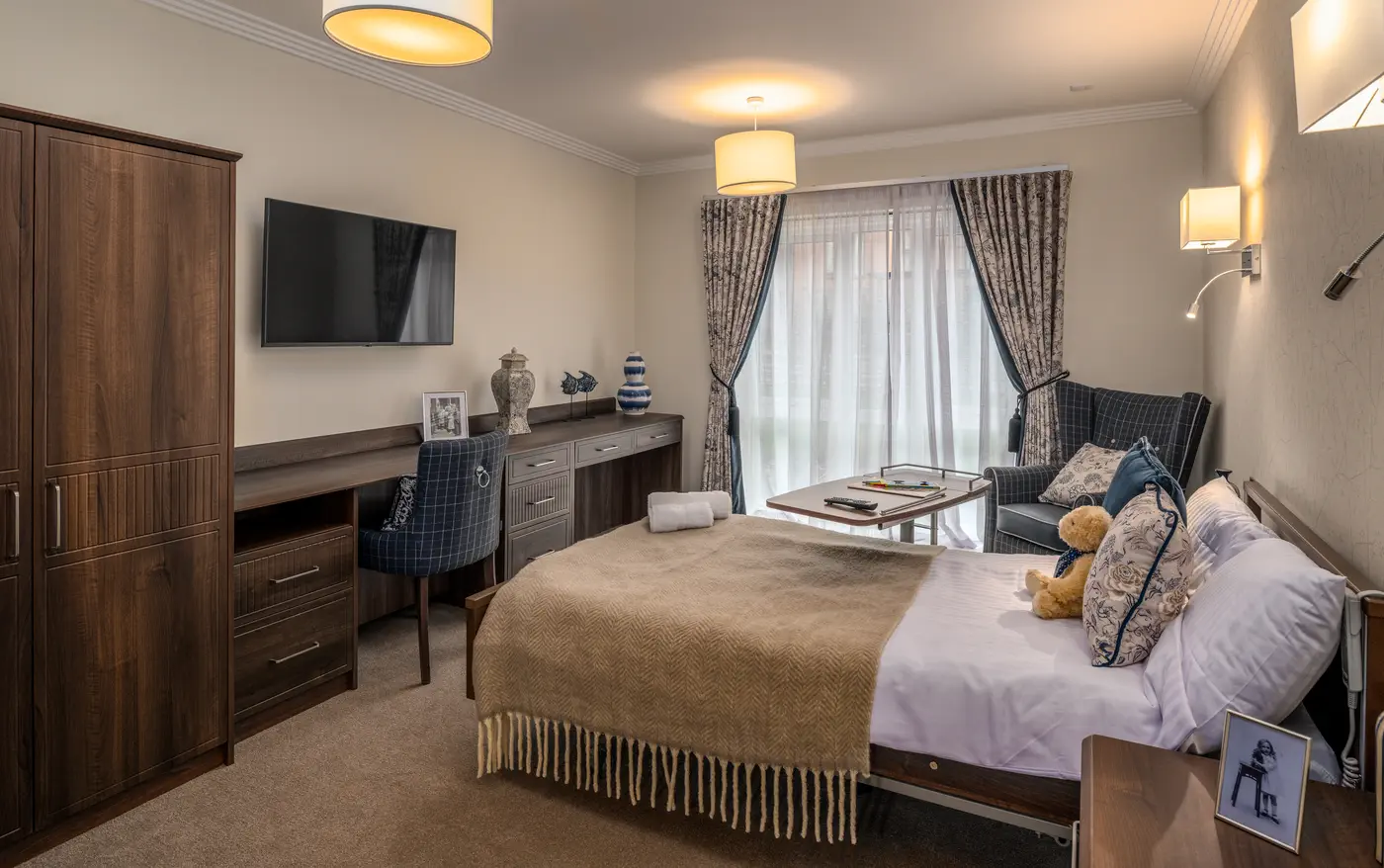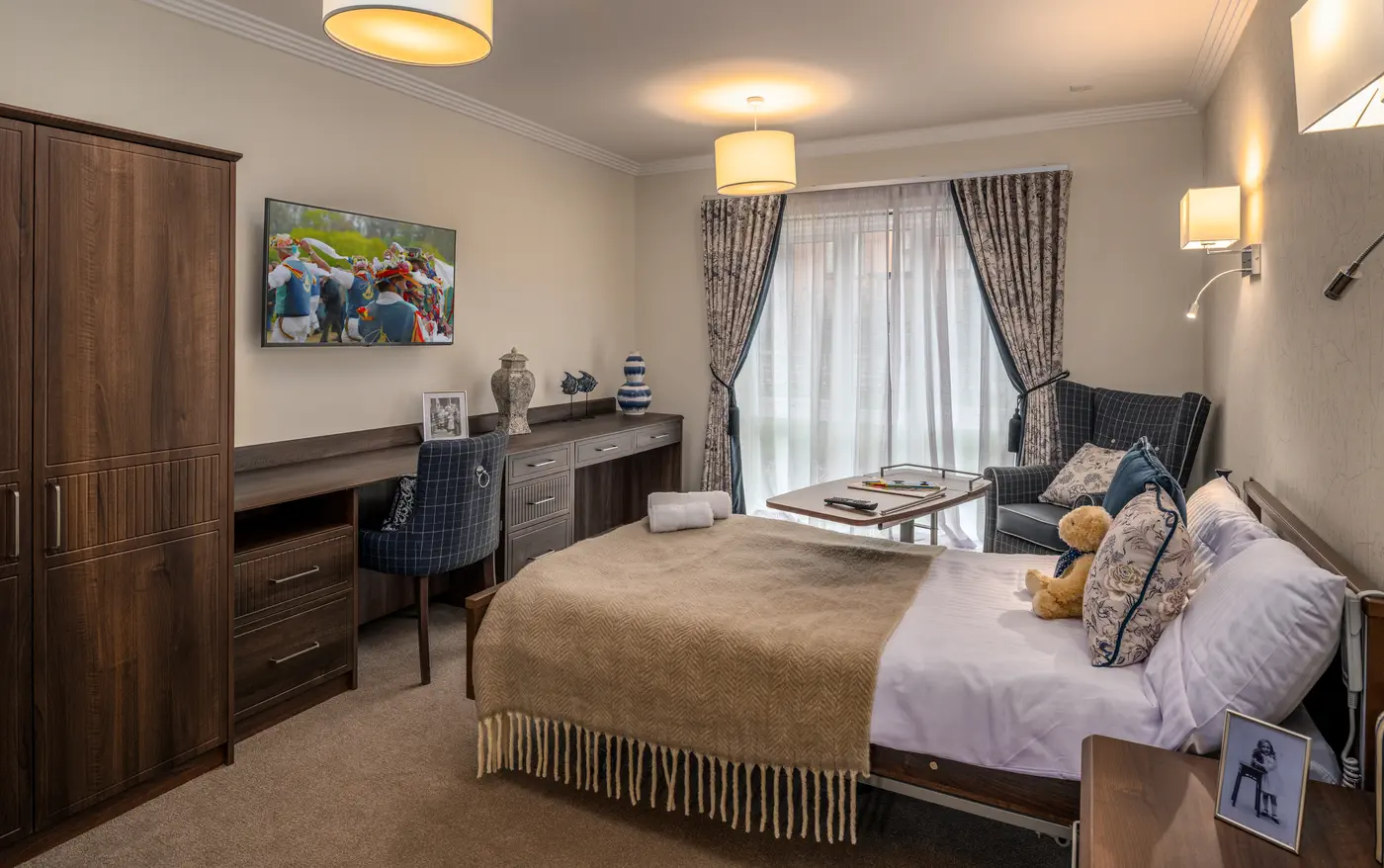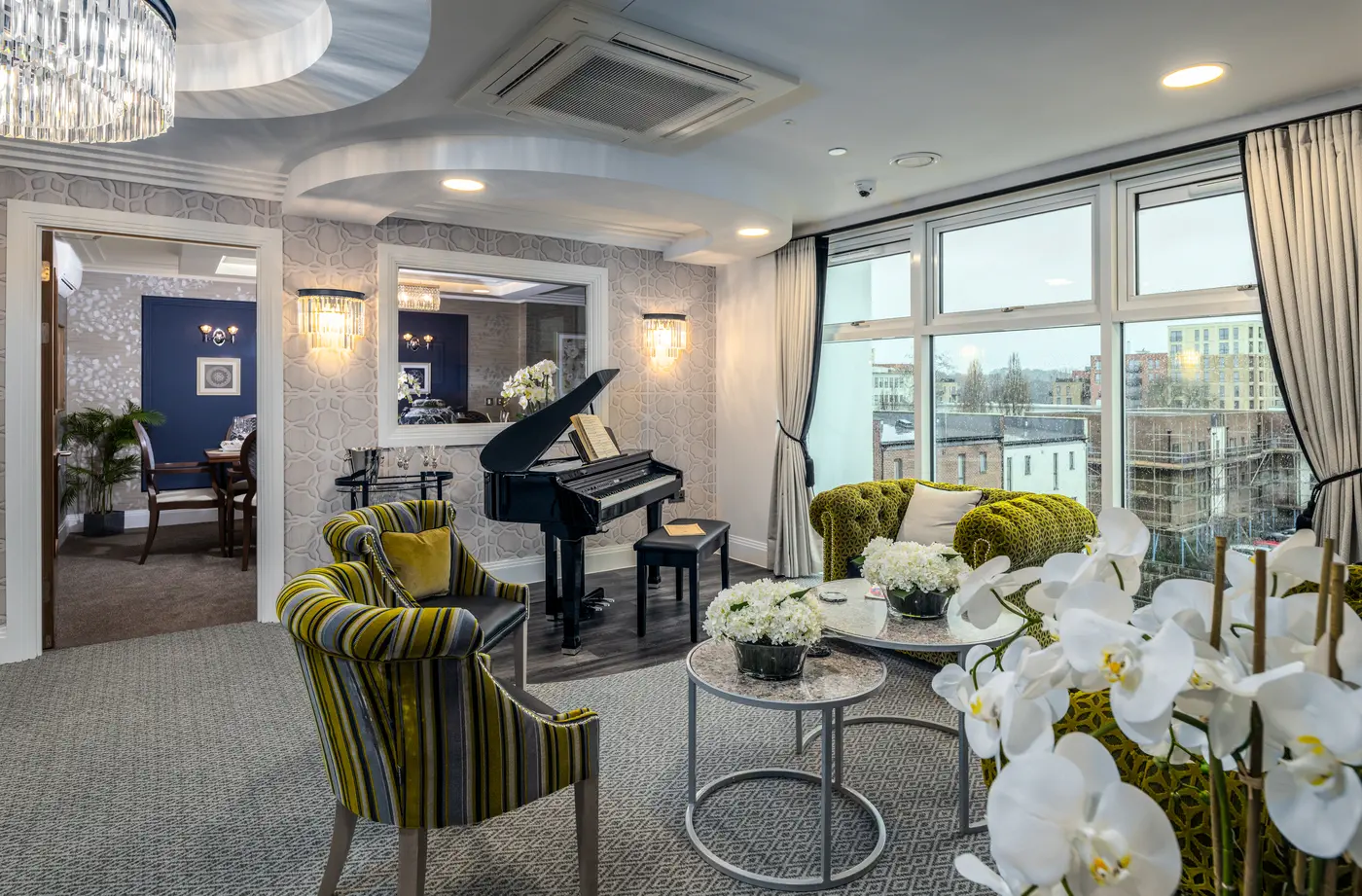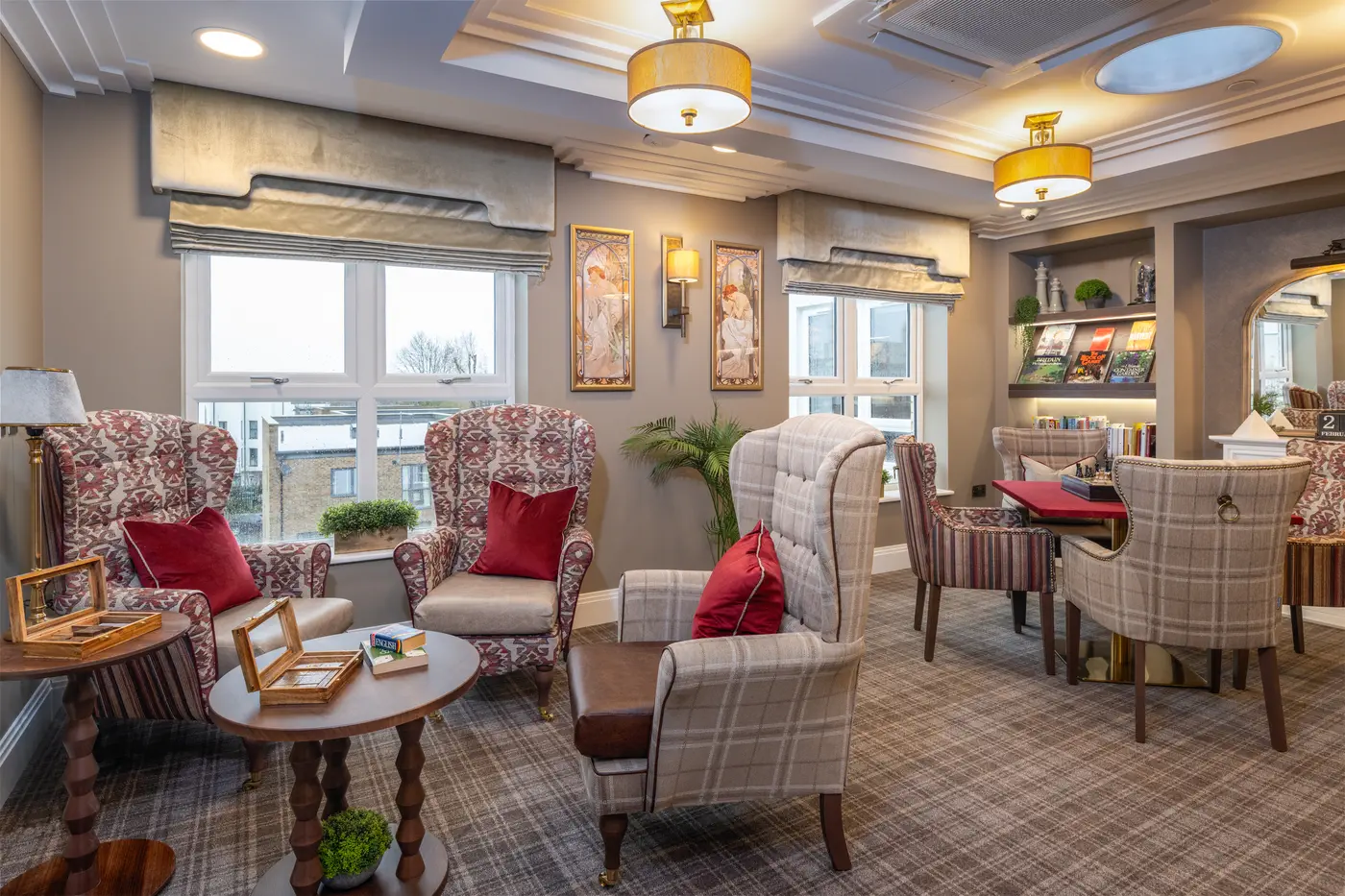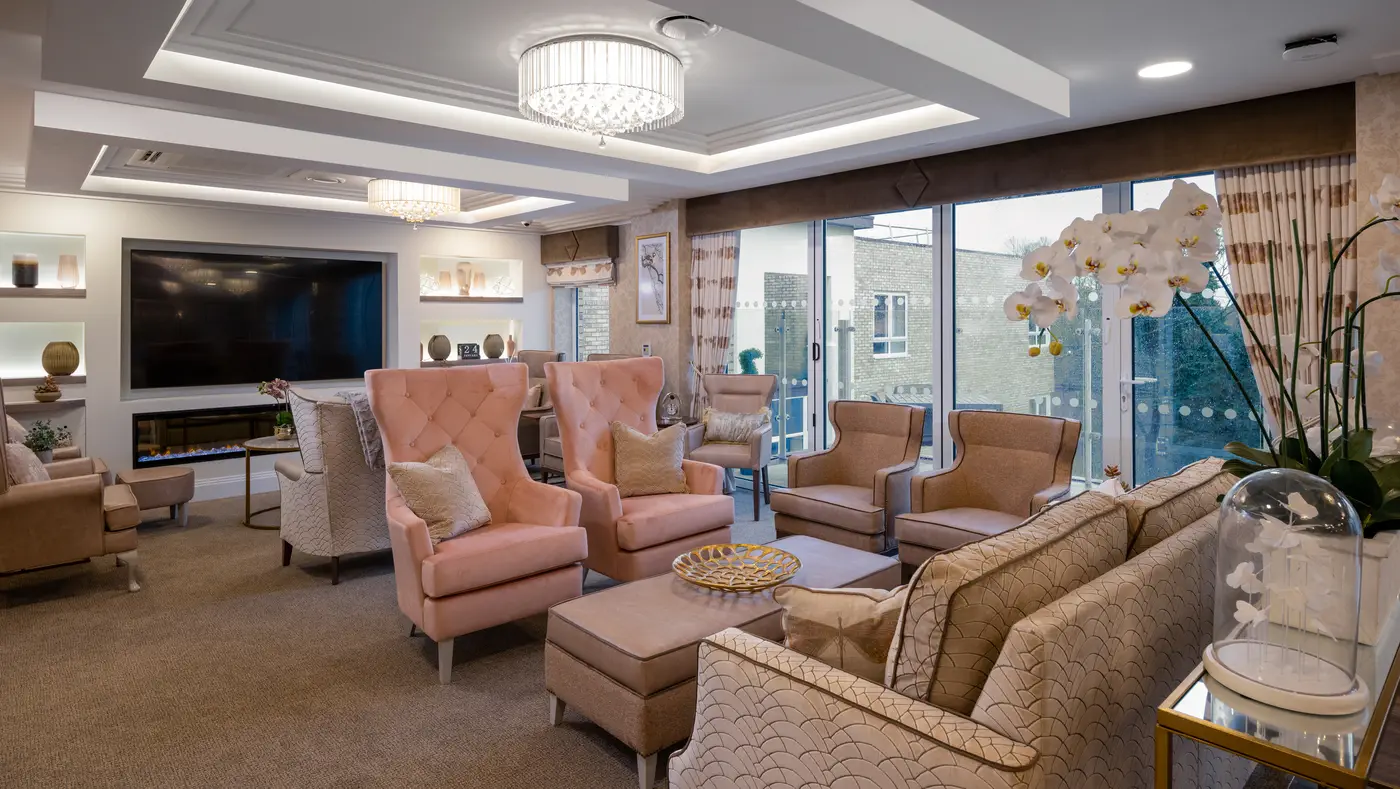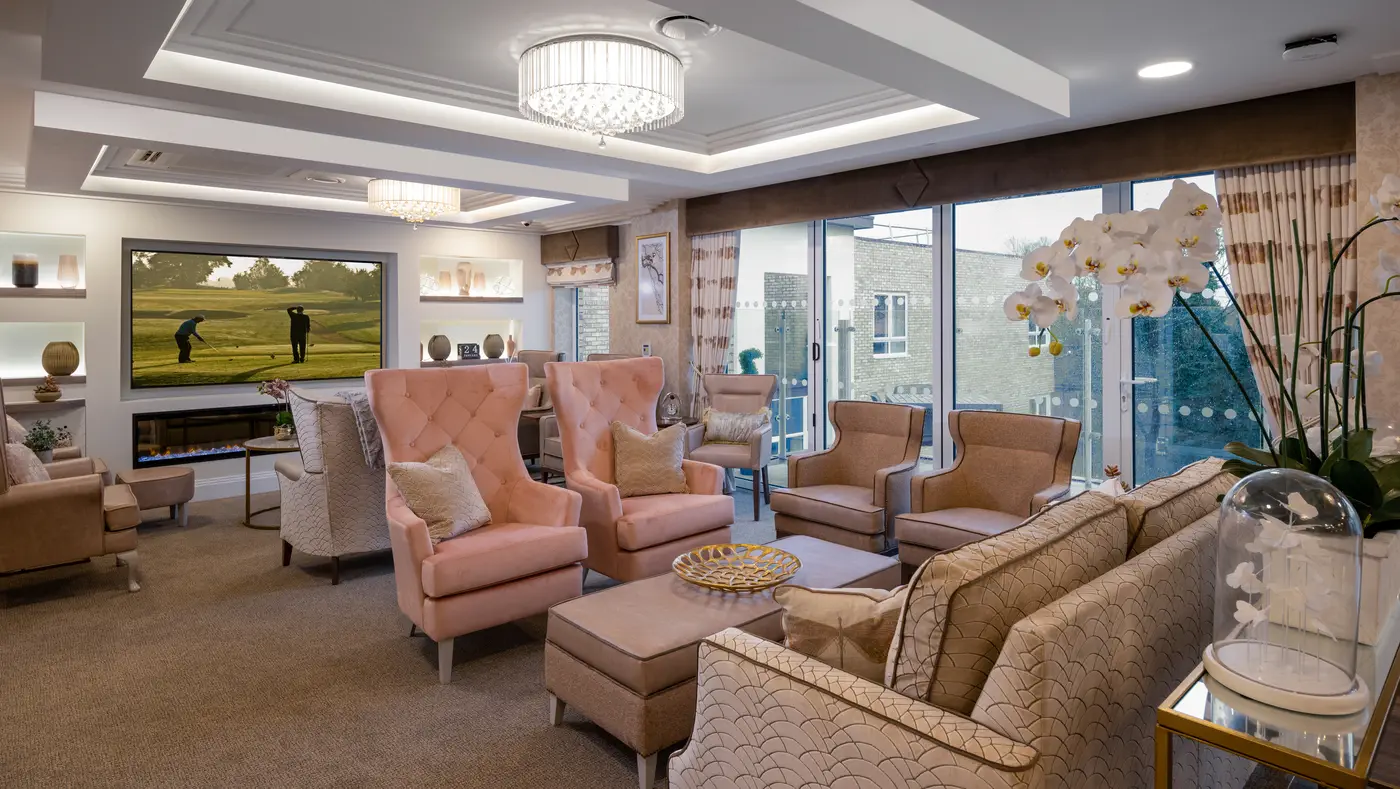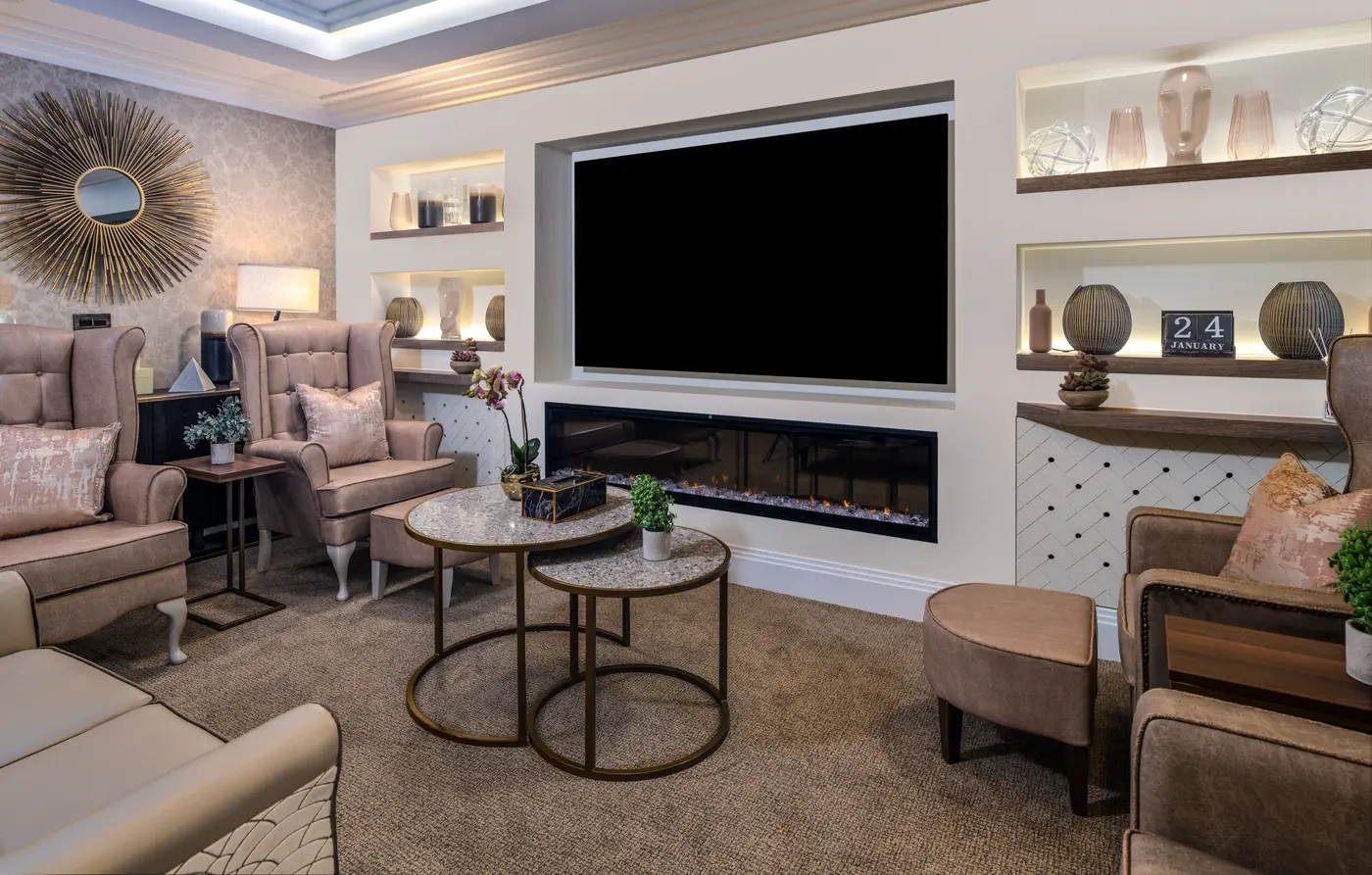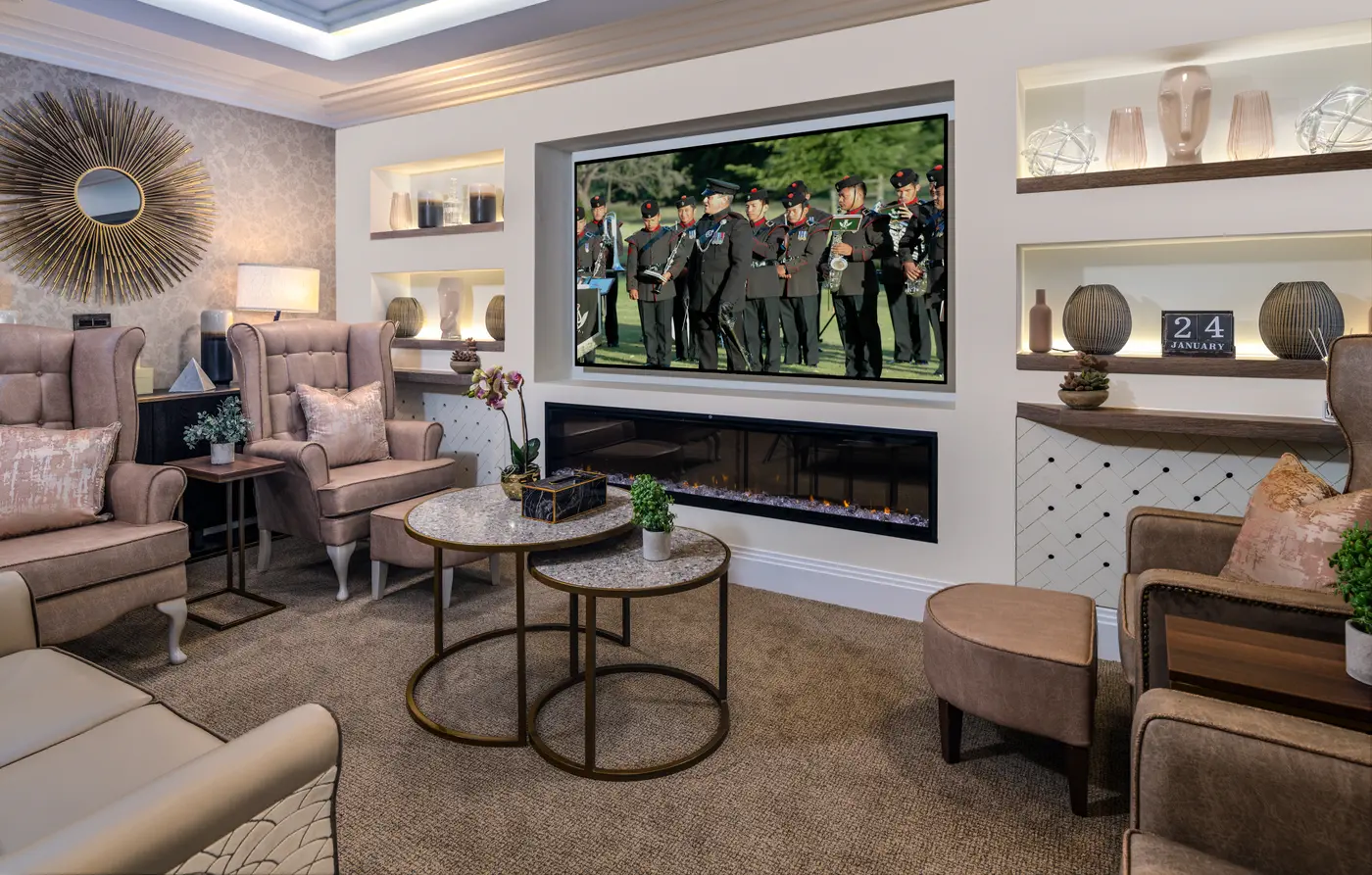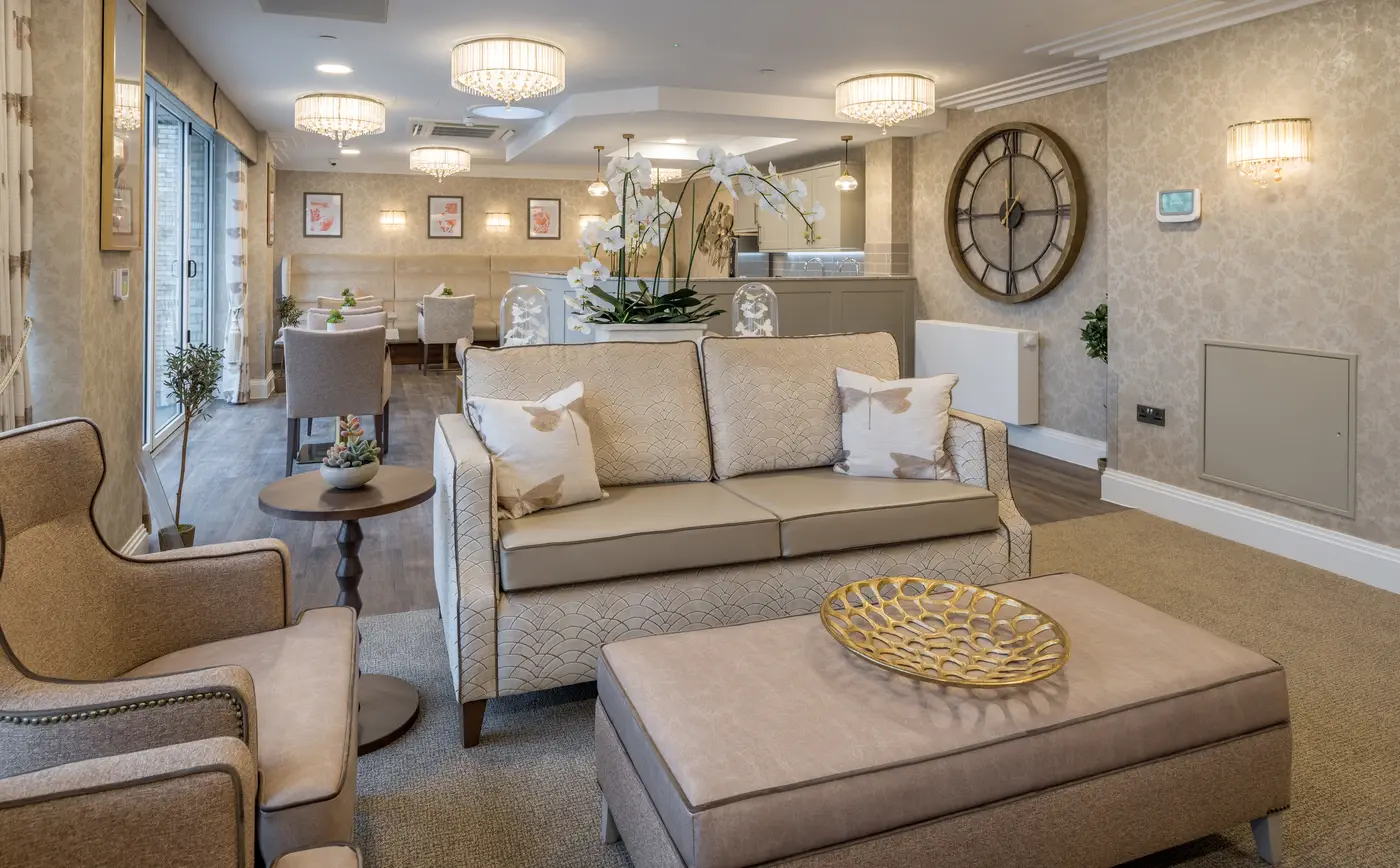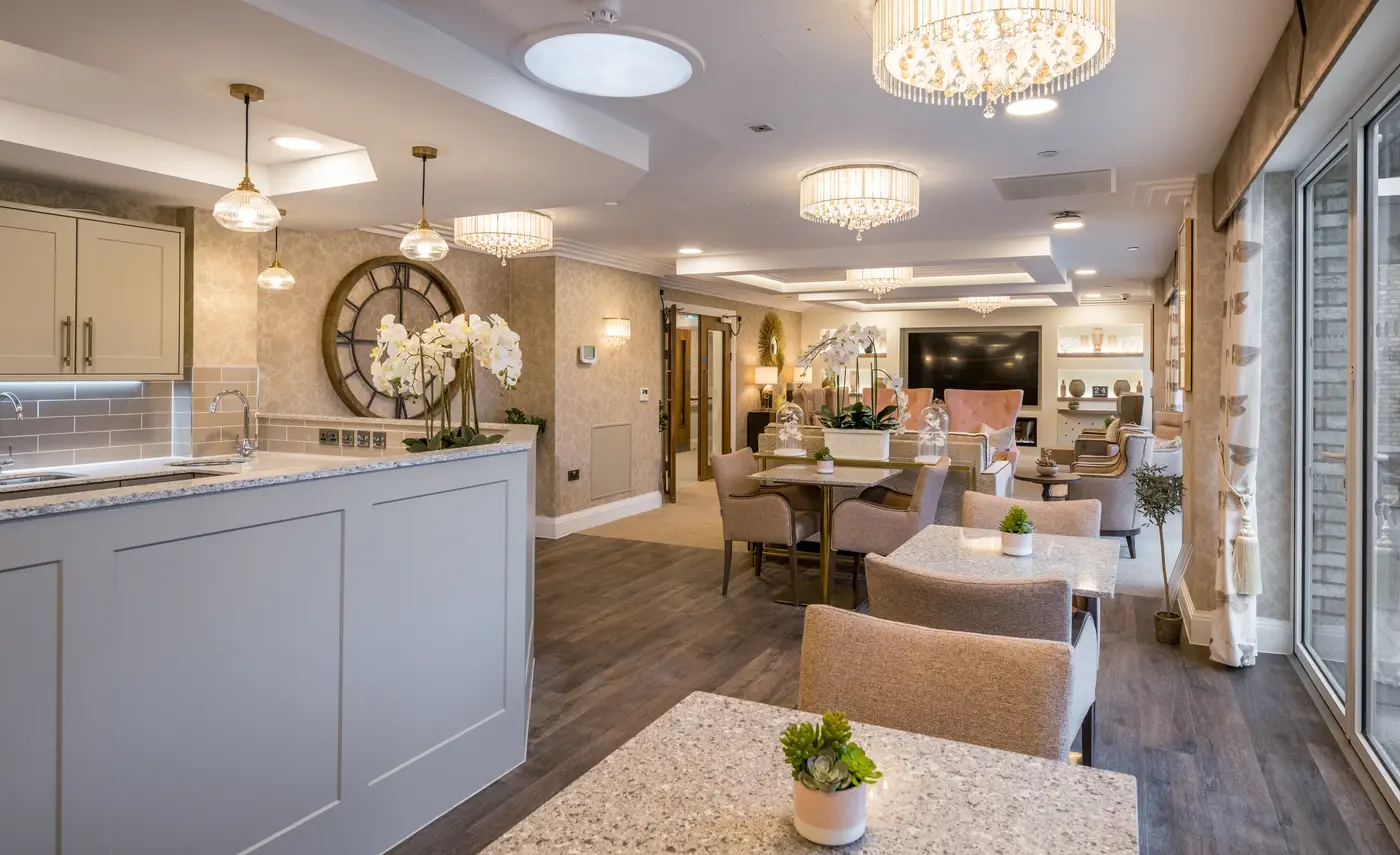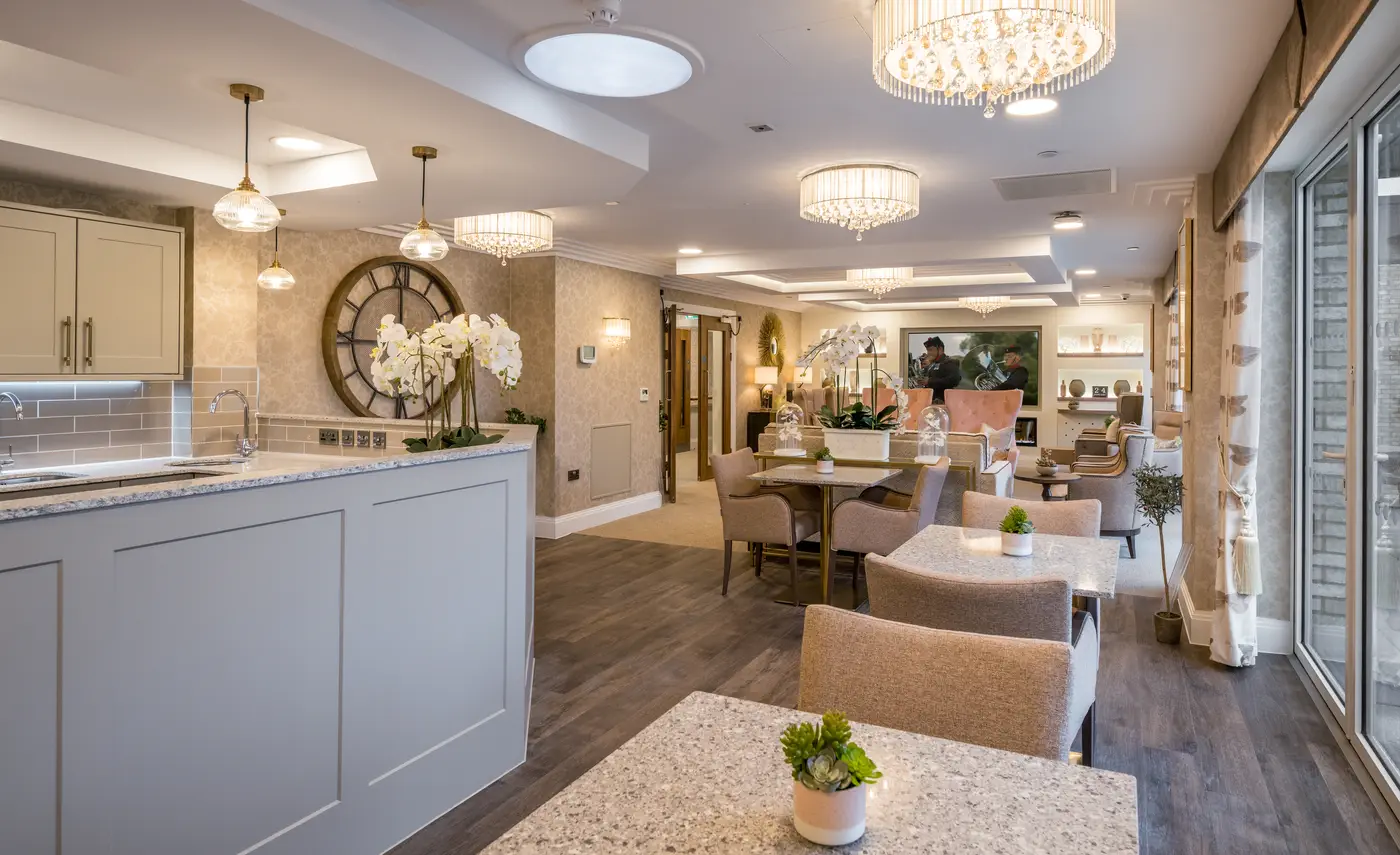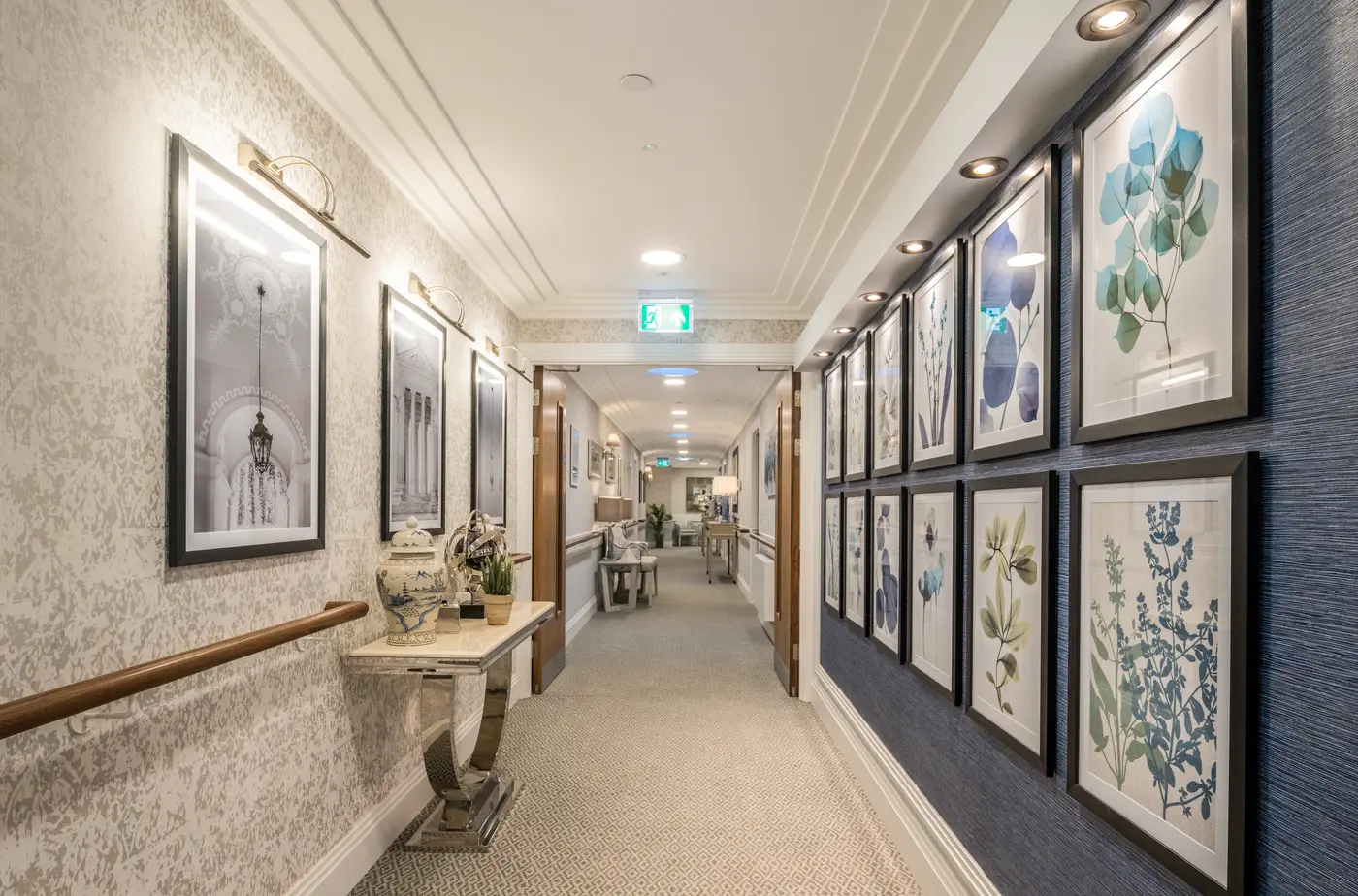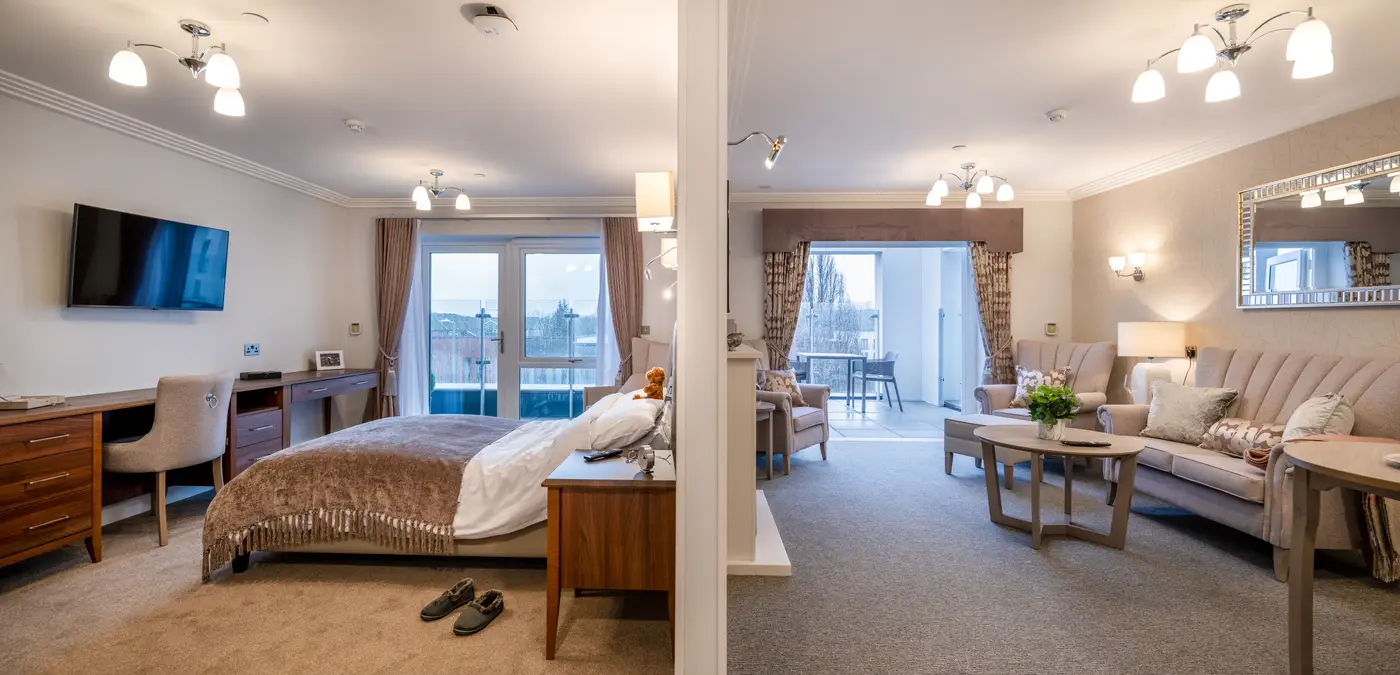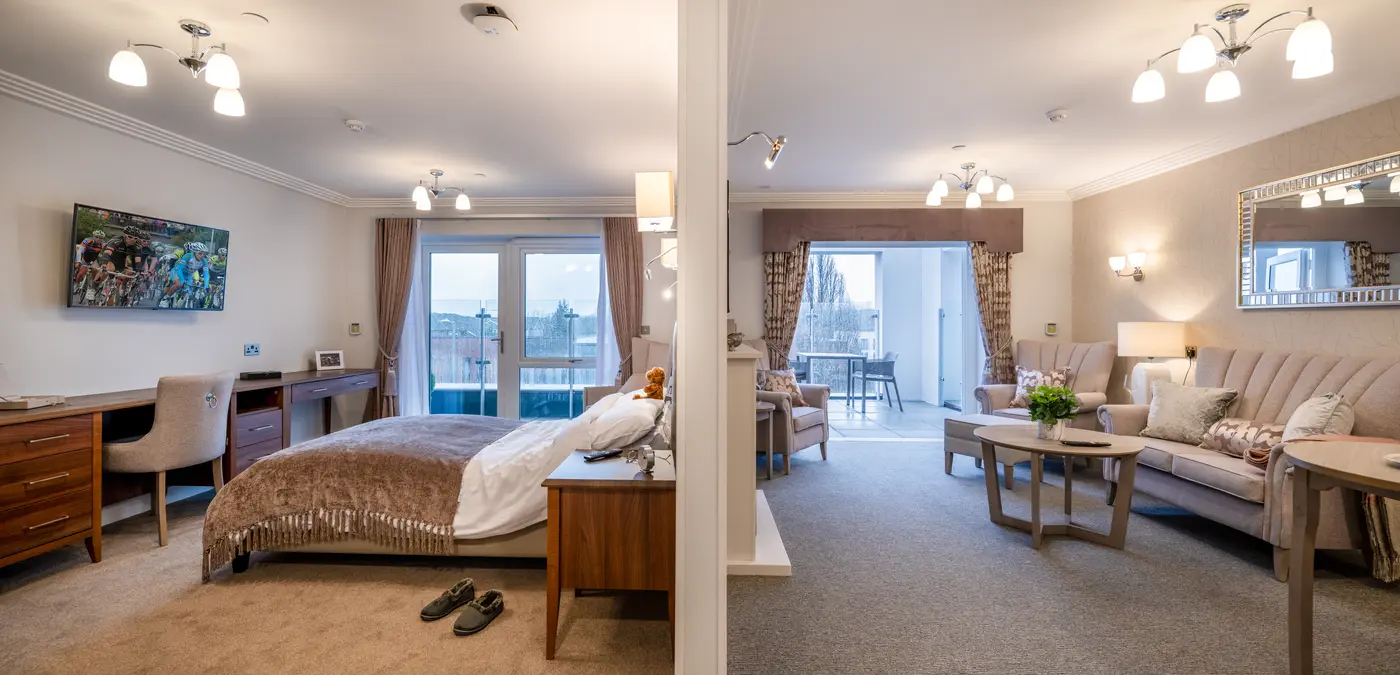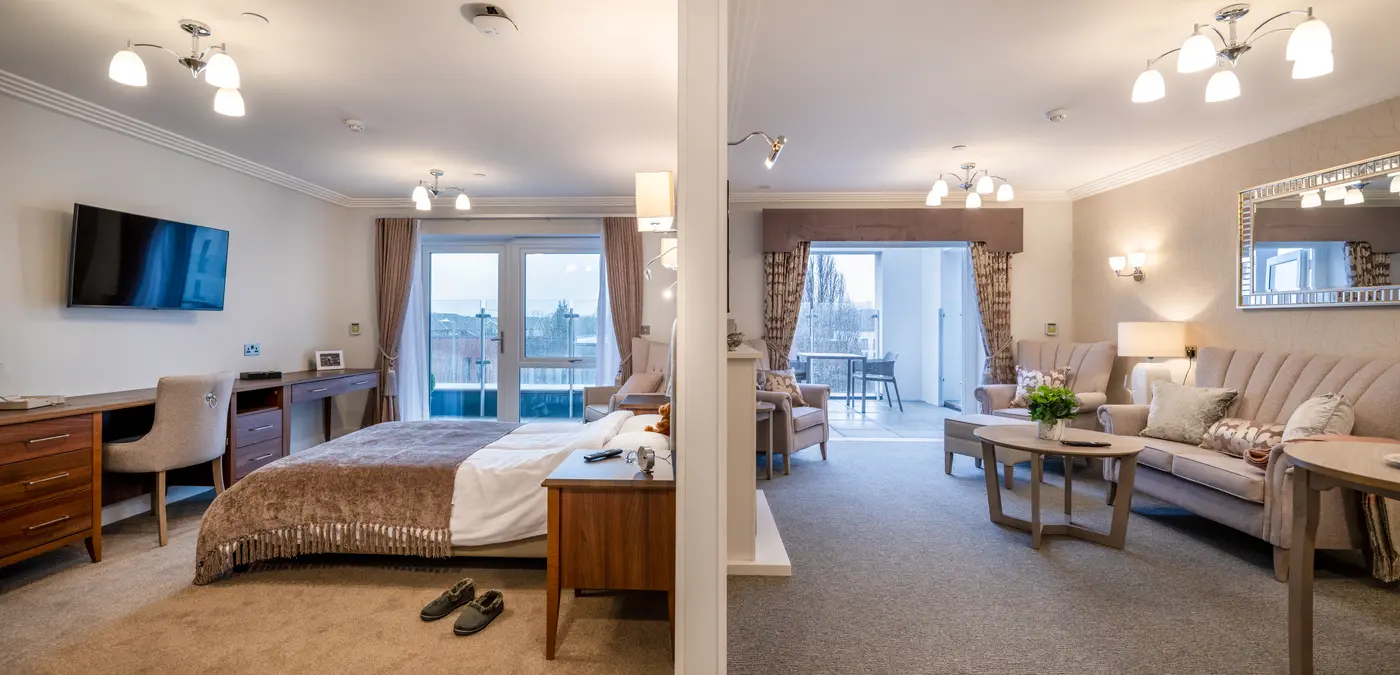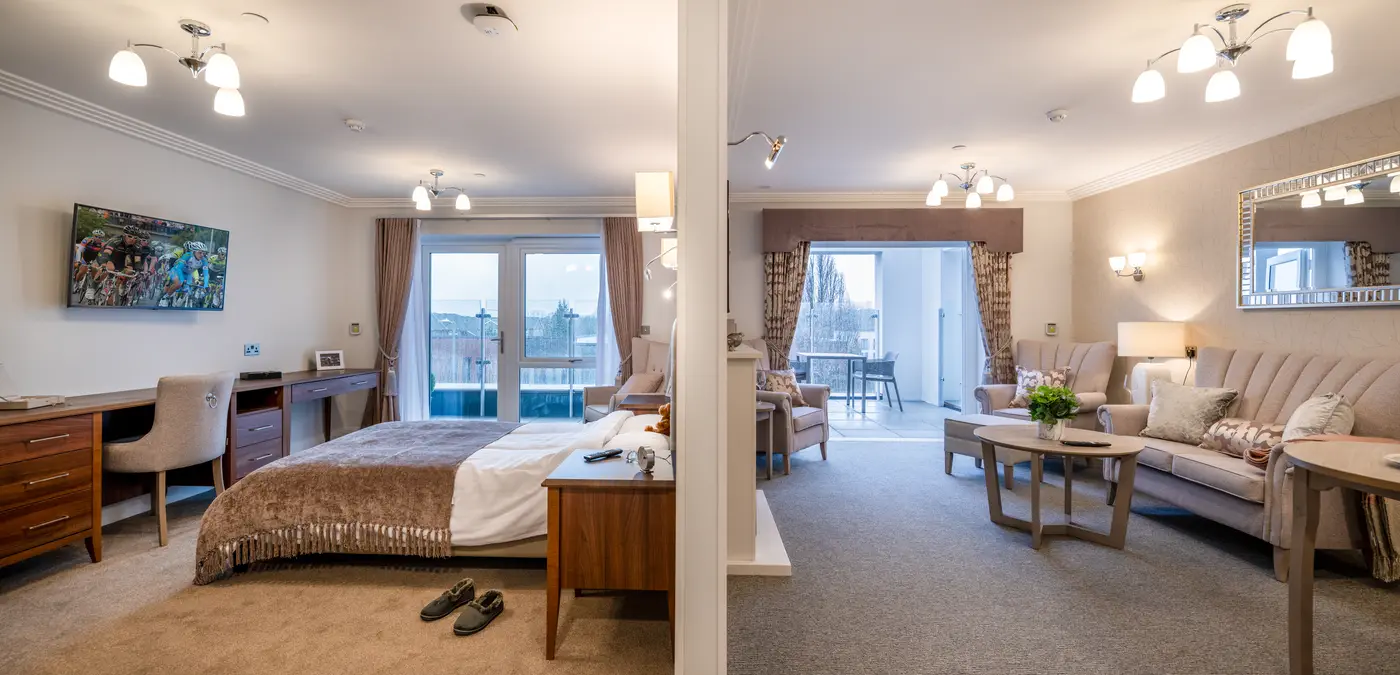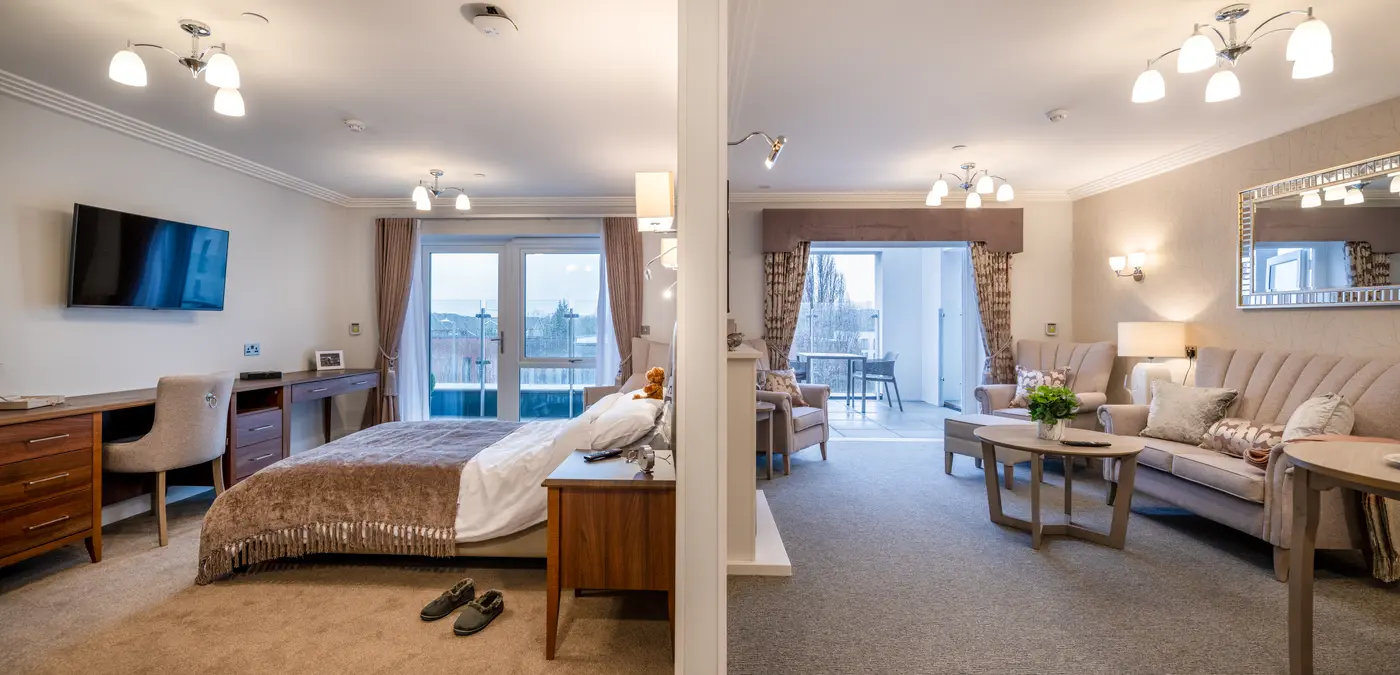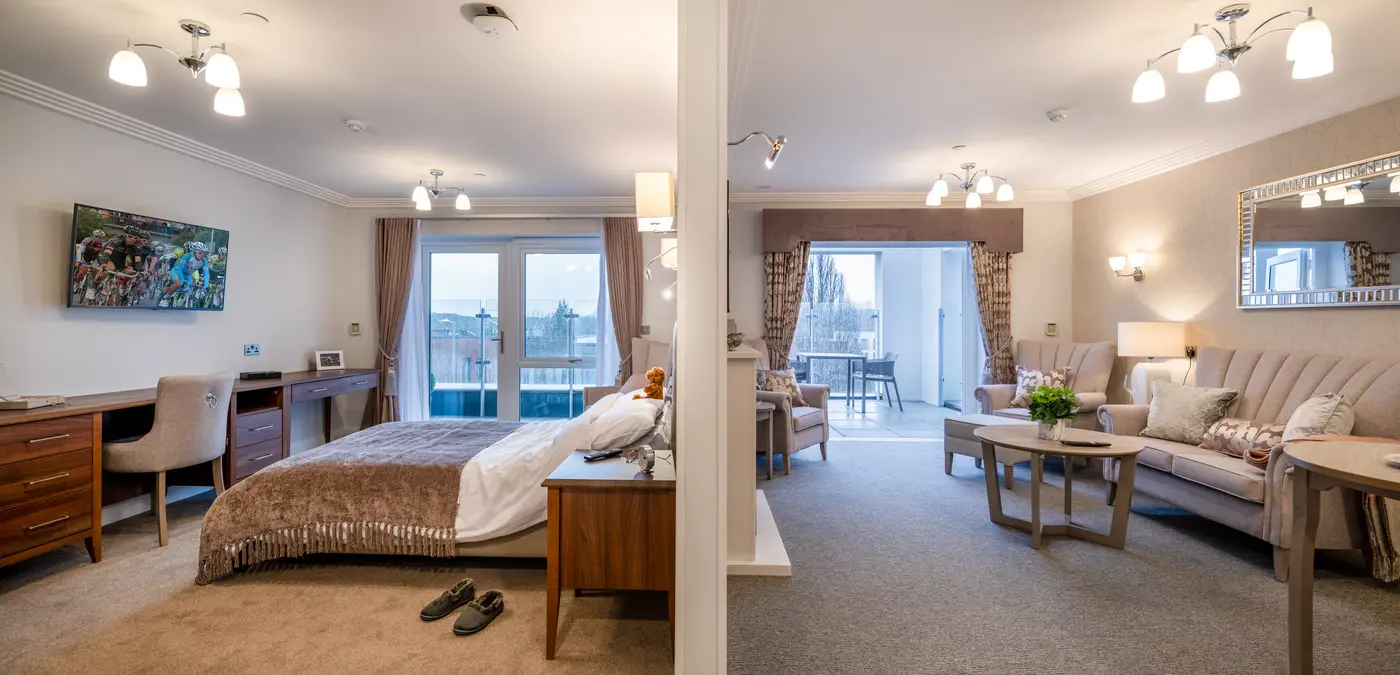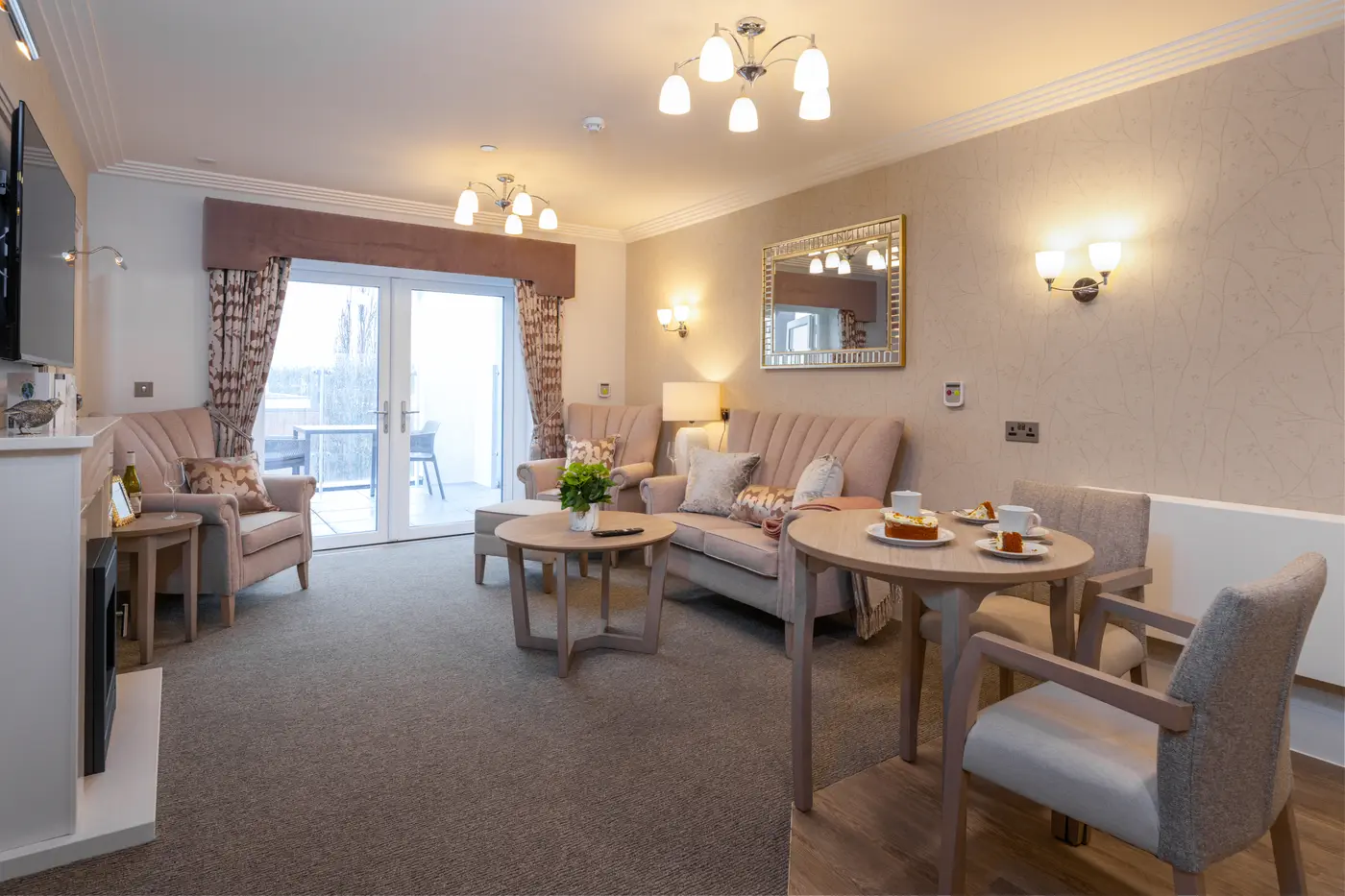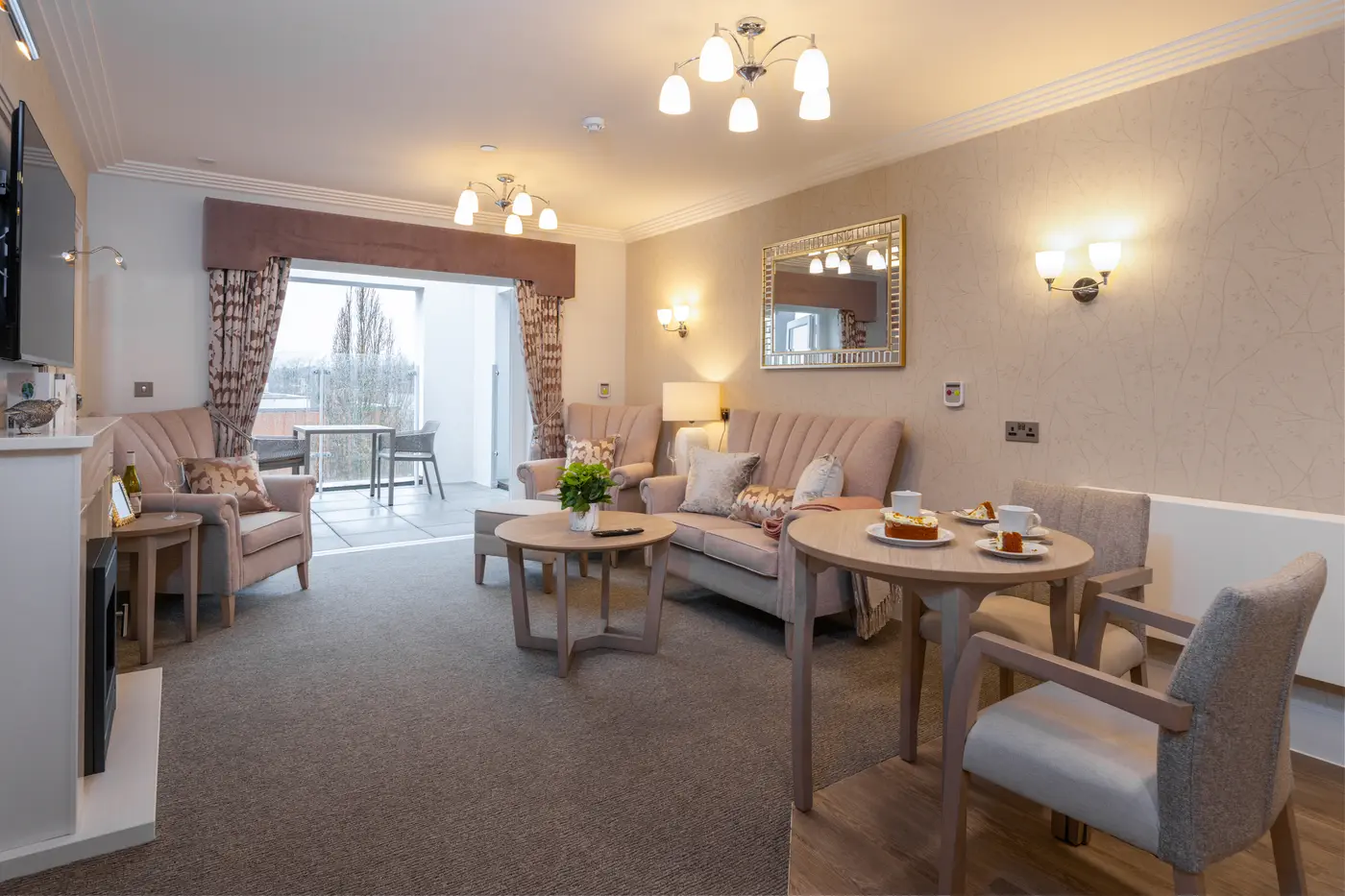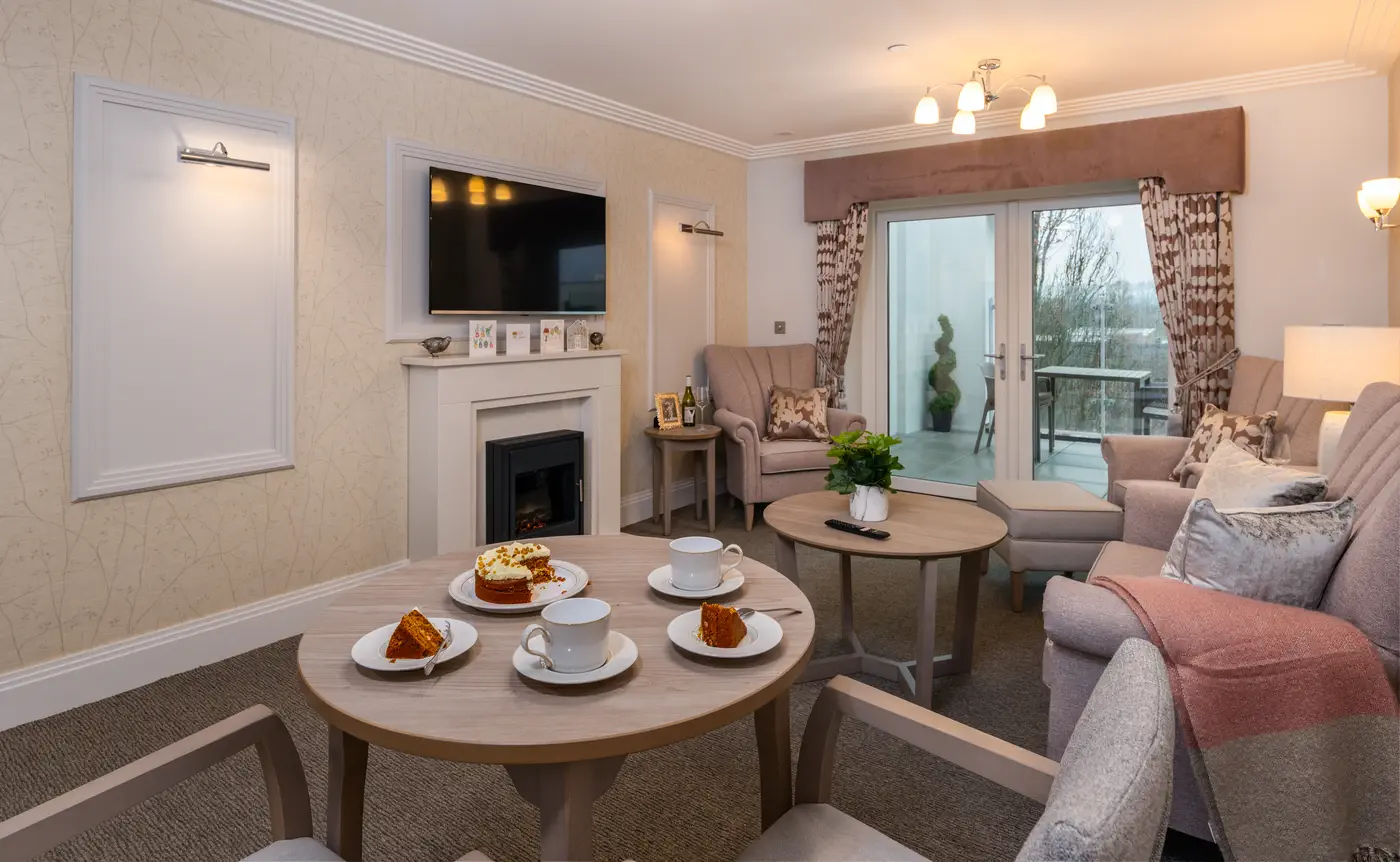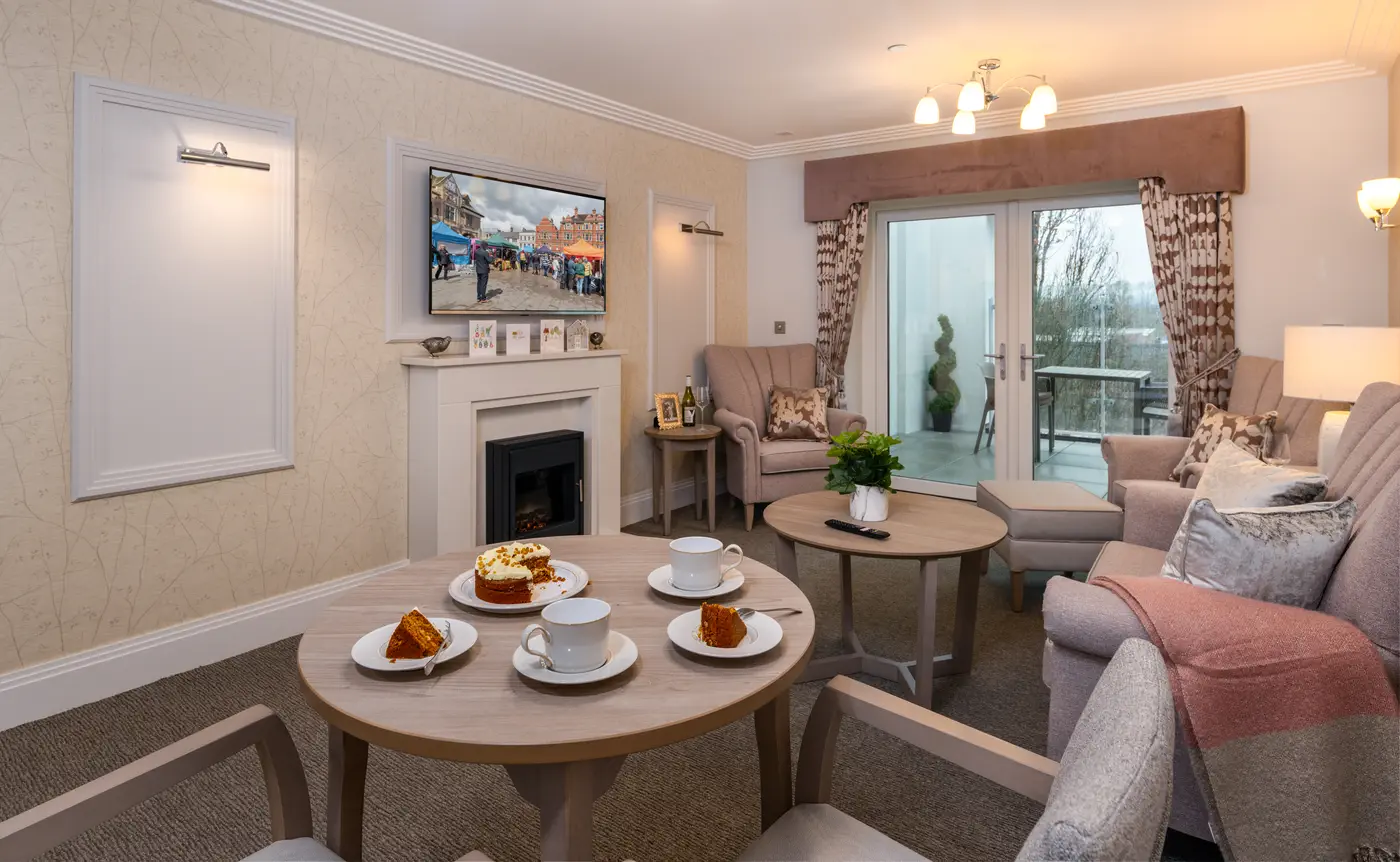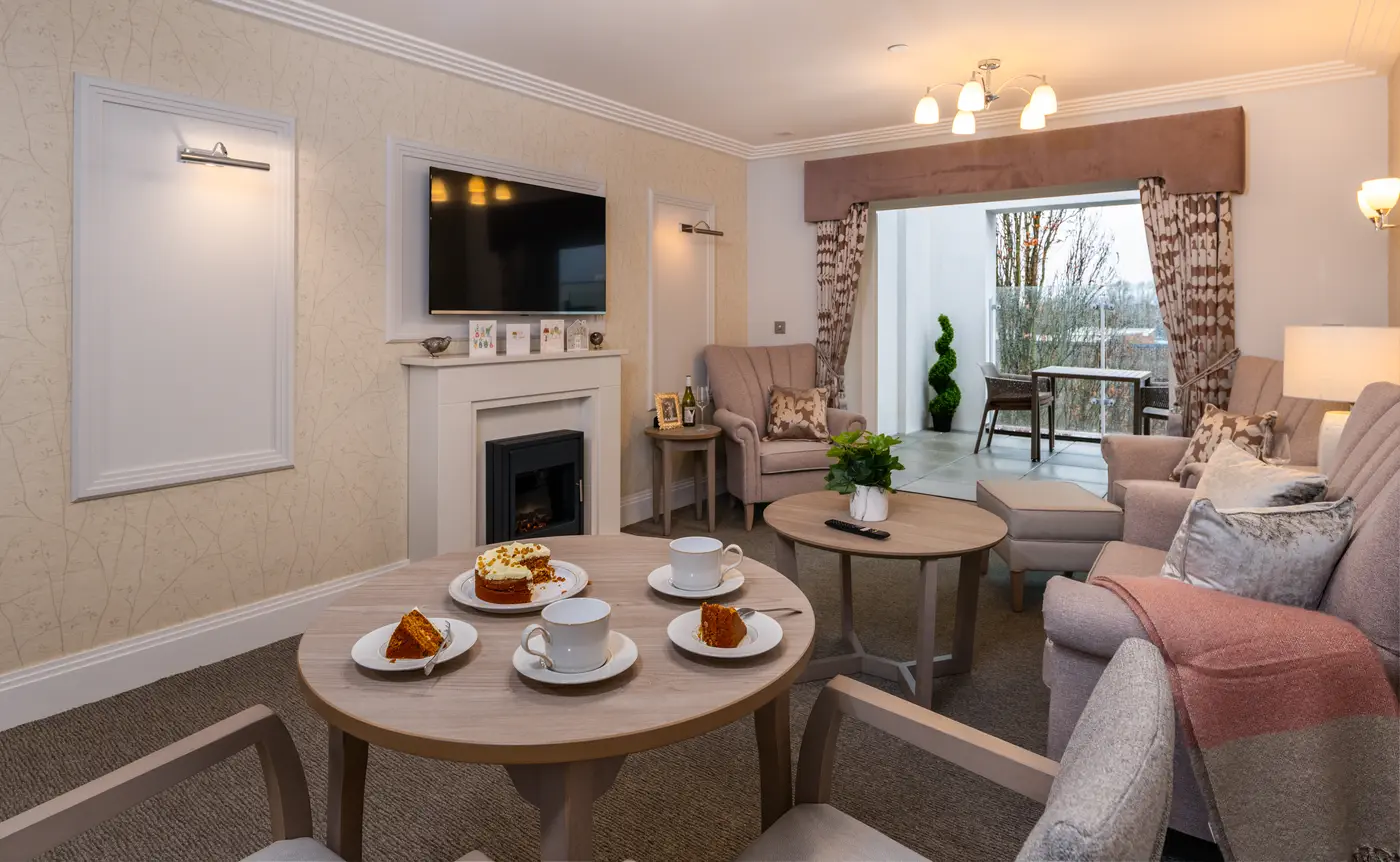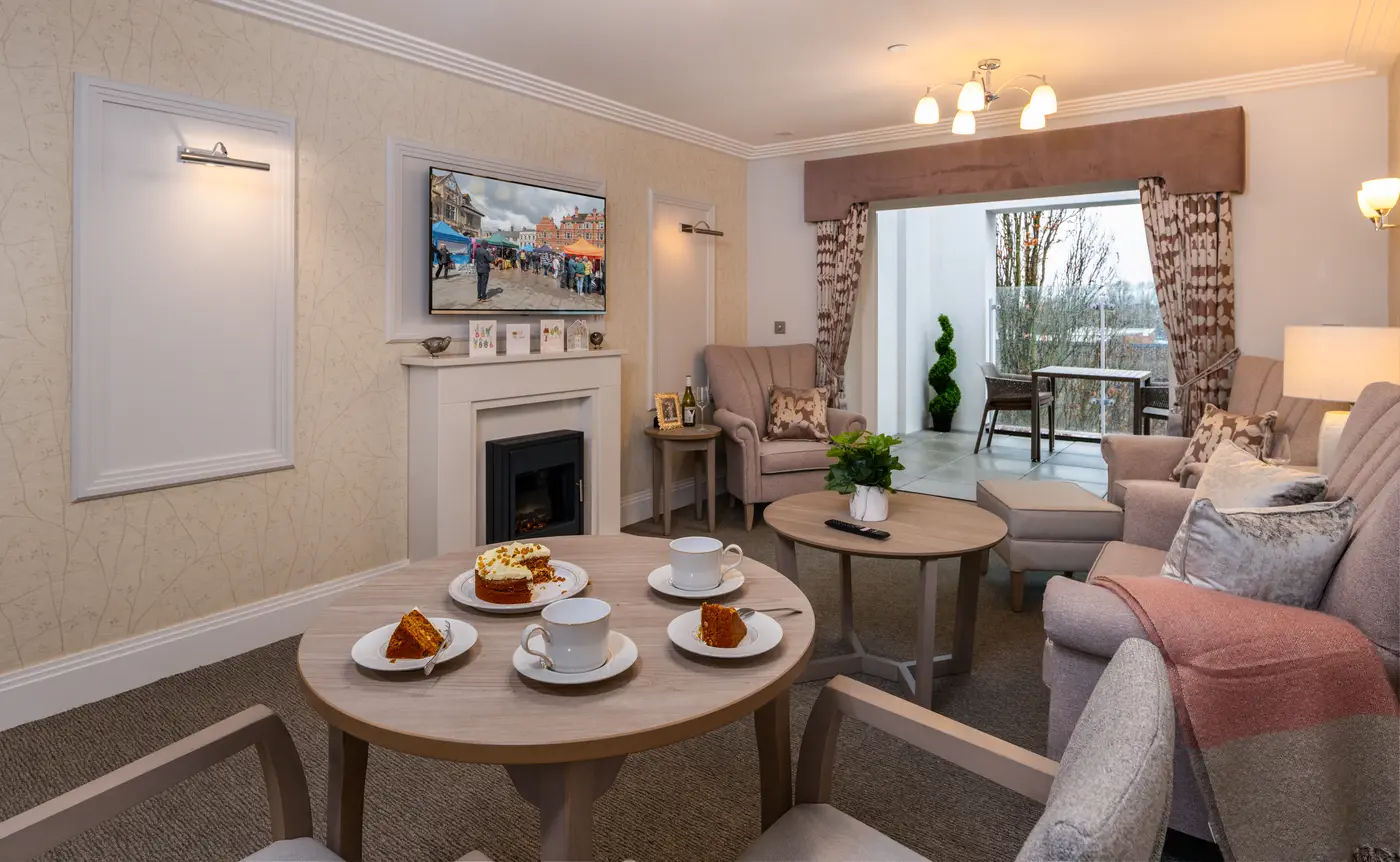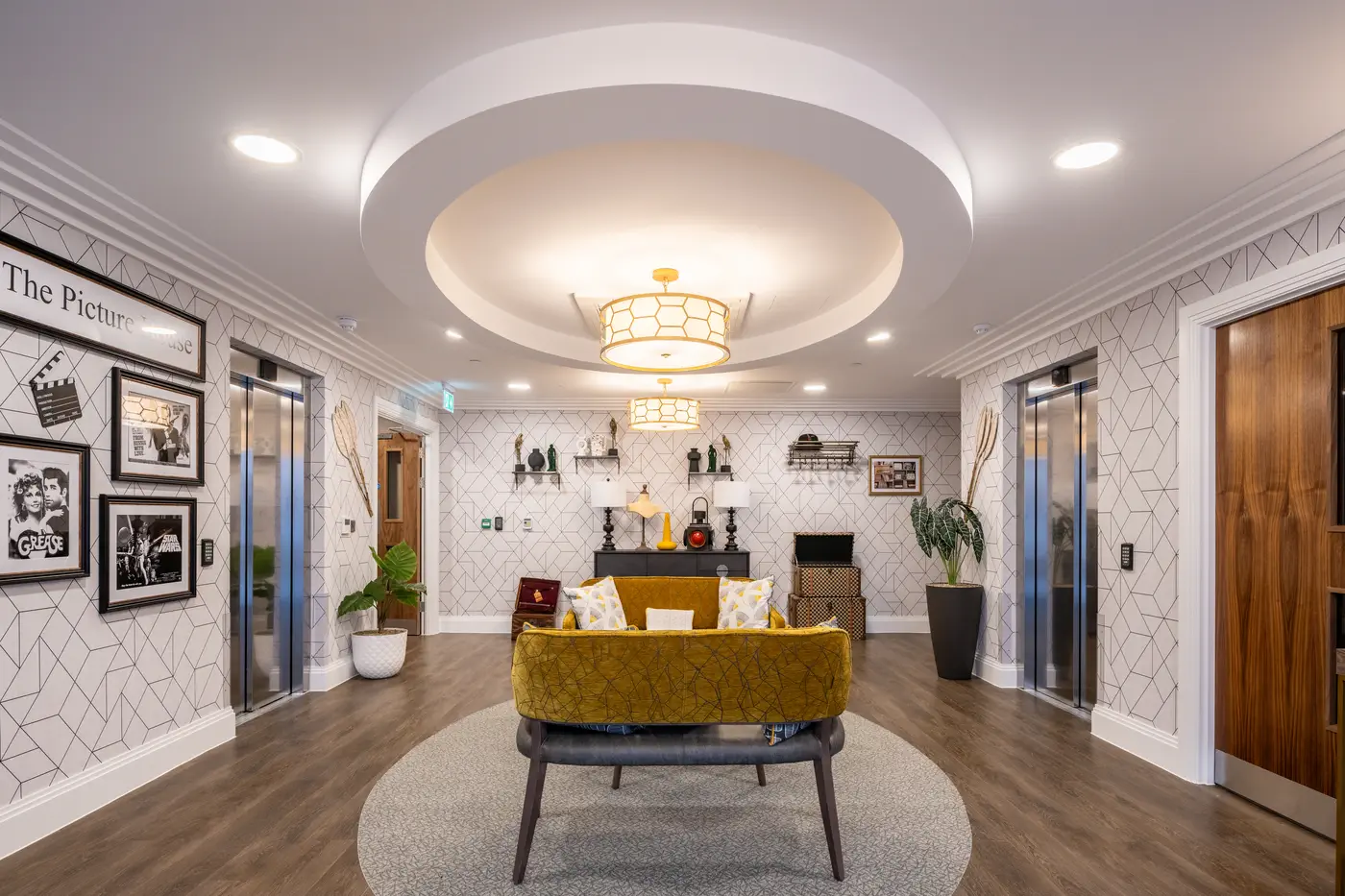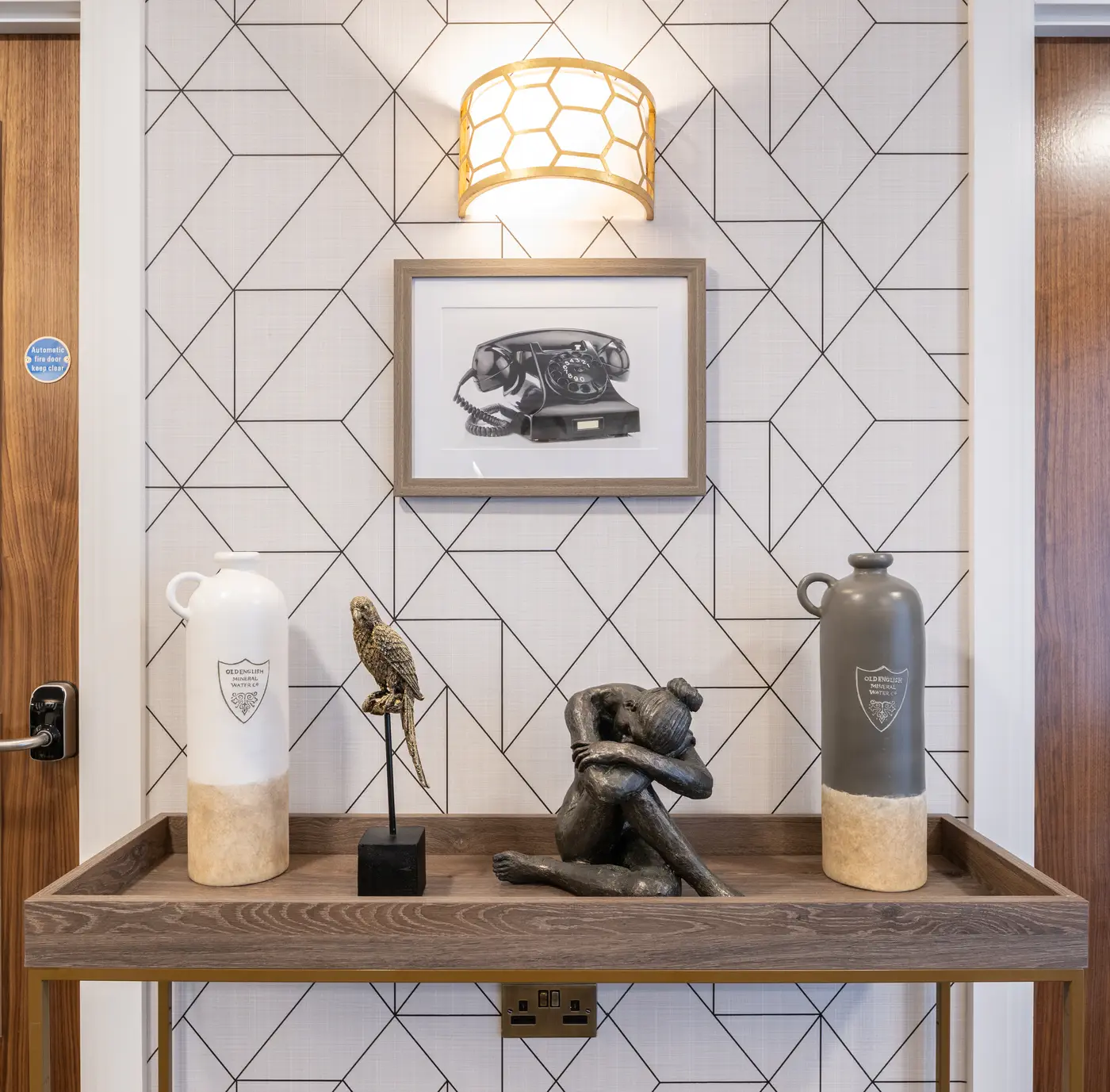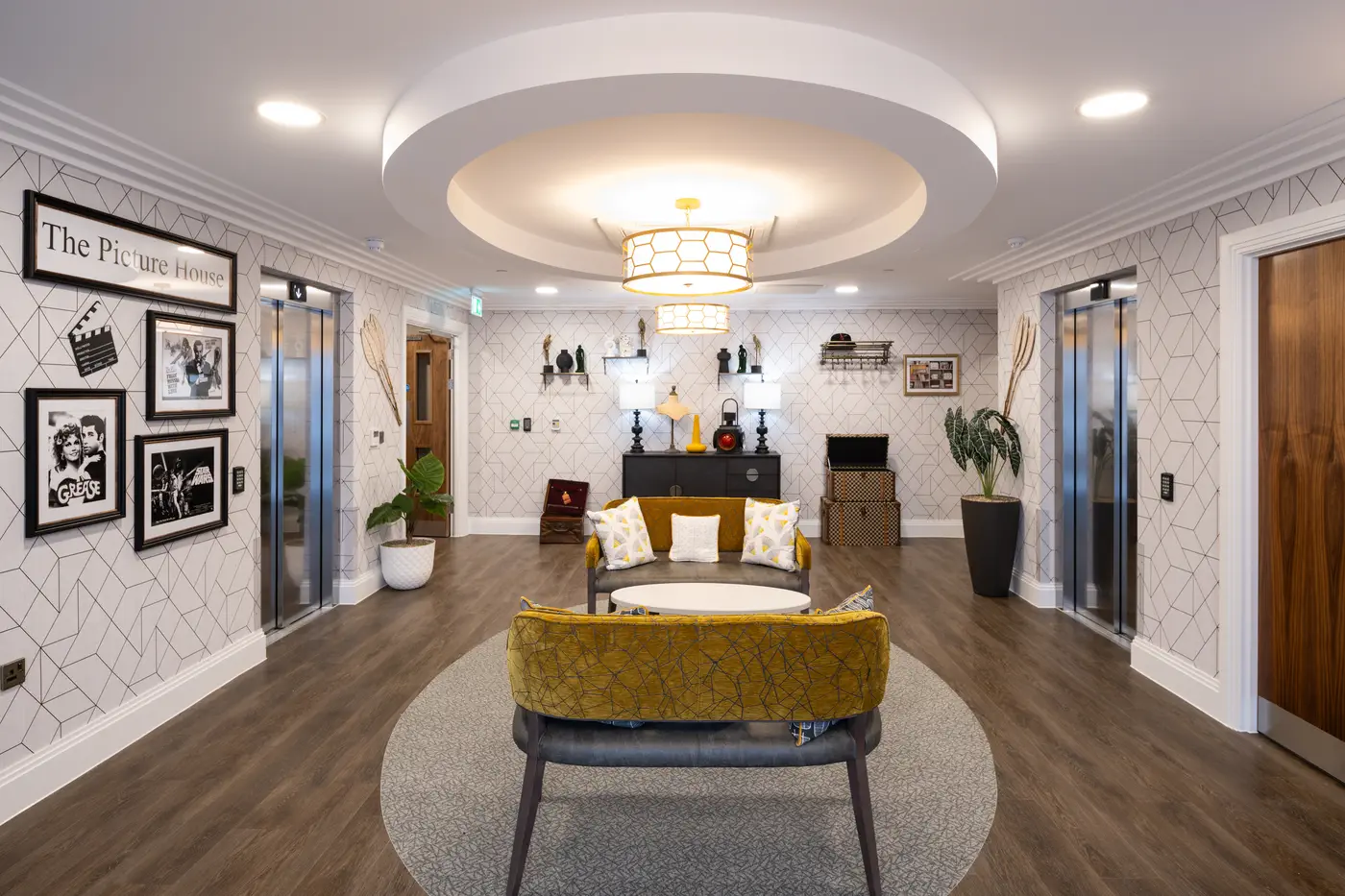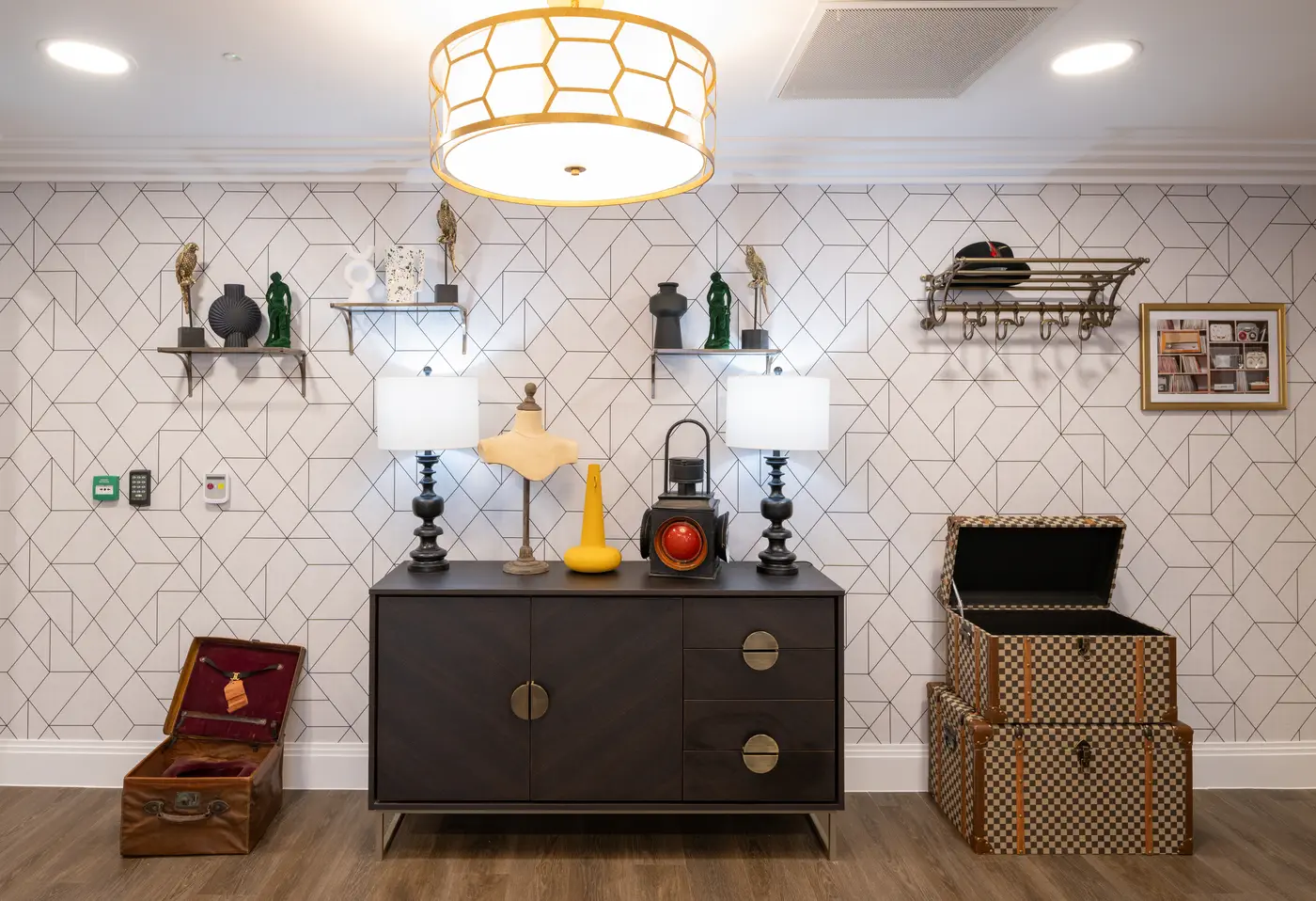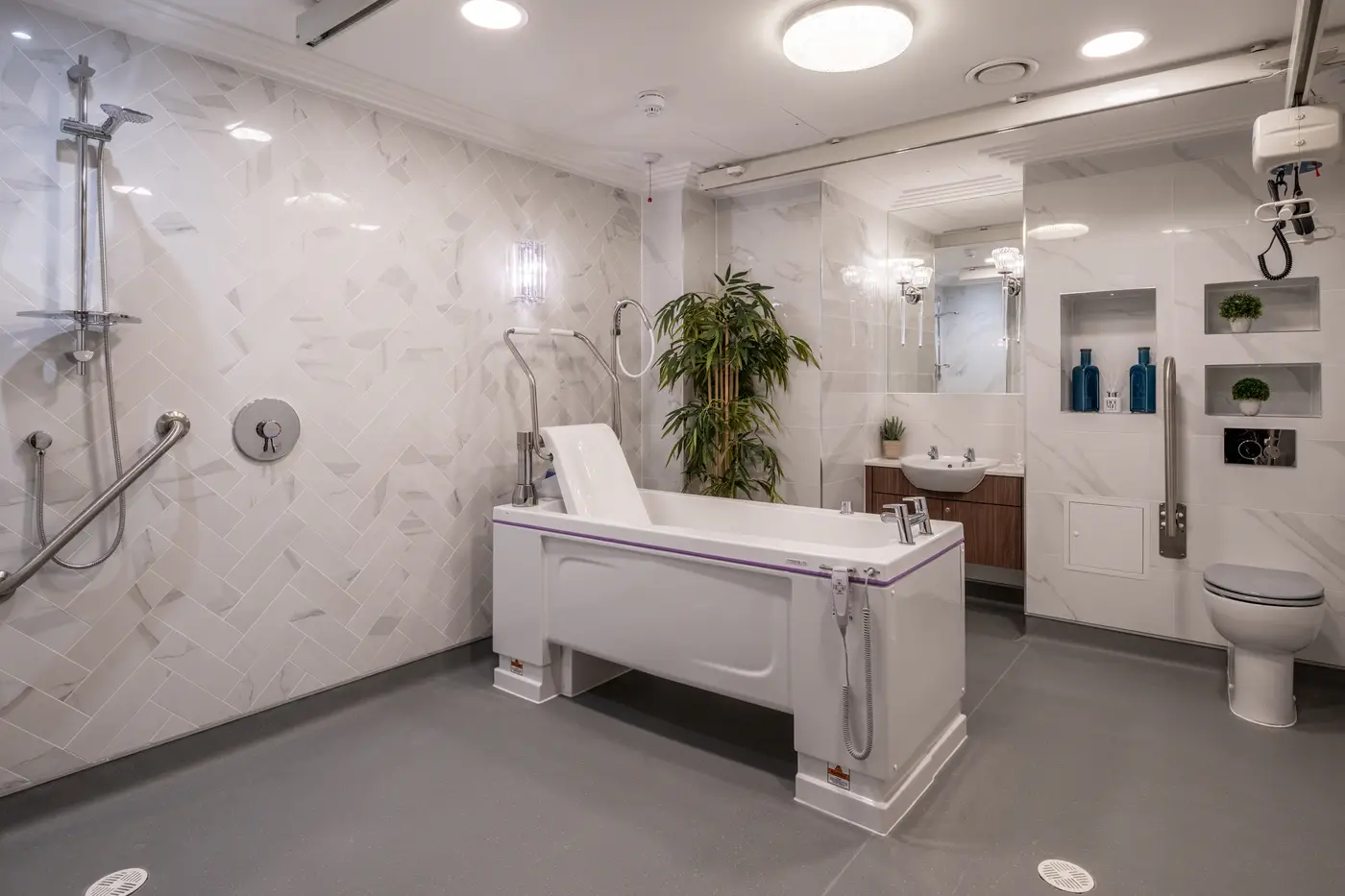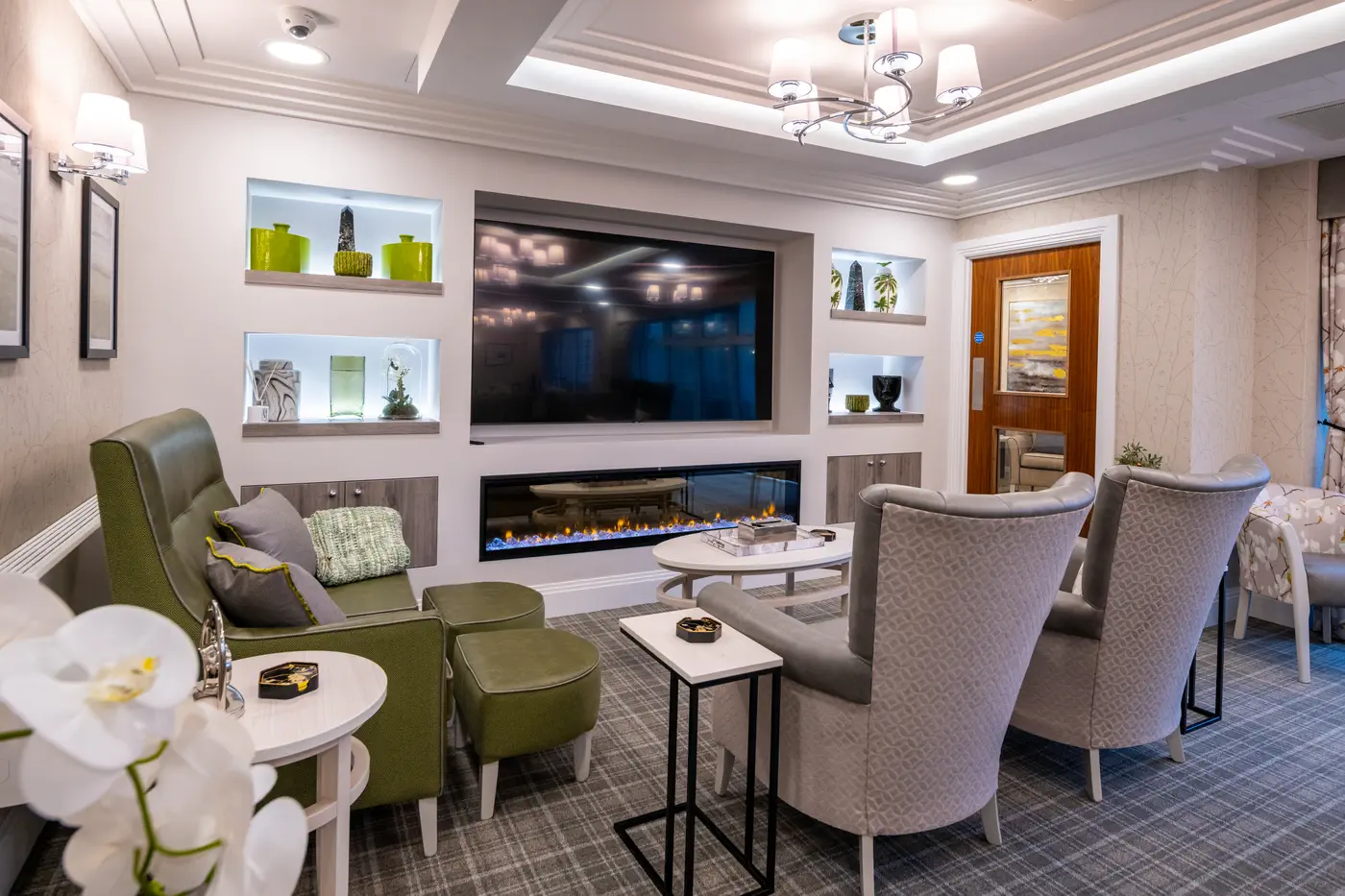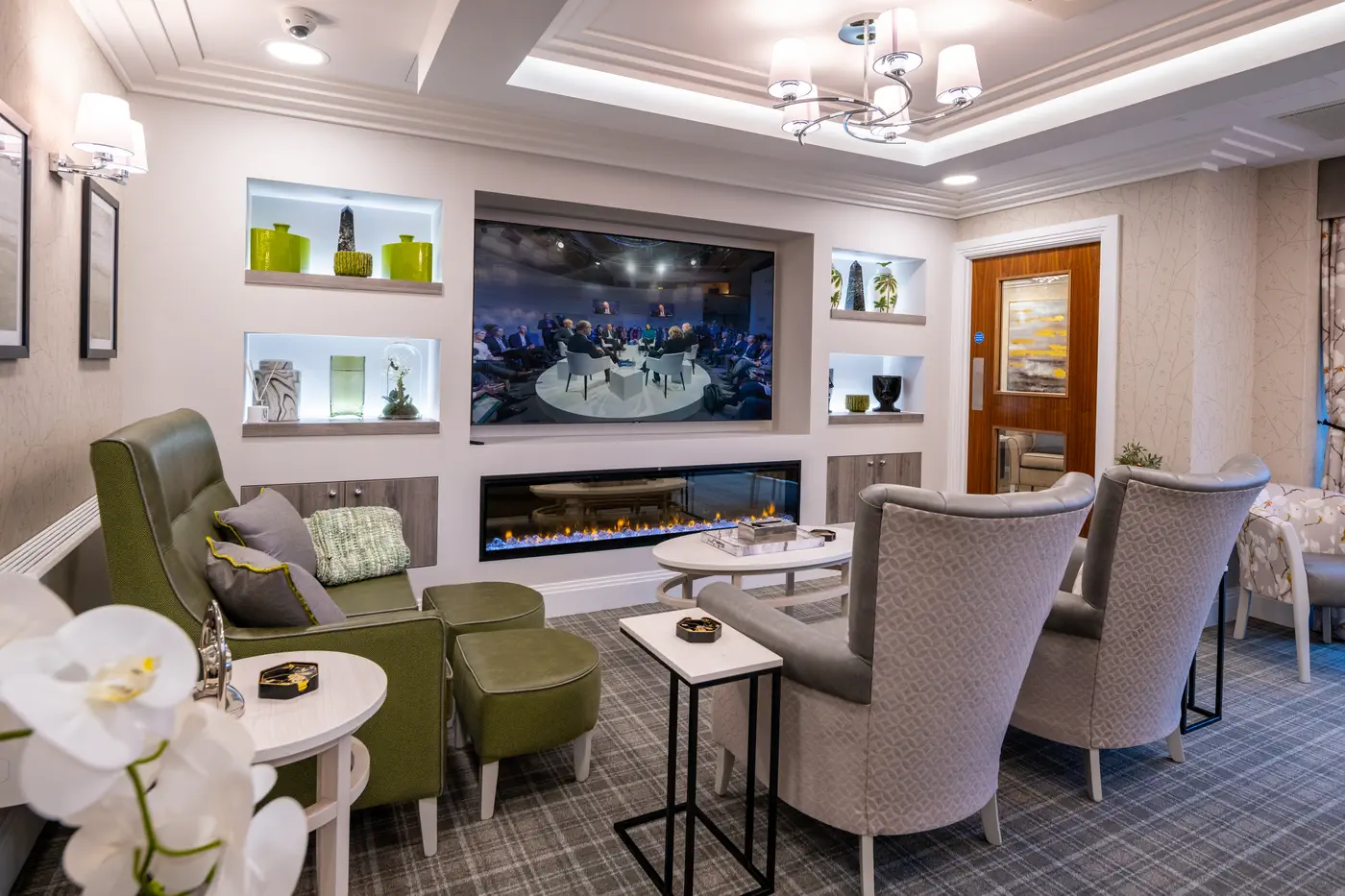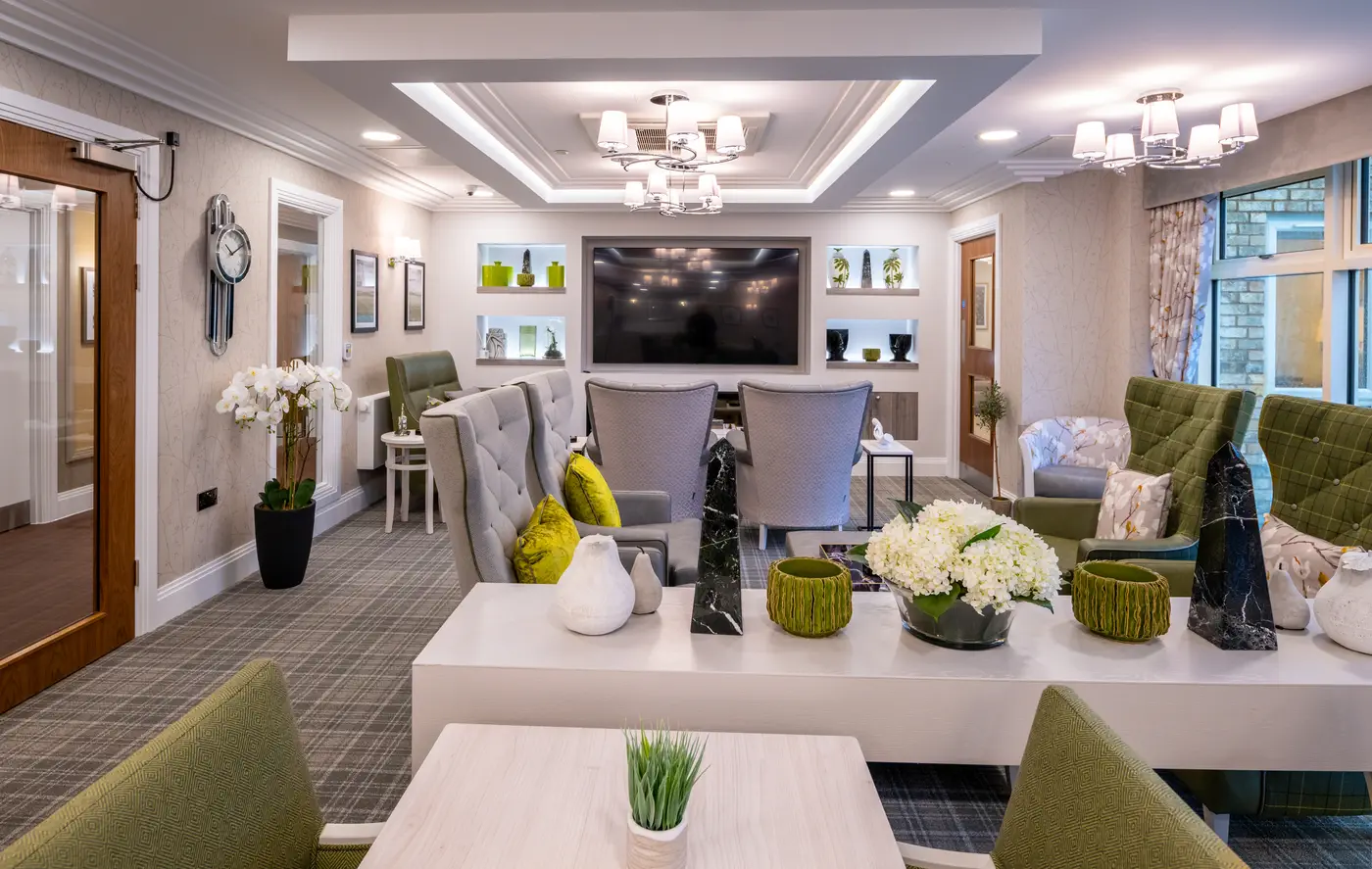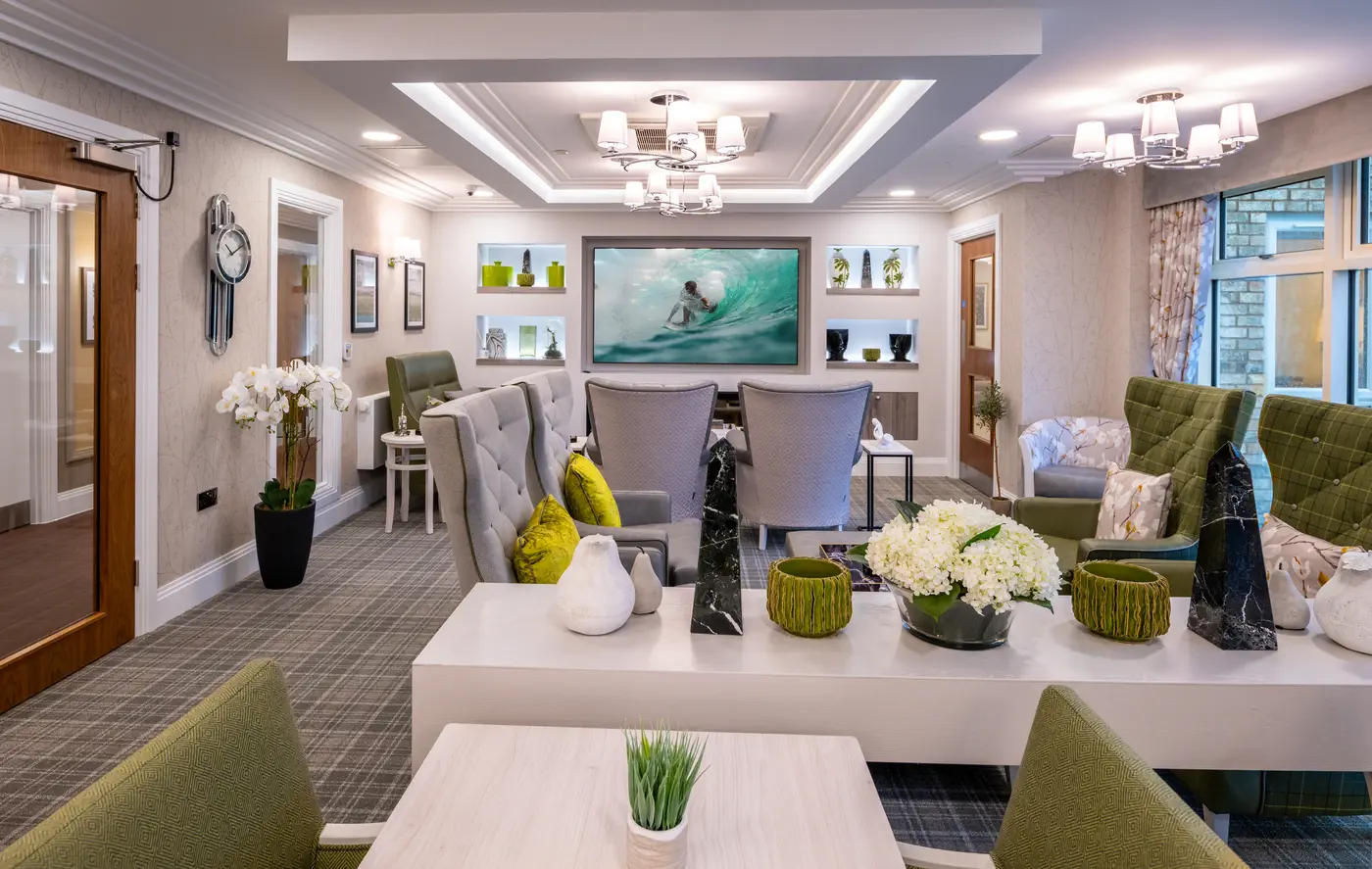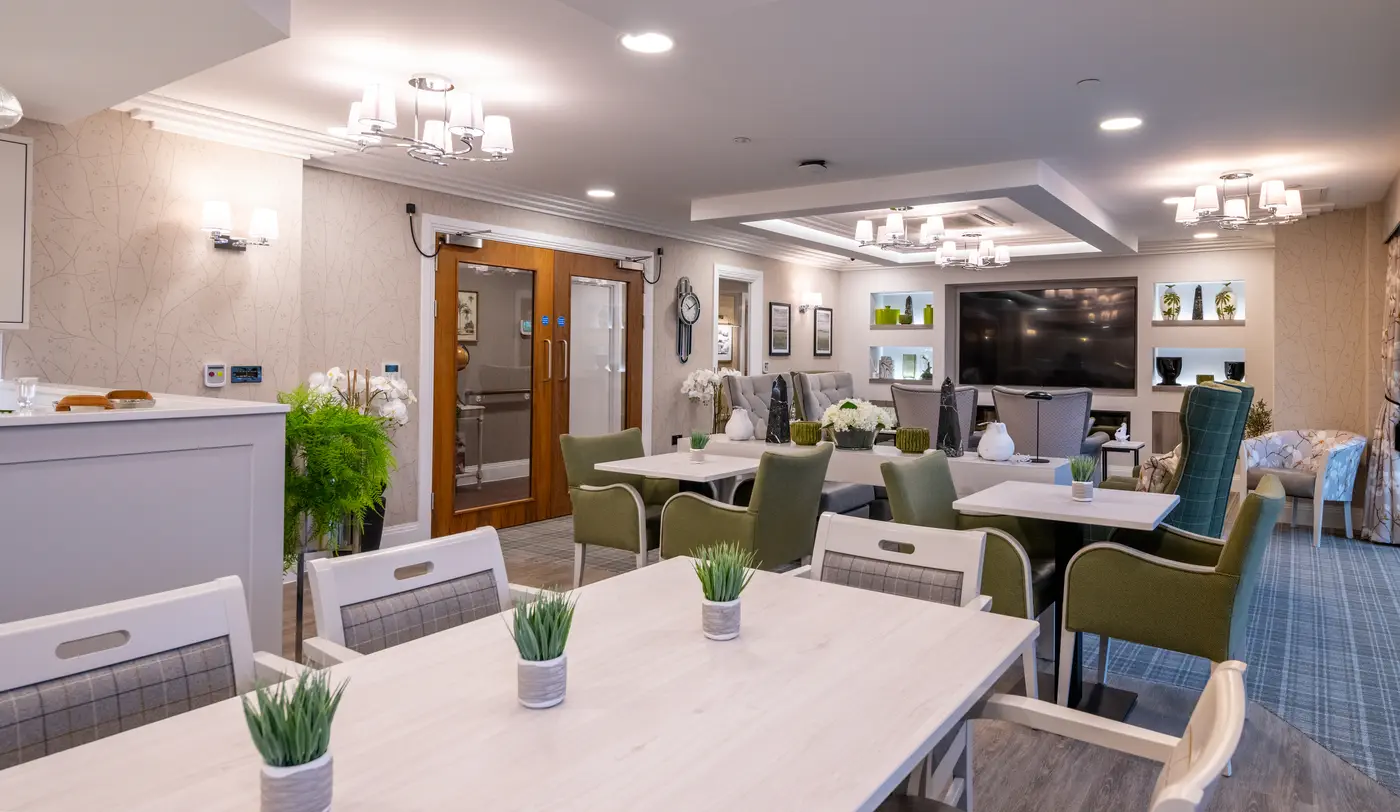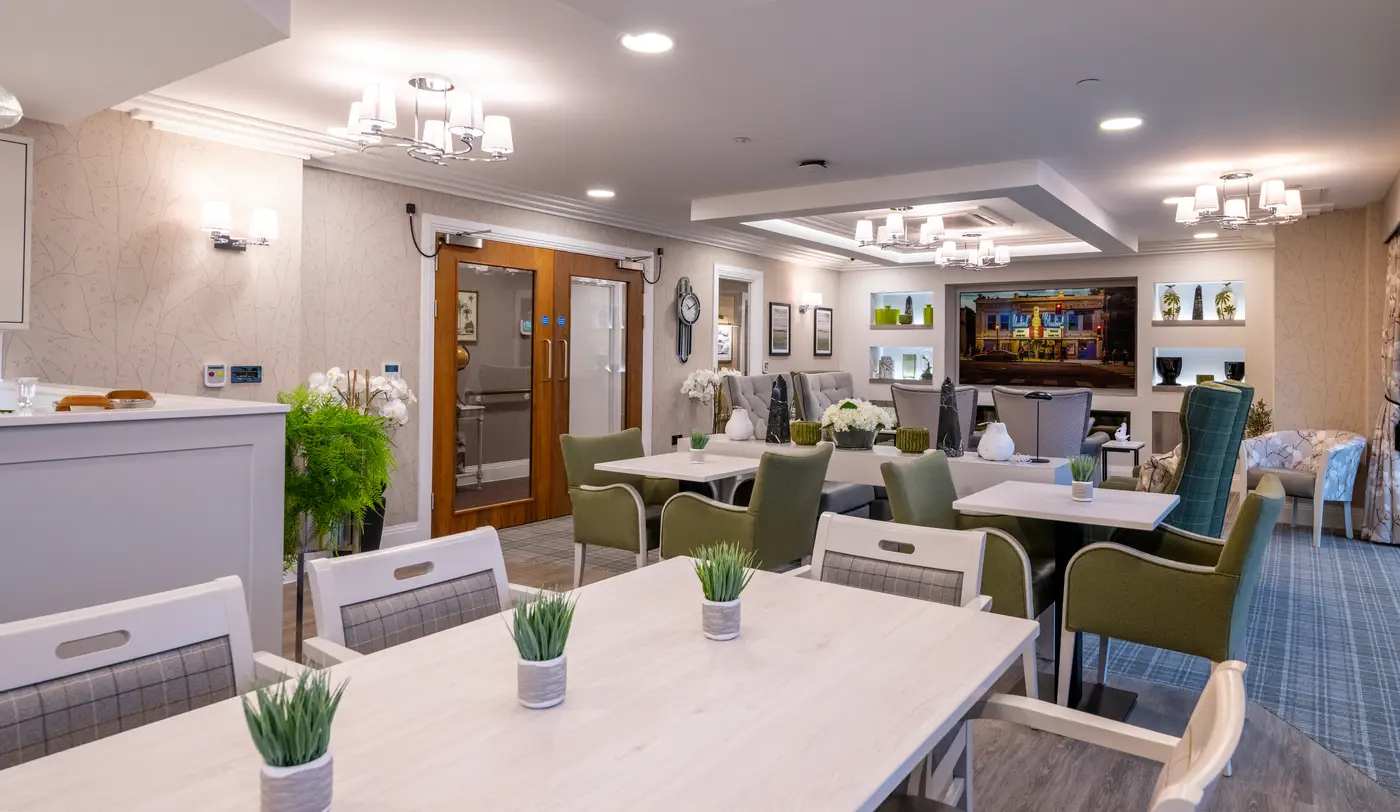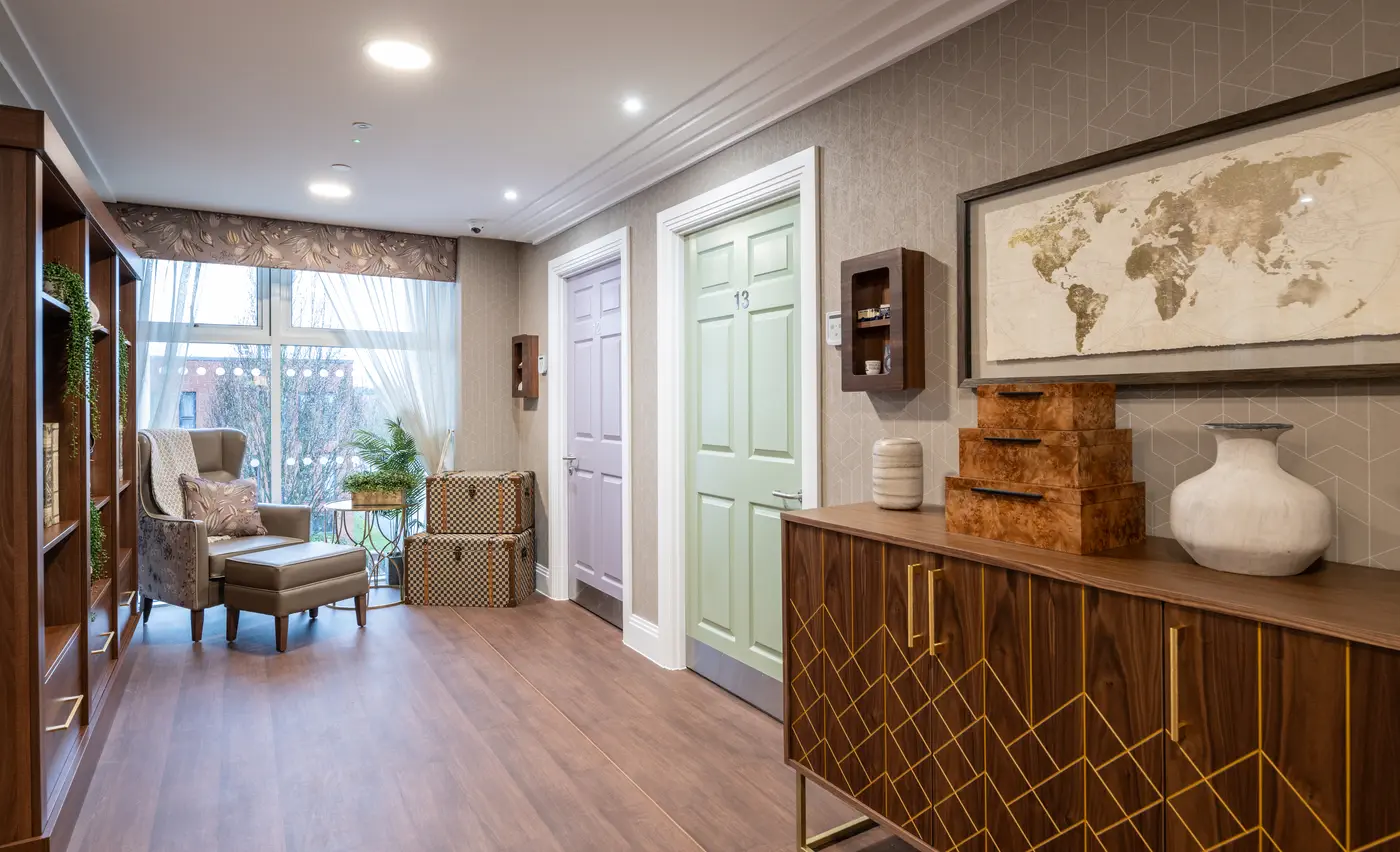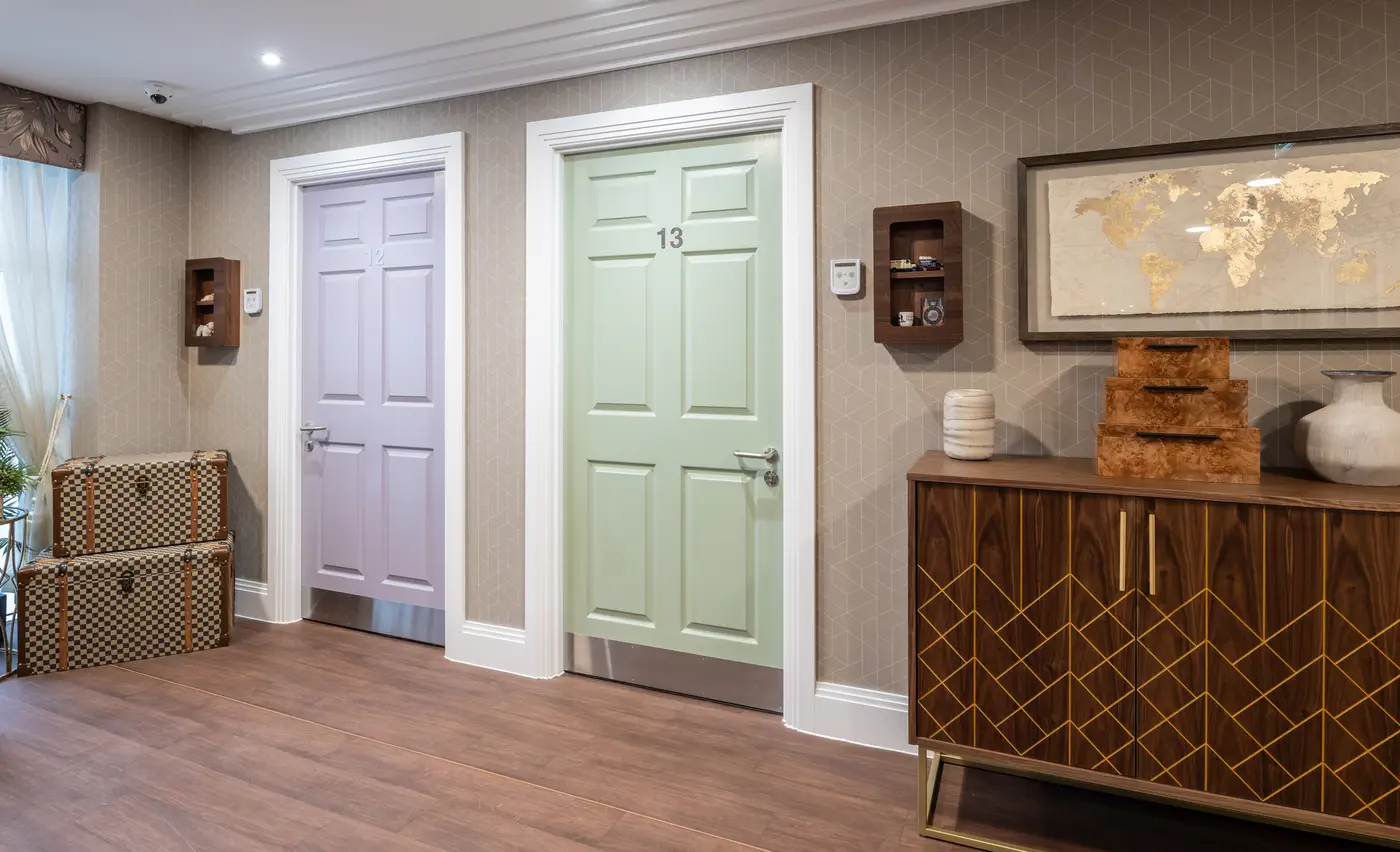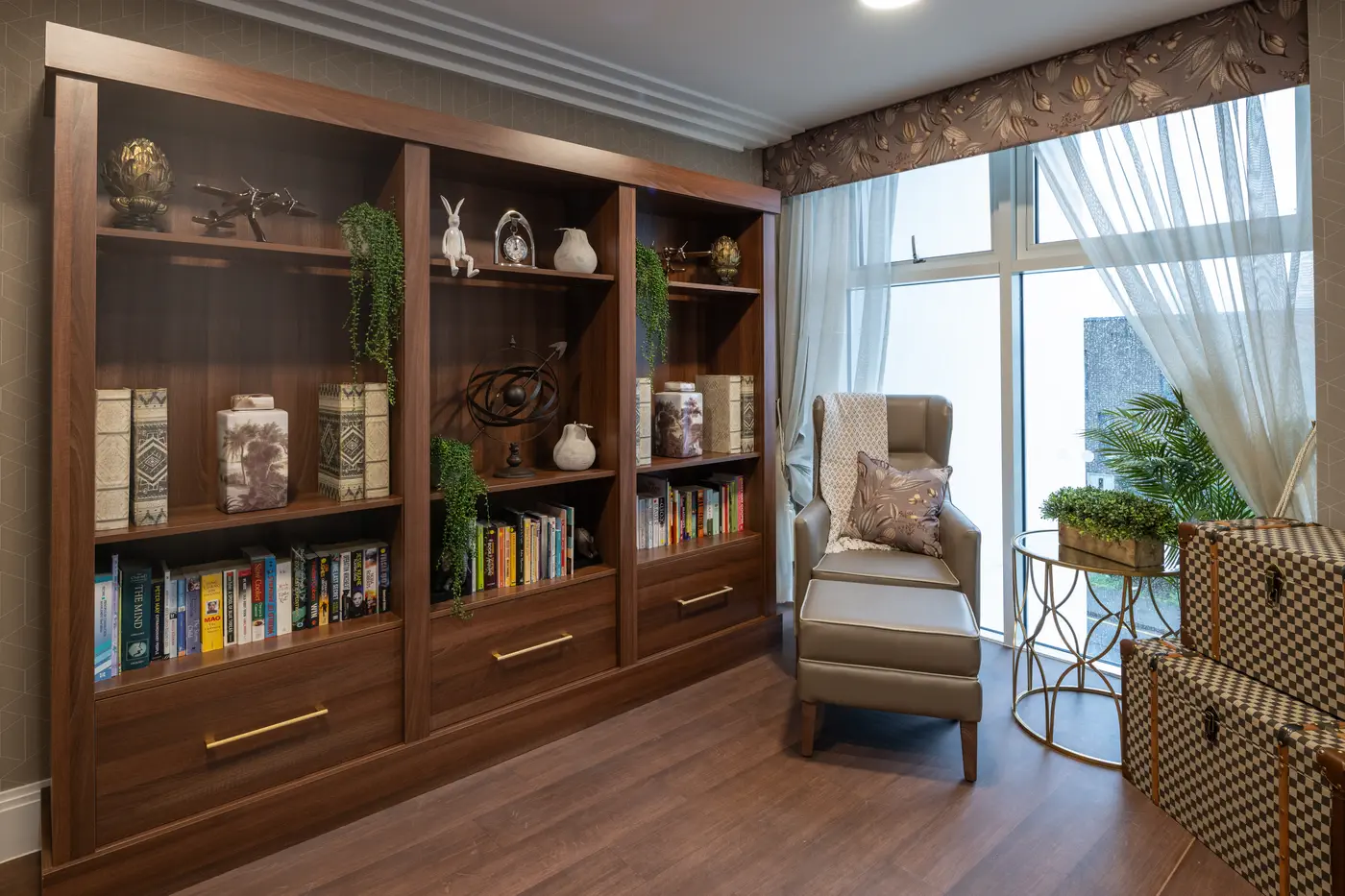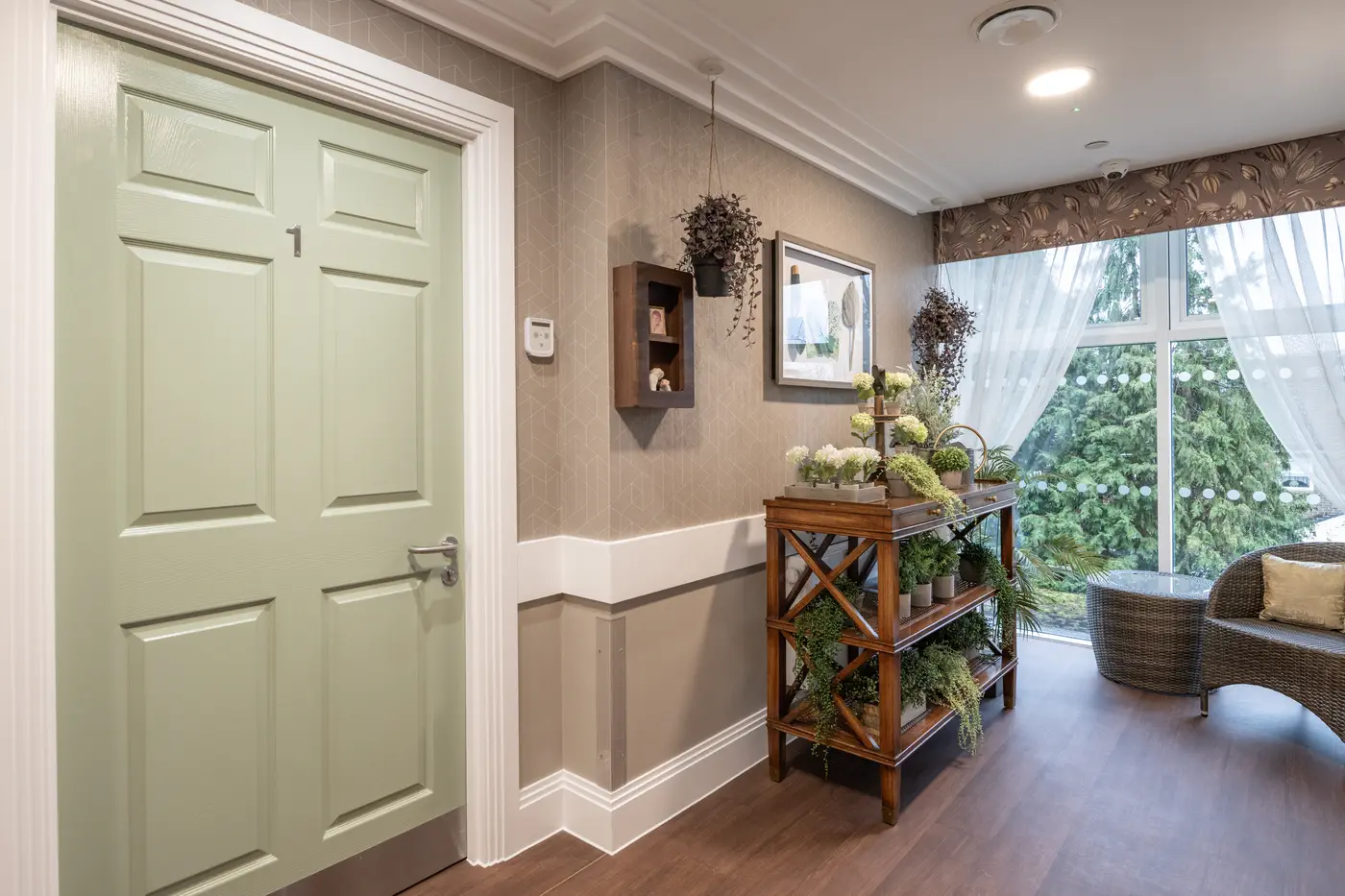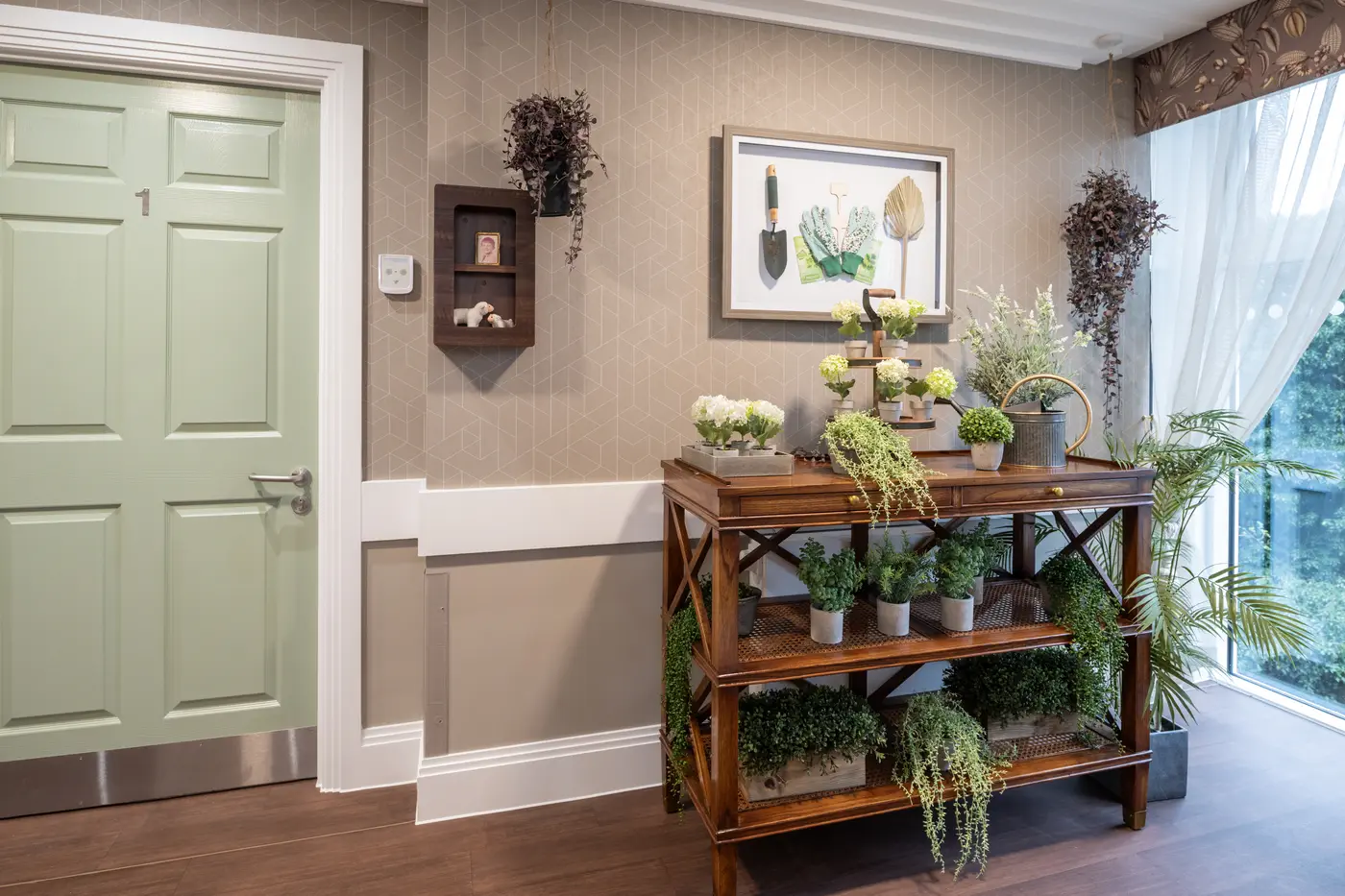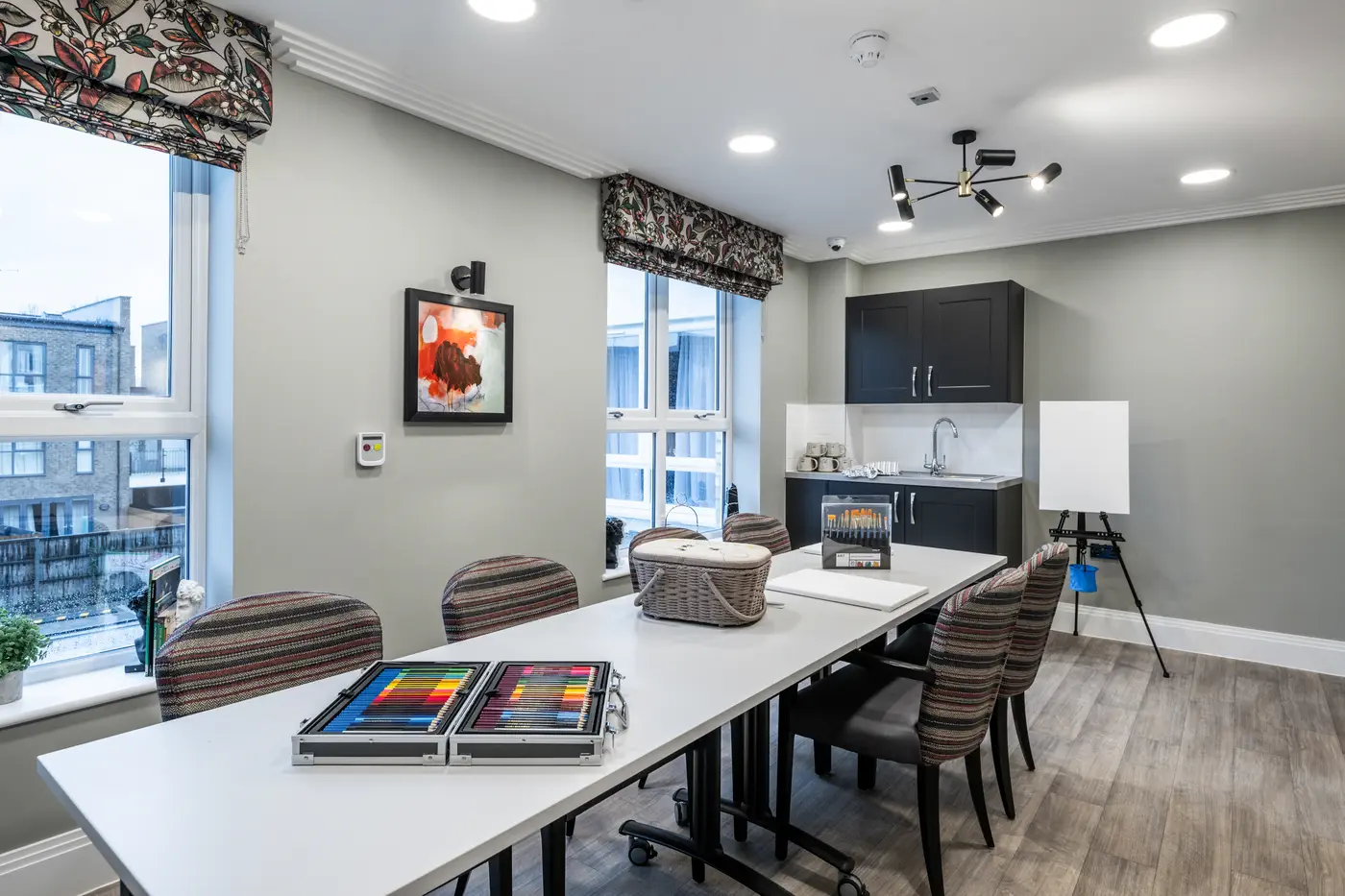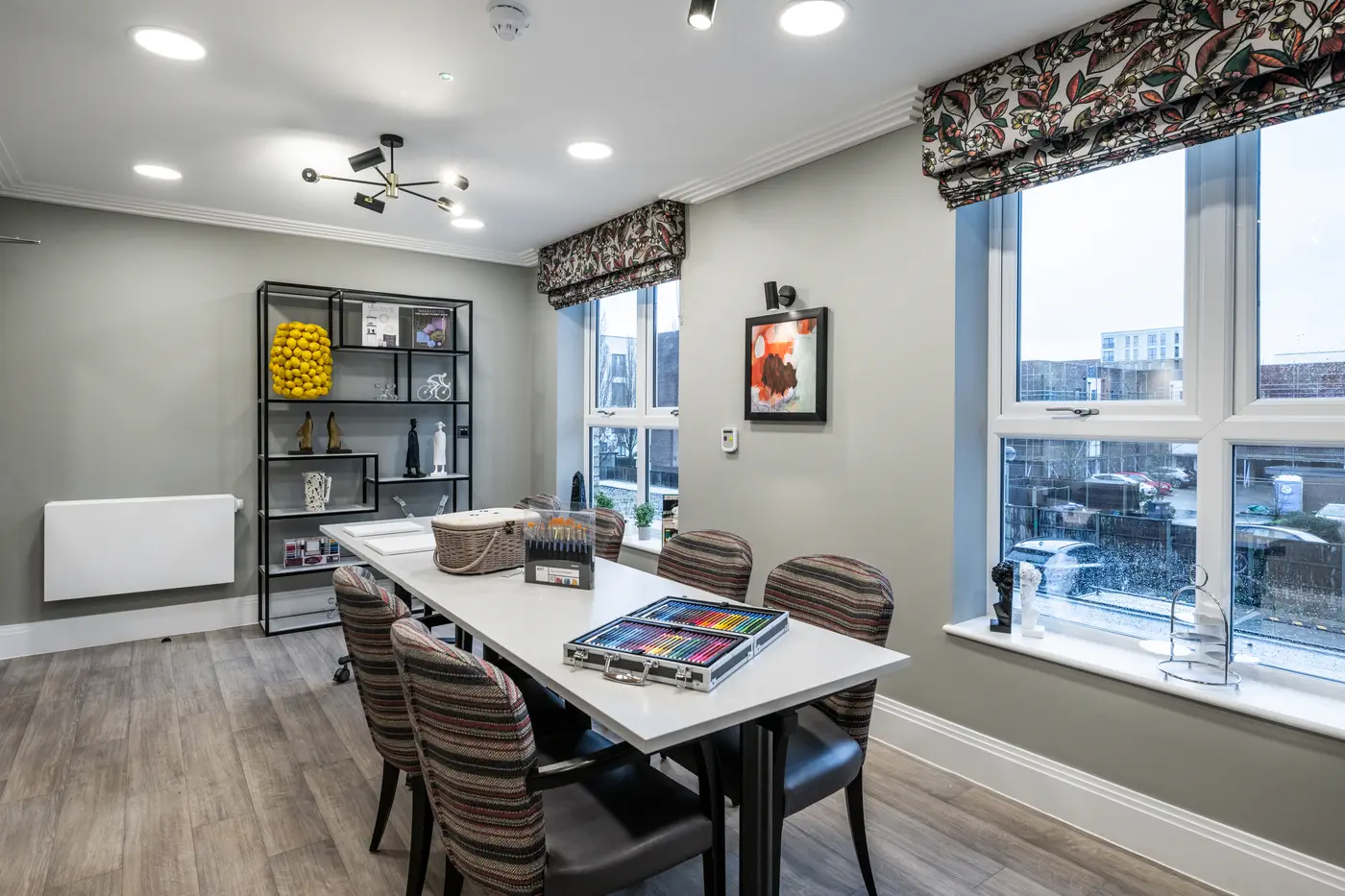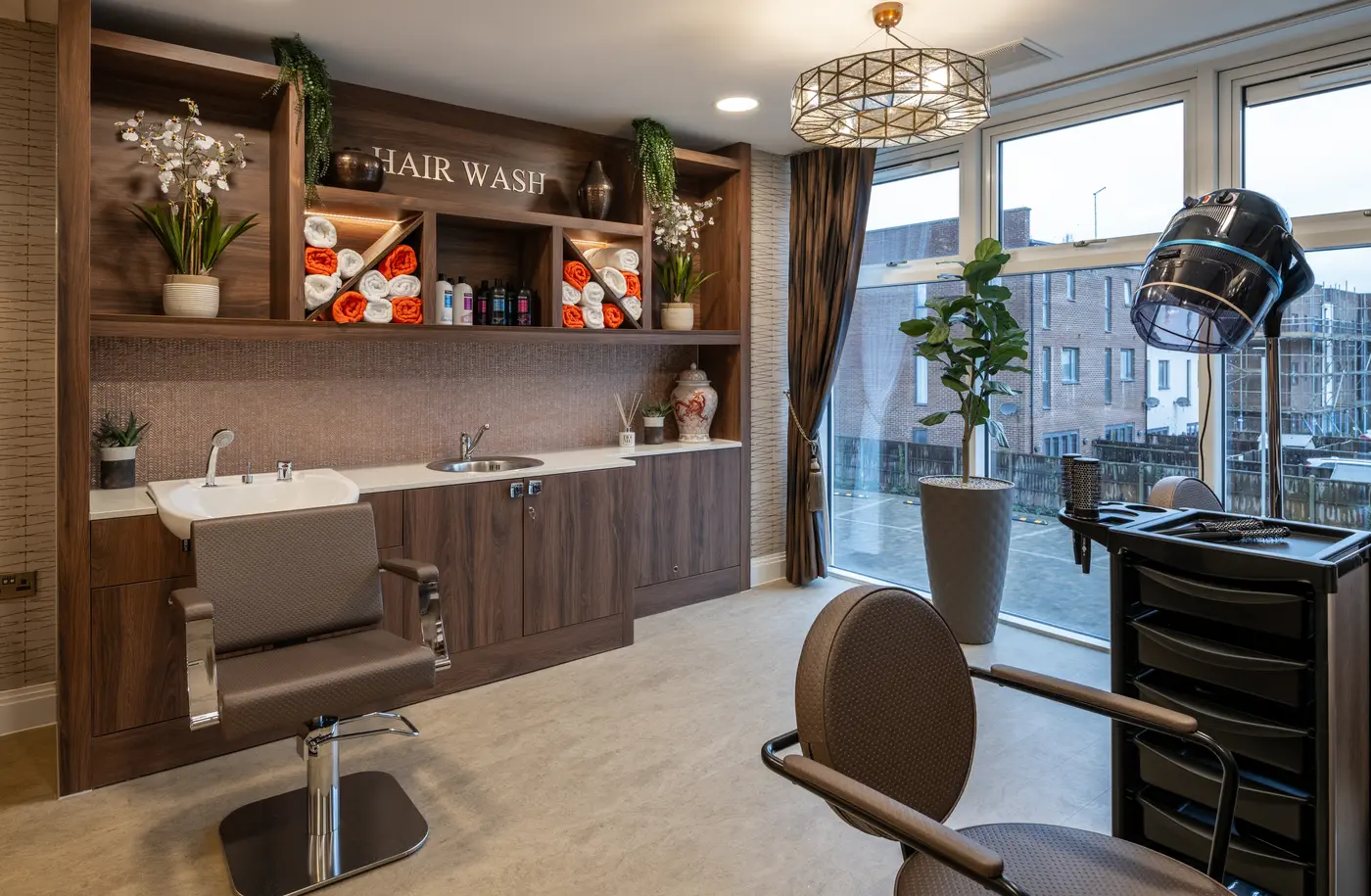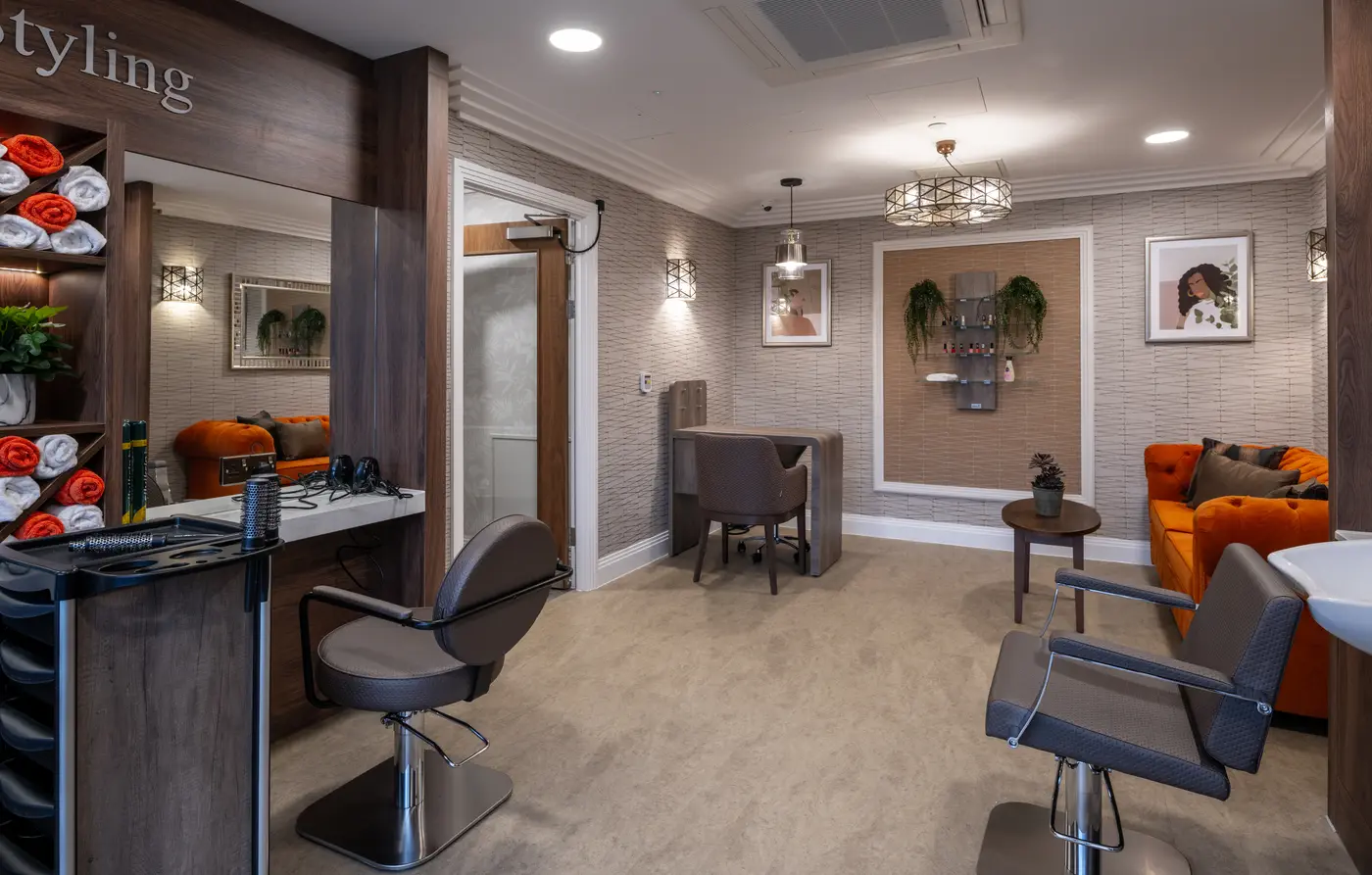Dementia Care in Welwyn Grange Care Home
“Welwyn Grange offers you the best of both worlds, Dementia Care with experienced nursing teams. Our Dementia care is highly tailored to your needs and available 24/7, so you can count on our nurses to keep you physically and mentally well, as well as preventing any unnecessary hospital visits”
Dementia Care in Welwyn Garden City
Living with dementia does not mean you cannot enjoy meaningful activities and a good quality of life. Welwyn Grange’s specialist dementia service is a bespoke household, designed to enable those living with dementia to be as independent and stress-free as possible. Its dedicated staff team are trained in the very best dementia care practices, enabling us to deliver individual care and support plans to each resident.
Look carefully and you will see the detailed design our dedicated dementia home in Welwyn Garden City benefits from. This includes correct lighting levels and clear signage, which make getting around much easier and reduces the risks of falls. We also have personalised memory boxes and colour-specific bedroom doors so residents can find their rooms independently. Once in the room, your ensuite toilet is easy to see from the bed, which acts as a visual reminder if needed.
Why choose Welwyn Grange?
Nurses at Welwyn Grange are numerary to the residents, which makes it easier for our dementia care teams to develop meaningful relationships with each resident, allowing them to notice even the slightest changes in behaviour or individual needs. Such an attentive and proactive approach to care allows us to provide the perfect amount of care required by each resident, truly making a difference in one’s well-being.
Welwyn Grange is designed with accessibility and independence in mind. With correct lighting and clear signage, we make it much easier for residents with dementia to live independently, as much as possible.
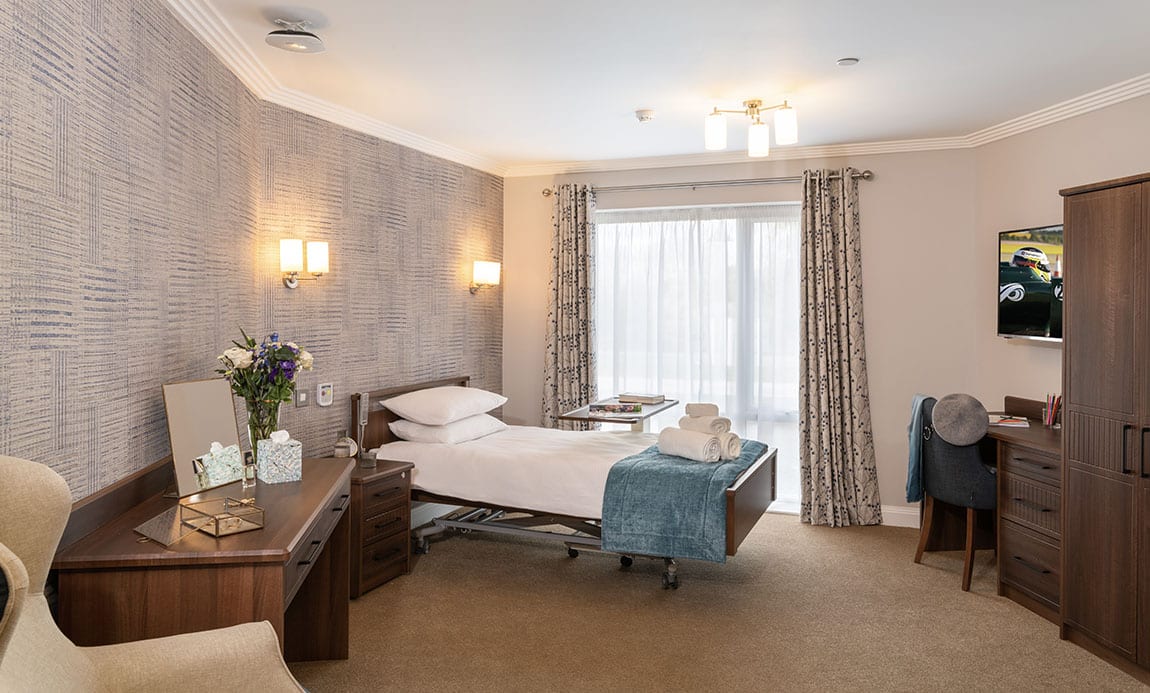
Tailored dementia care in Welwyn Garden City
At Welwyn Grange, we are proud to offer highly tailored dementia care to our residents. To ensure everyone receives the right type of care, we carry out assessments, which help us understand you and your needs better. To further ensure our dementia residents are feeling their best, our nursing teams always notice and take care of the little things, such as always ensuring that the dining spaces, corridors, rooms and the rest of the premises are well lit and easy to navigate for residents with poorer eyesight.
On top of that, we also offer an enhanced GP service, paid by Welwyn Grange, to ensure quick and easy access to GPs. This service is extremely handy in cases when residents need medication or pain control. The GPs we work with also get to know and build relationships with our residents, allowing them to better understand their needs and provide more personalised solutions.
Cost of Care at Welwyn Grange
Some care providers like to hide their costs, which can create a feeling of mistrust and a fear of hidden extras. We prefer a transparent approach so that you continue to have full control of your finances (if you are funding your own care). However, because we are all unique, it’s important that we assess you before you come to live at Welwyn Grange, so we can be confident we can fully support your care needs and give you complete clarity of your fees.
This weekly figure will be dependent on which room or apartment you chose and encompasses all your nursing and dementia care needs plus anything that may be described as ‘hotel costs’, such as all your meals, snacks and drinks, as well as your laundry (personal clothing and bed linen). After an assessment of your needs there may be an enhanced care supplement which you will be made aware of before agreeing to come and stay with us. This is only applied in exceptional circumstances.
“Once assessed, the only things you will need to budget for are down to your personal choice, things like hairdressing or chiropody appointments or your own daily paper, or personal interest magazine”
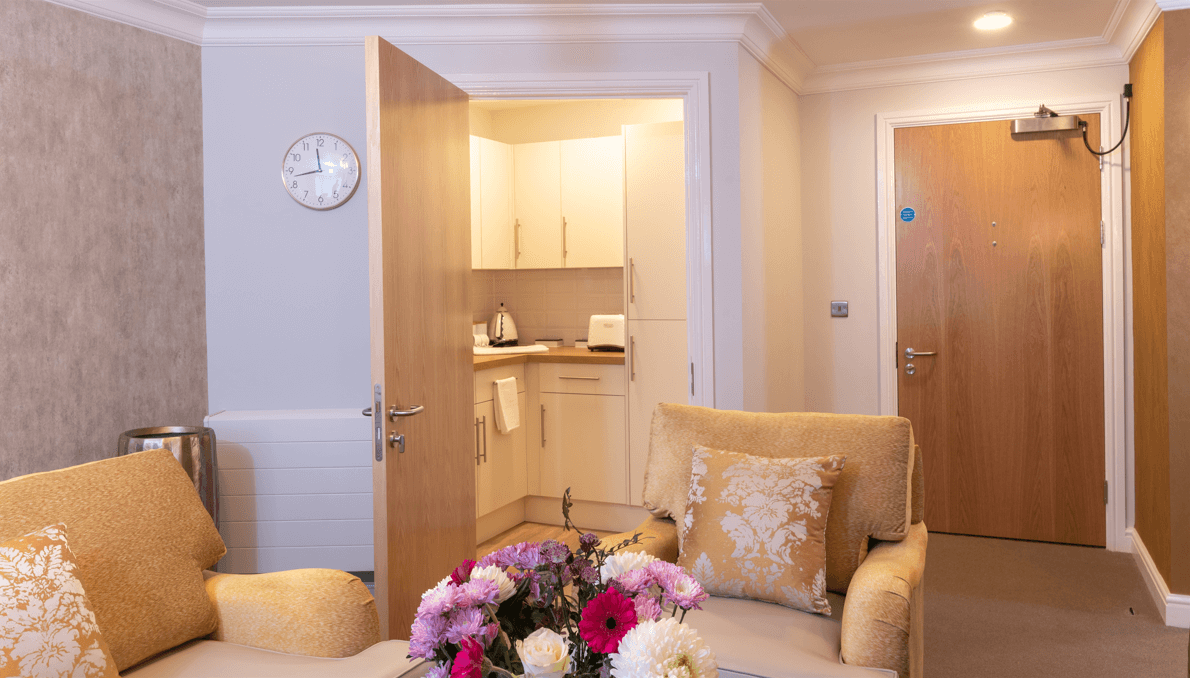
Frequently Asked Questions About Dementia
What are the most common types of dementia?
- Alzheimer’s disease is the most frequent type of dementia. In the beginning, it affects short-term memory and as the disease progresses it can cause long-term memory loss, behaviour changes, as well as disruption to such functions as walking and talking.
- Vascular dementia is usually caused by issues related to cardiovascular health, such as suffering from a stroke, high blood pressure, or restricted blood flow to the brain. The symptoms of this type of dementia can get worse suddenly, and stagnate for a while before getting worse again, due to the disease not progressing linearly.
- Lewy body dementia (LBD) is caused by faulty protein clumps, called Lewy Bodies, accumulating in the person’s brain cells. Which breaks the nerve connections and reduces the production of important chemicals, which are responsible for sending signals through the brain. It usually develops at a slow rate, therefore the detrimental symptoms are most frequently spotted among the elderly.
- Frontotemporal dementia is caused by abnormal protein clumps forming and damaging the brain cells. This type of dementia can cause extreme personality changes, such as antisocial behaviour, reduced empathy, and even deterioration of speech and language. As the disease progresses, memory problems begin occurring alongside possible physical and mental health difficulties.
- Mixed dementia patients are affected by more than one type of dementia at once.
What are common signs and symptoms of dementia?
The symptoms of dementia can affect each individual differently, making it difficult to pinpoint the exact signs of the disease. However, some of the more common and universal signs of early dementia in patients can include memory loss, trouble focusing, and worsened language and communication skills.
These symptoms can be noticed when patients start forgetting the names of their loved ones and relatives, as well as old memories. Drastic changes in behaviour and uncharacteristic mood swings can also indicate cognitive decline. As mentioned previously, different dementia types have different symptoms, which differ from person to person, often making it difficult to spot rarer types of the disease early on.
What is sundowning?
The term “sundowning” refers to a state of confusion occurring in the late afternoon and night. It can make a person feel confused and anxious, causing aggression, pacing and wandering. It is not yet fully known what exactly causes ‘’sundowning’’, but some possible factors include tiredness, overstimulation, not getting enough sunlight during the day, as well as disturbances to the person’s natural ‘’body clock’’ due to cognitive decline.

